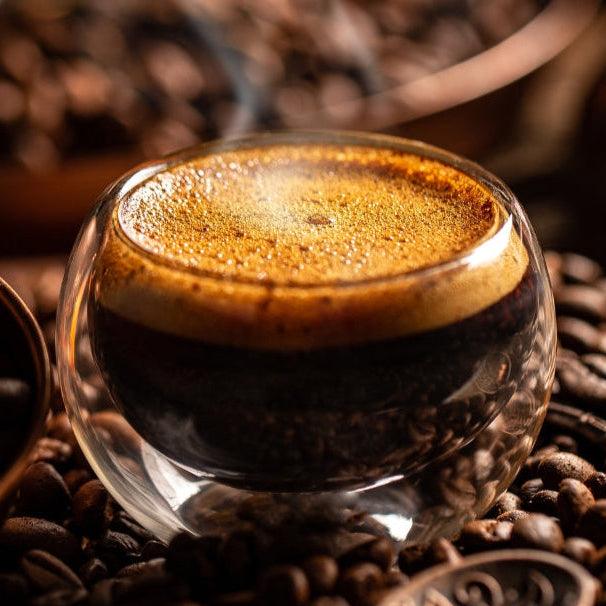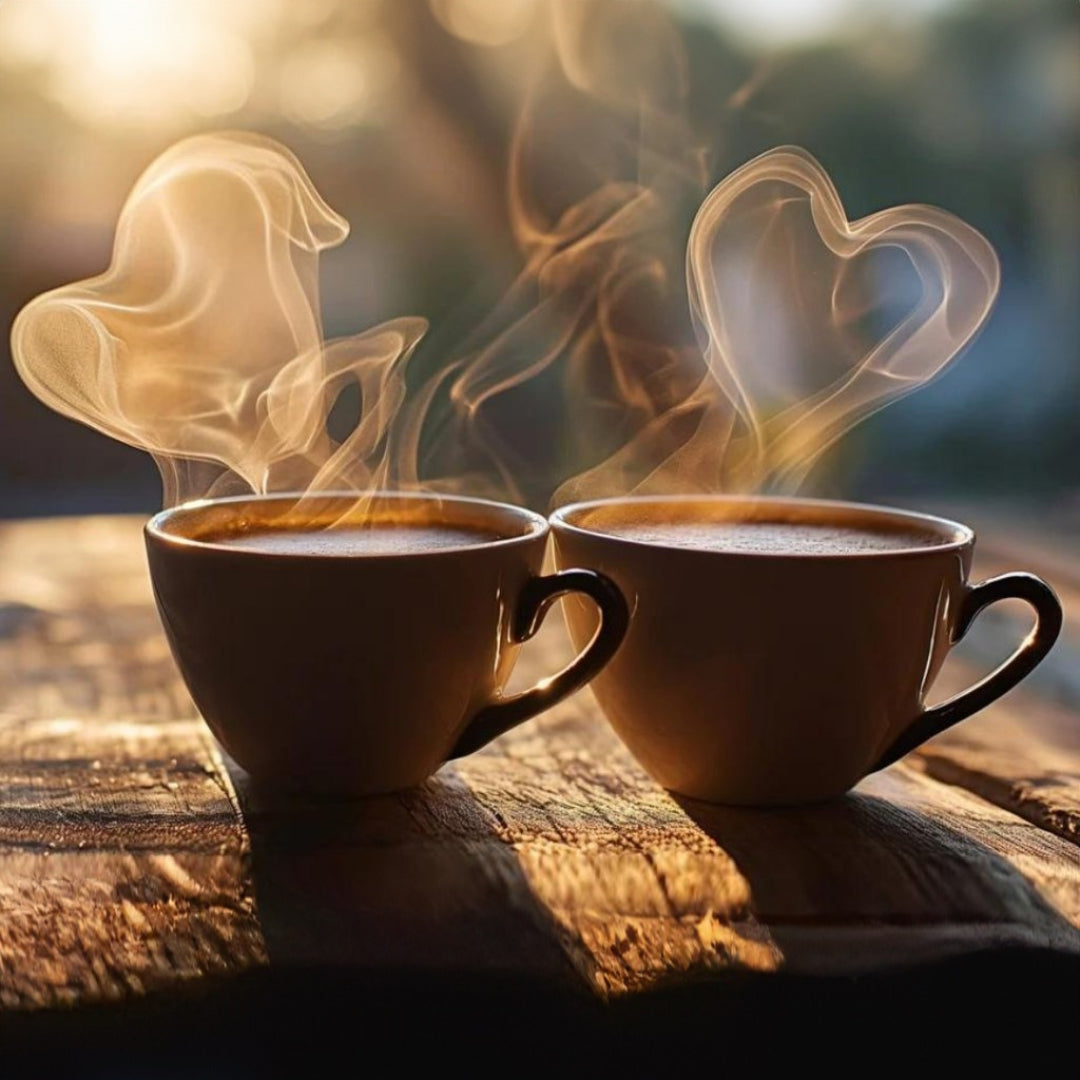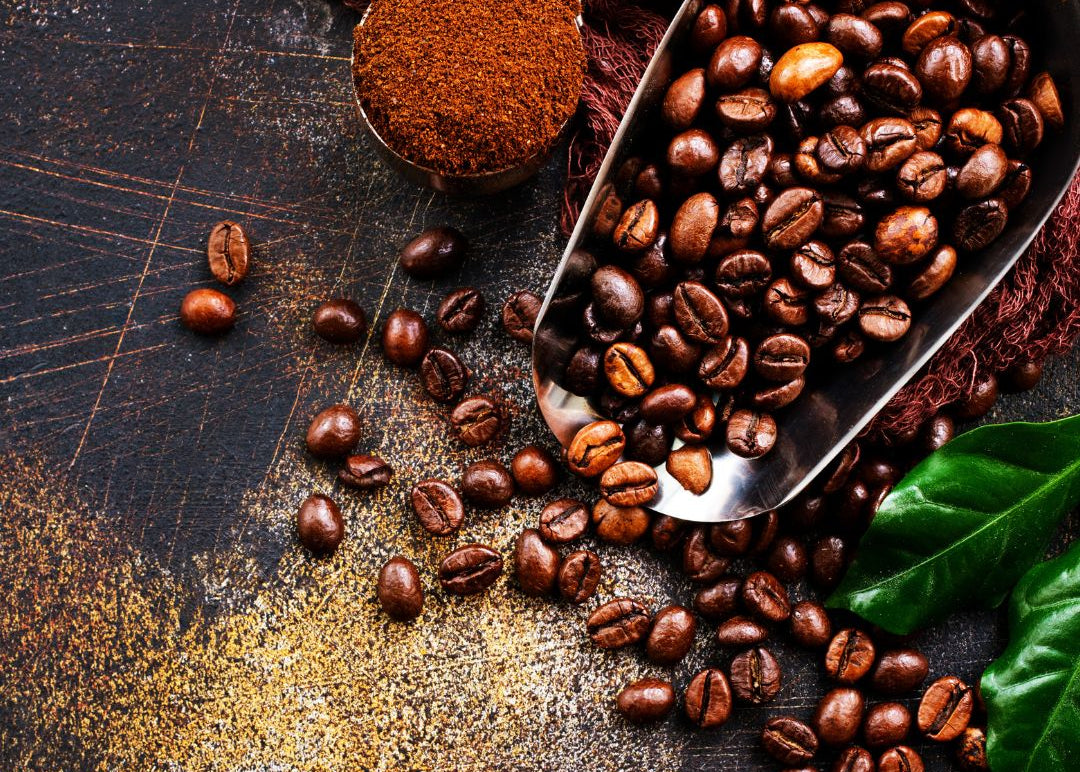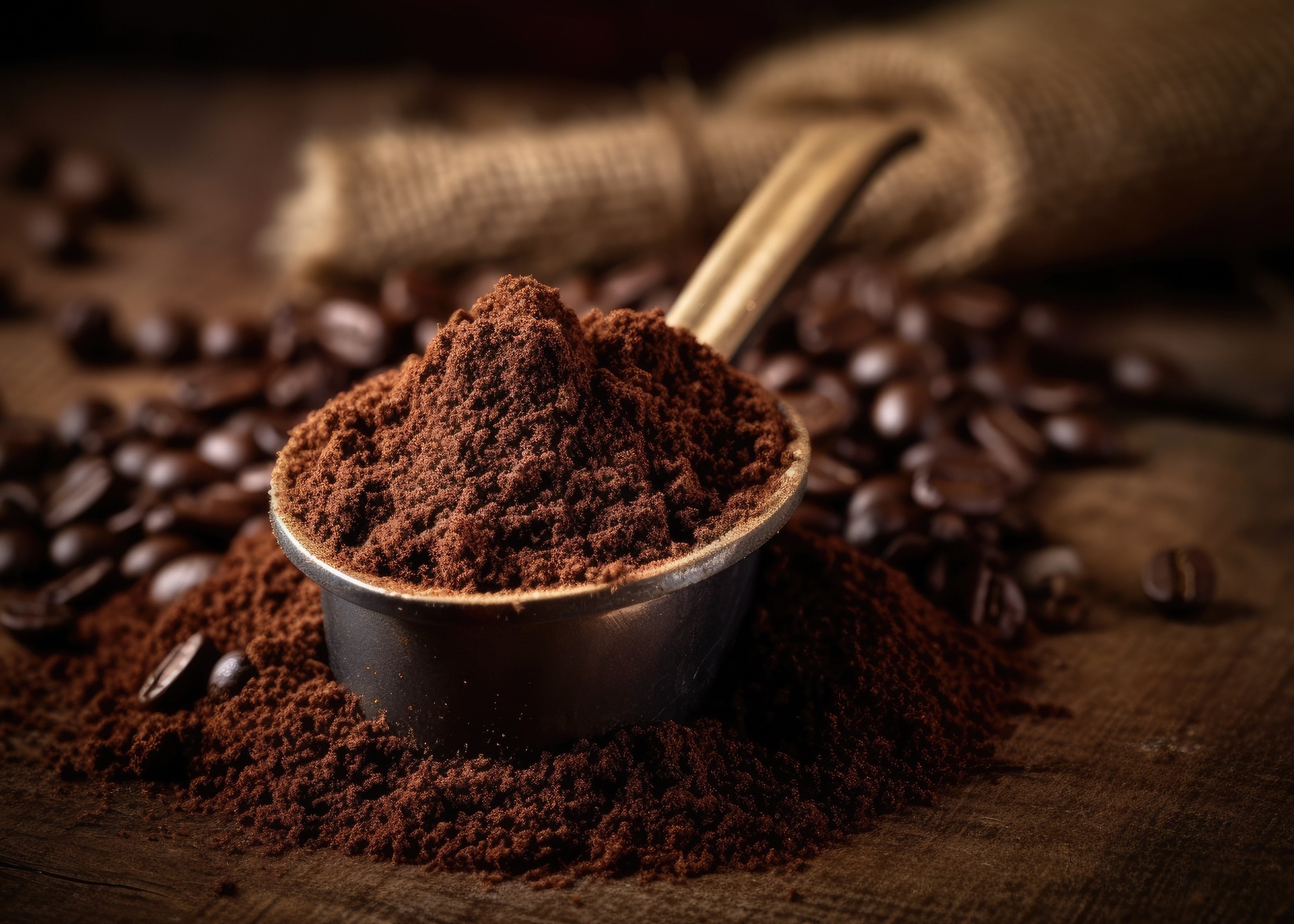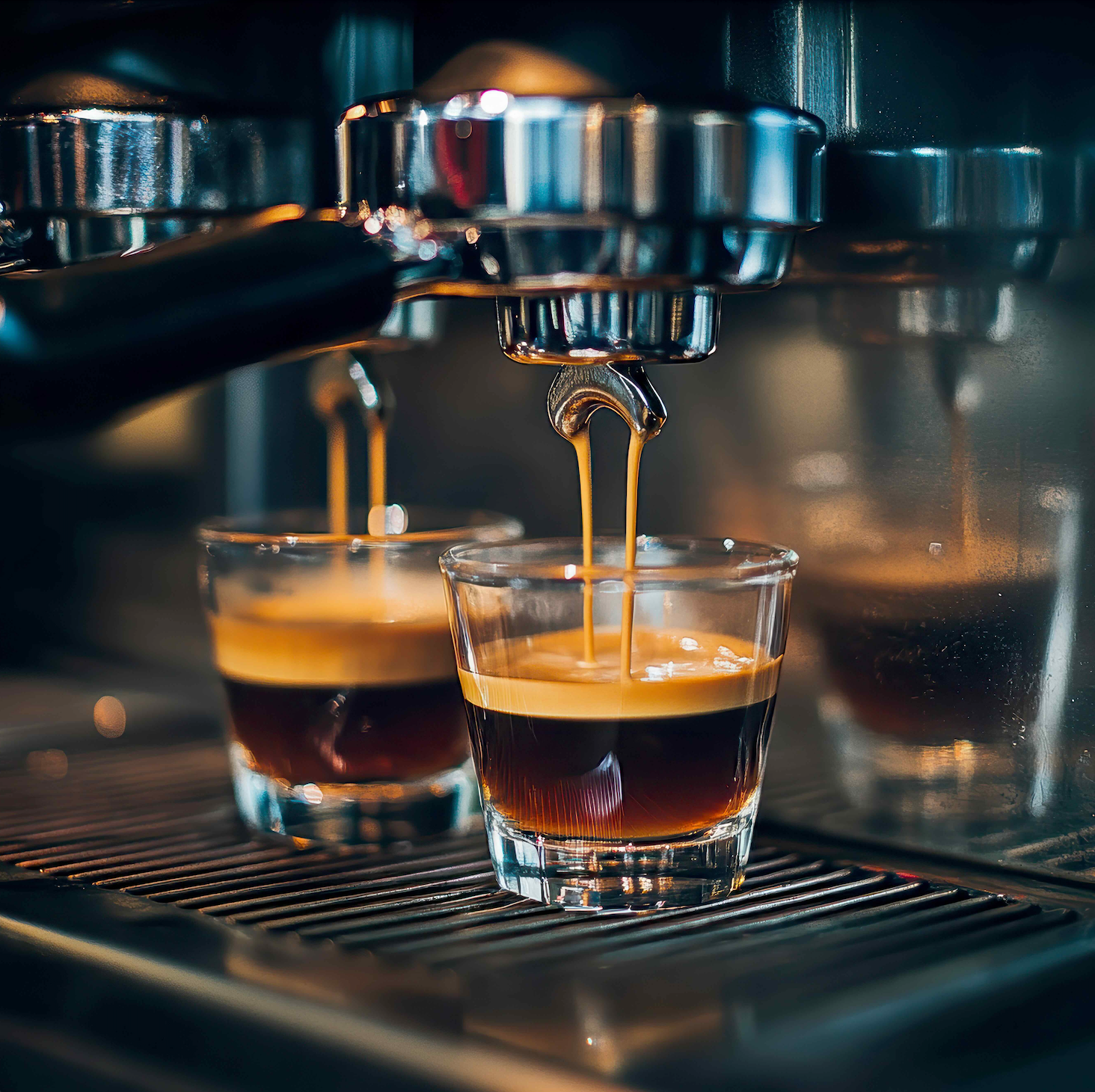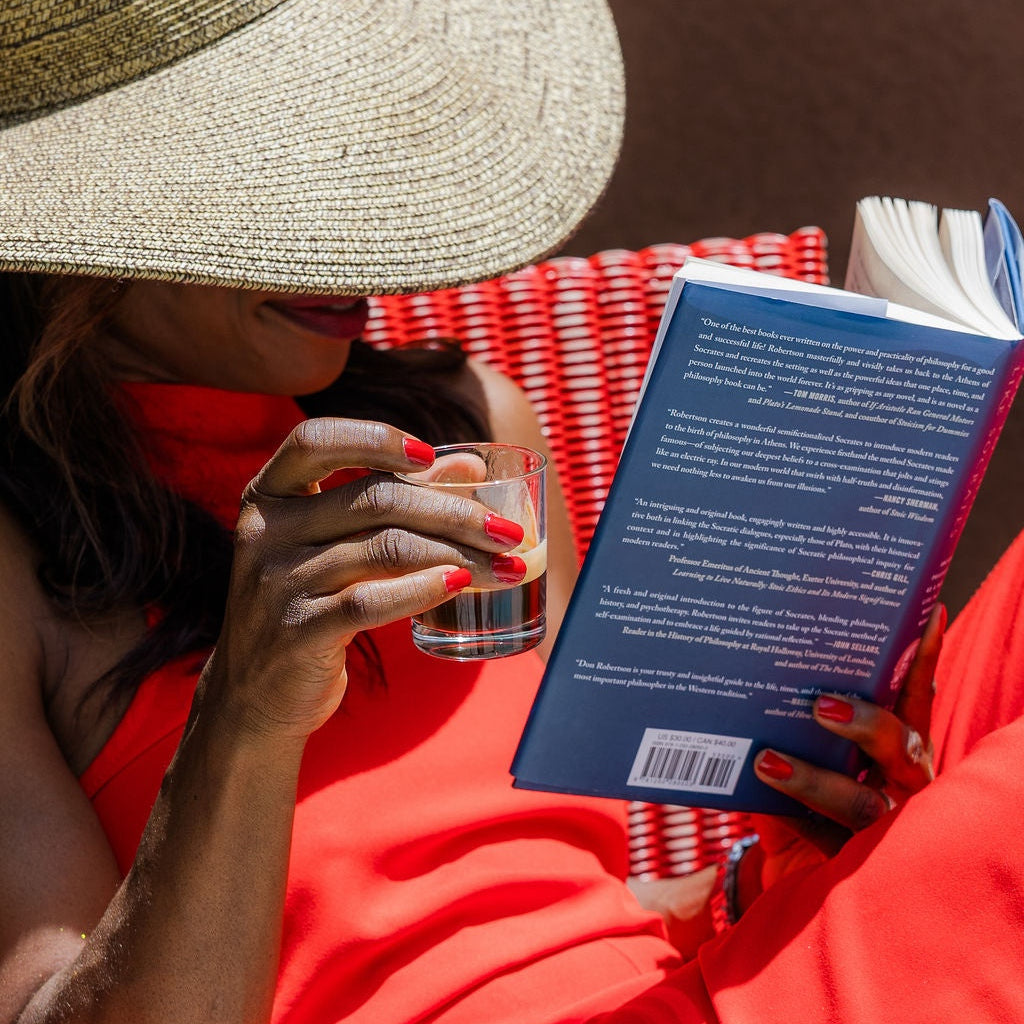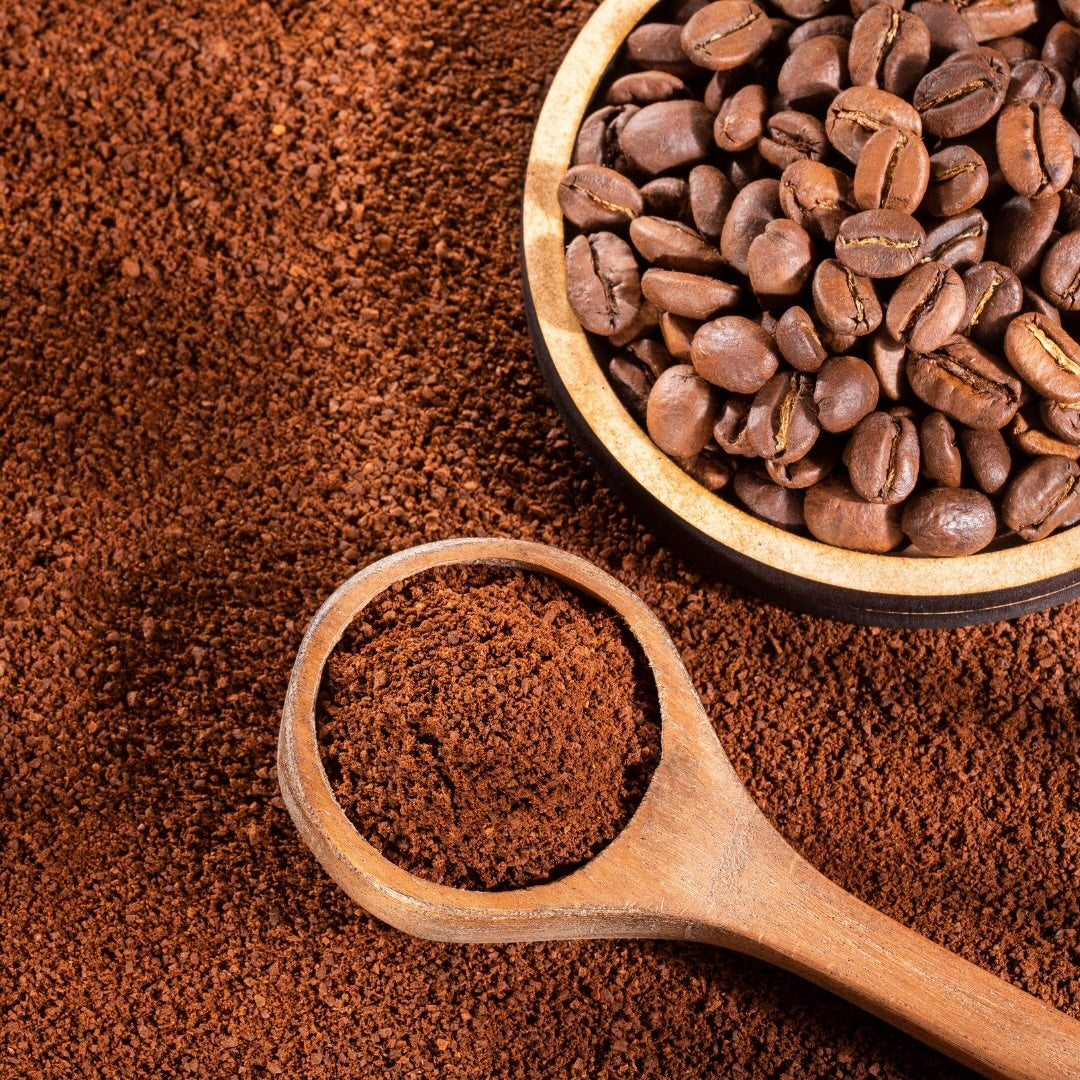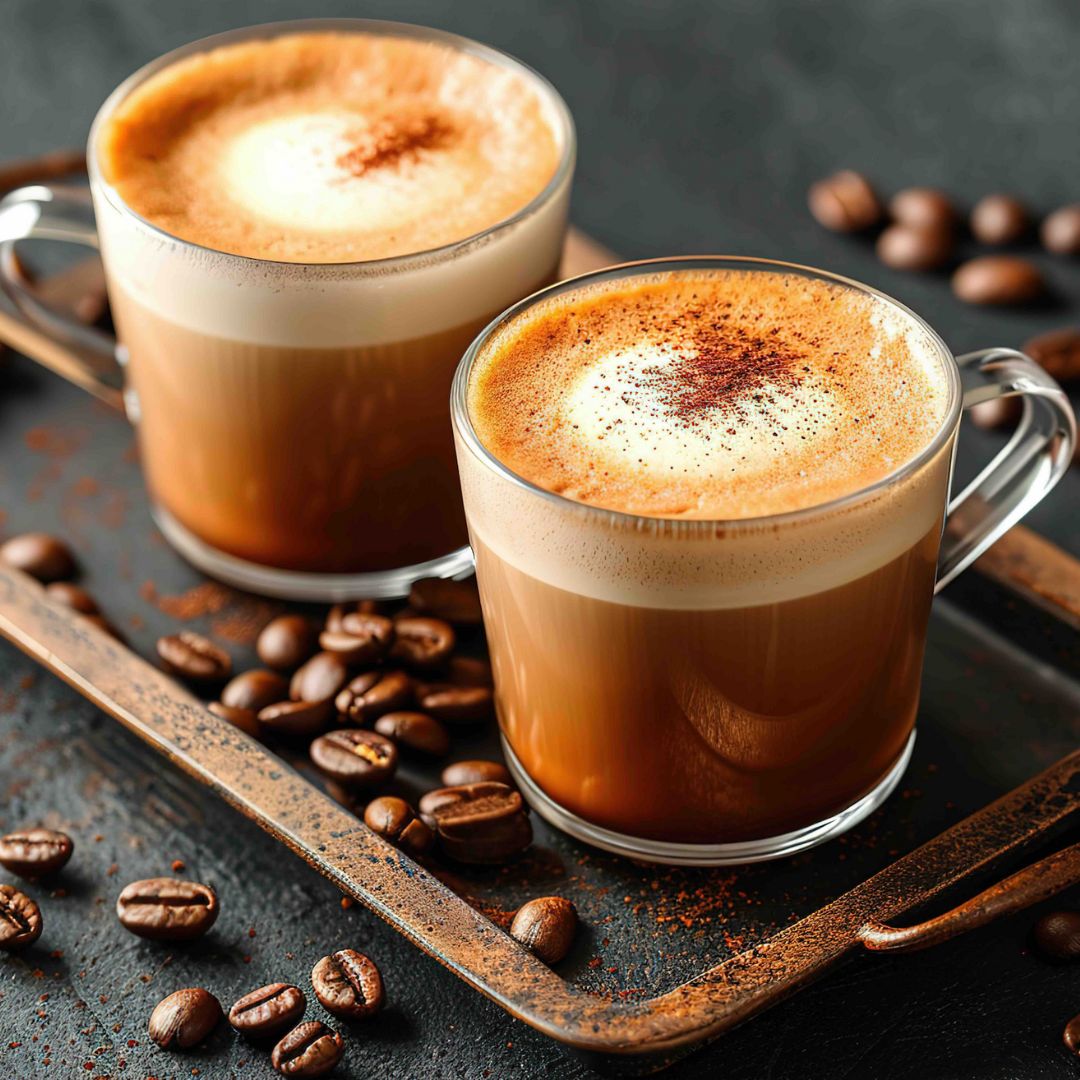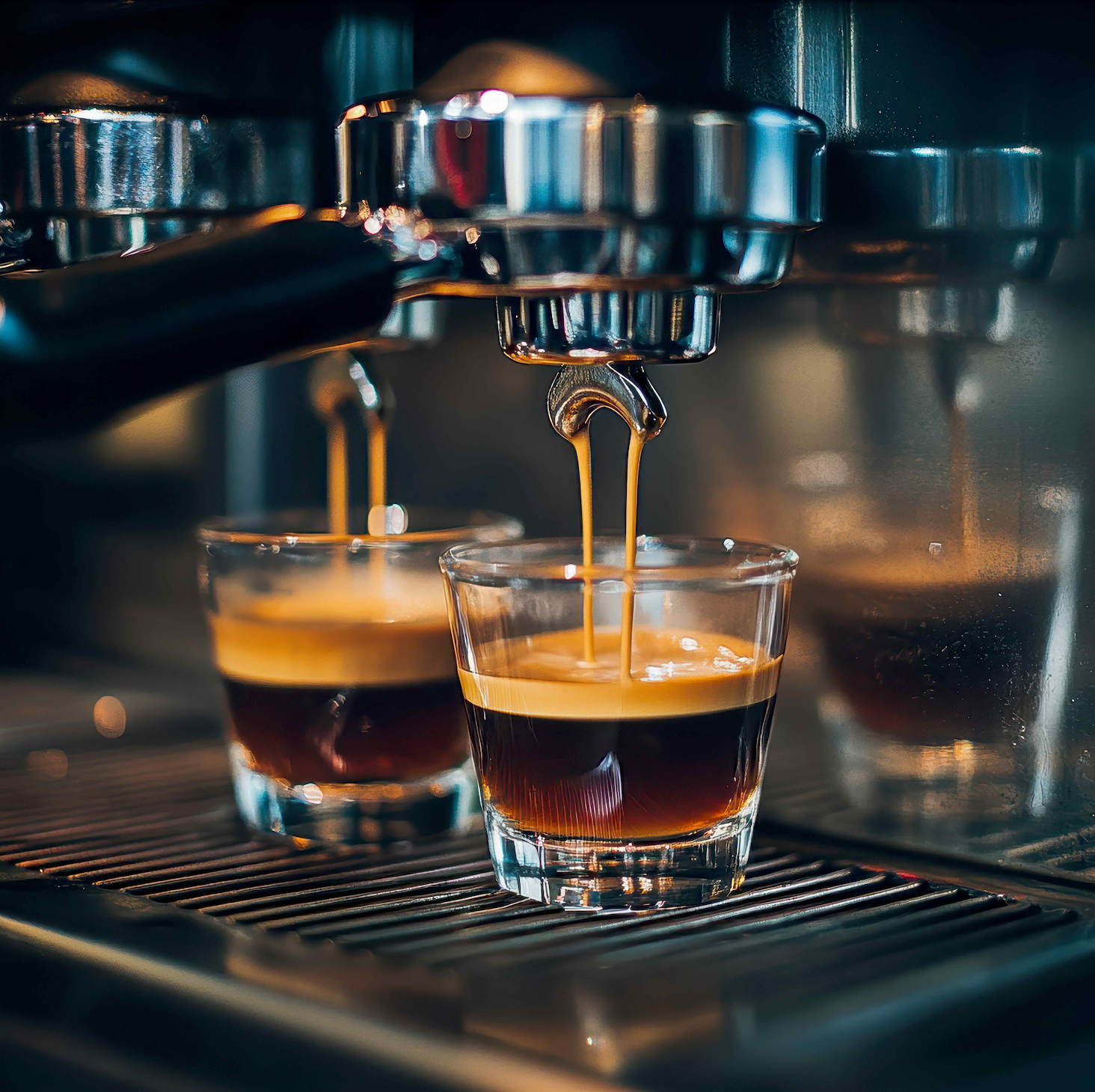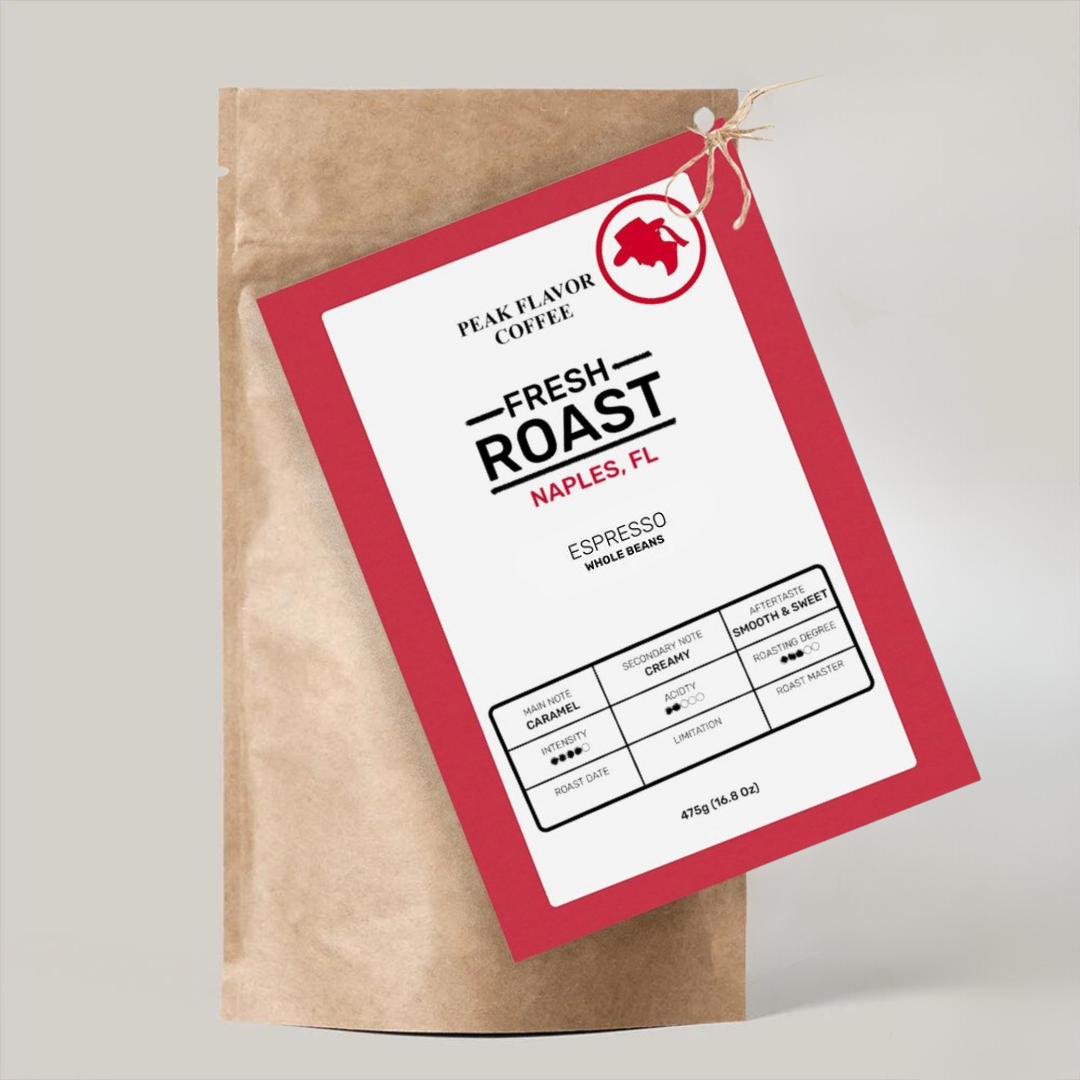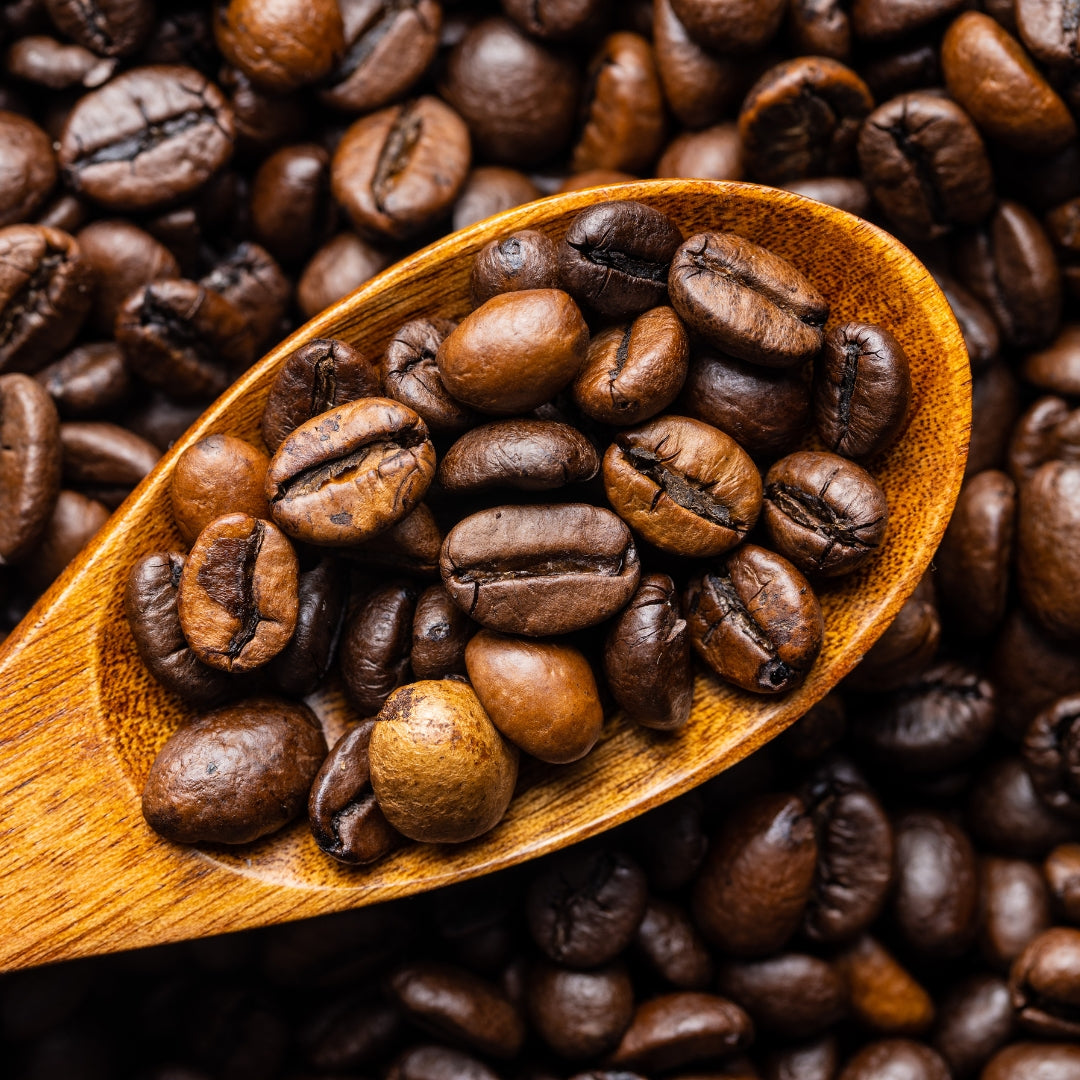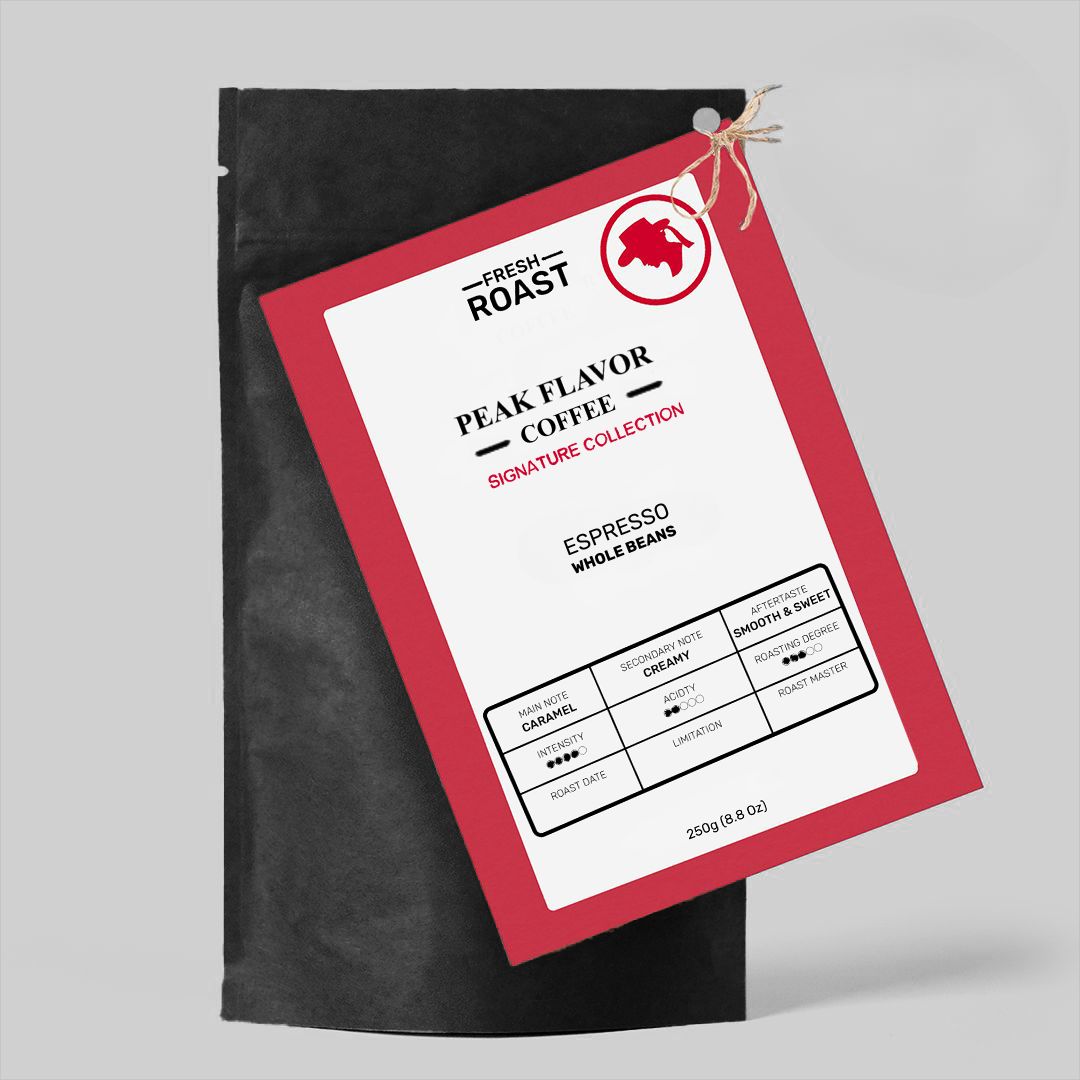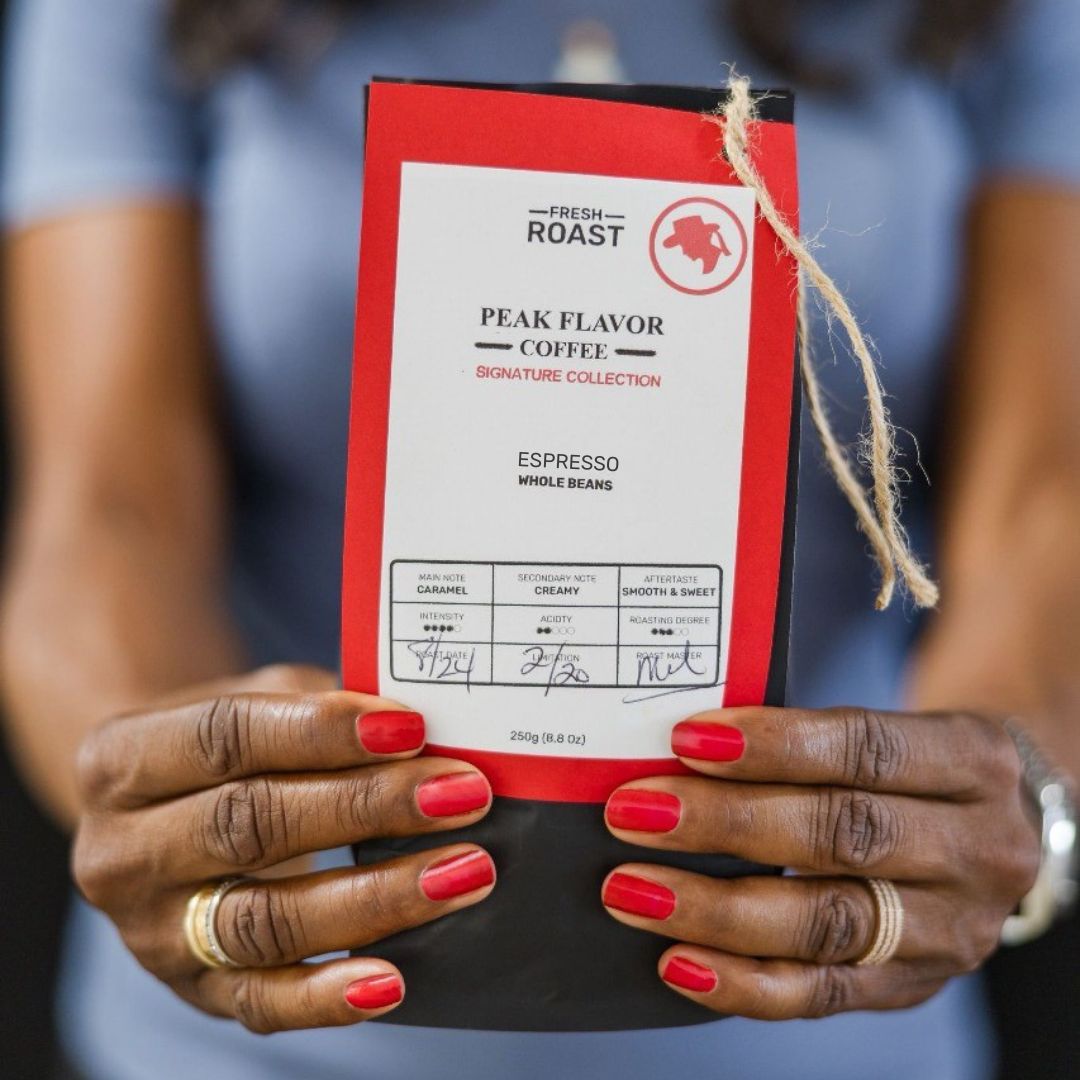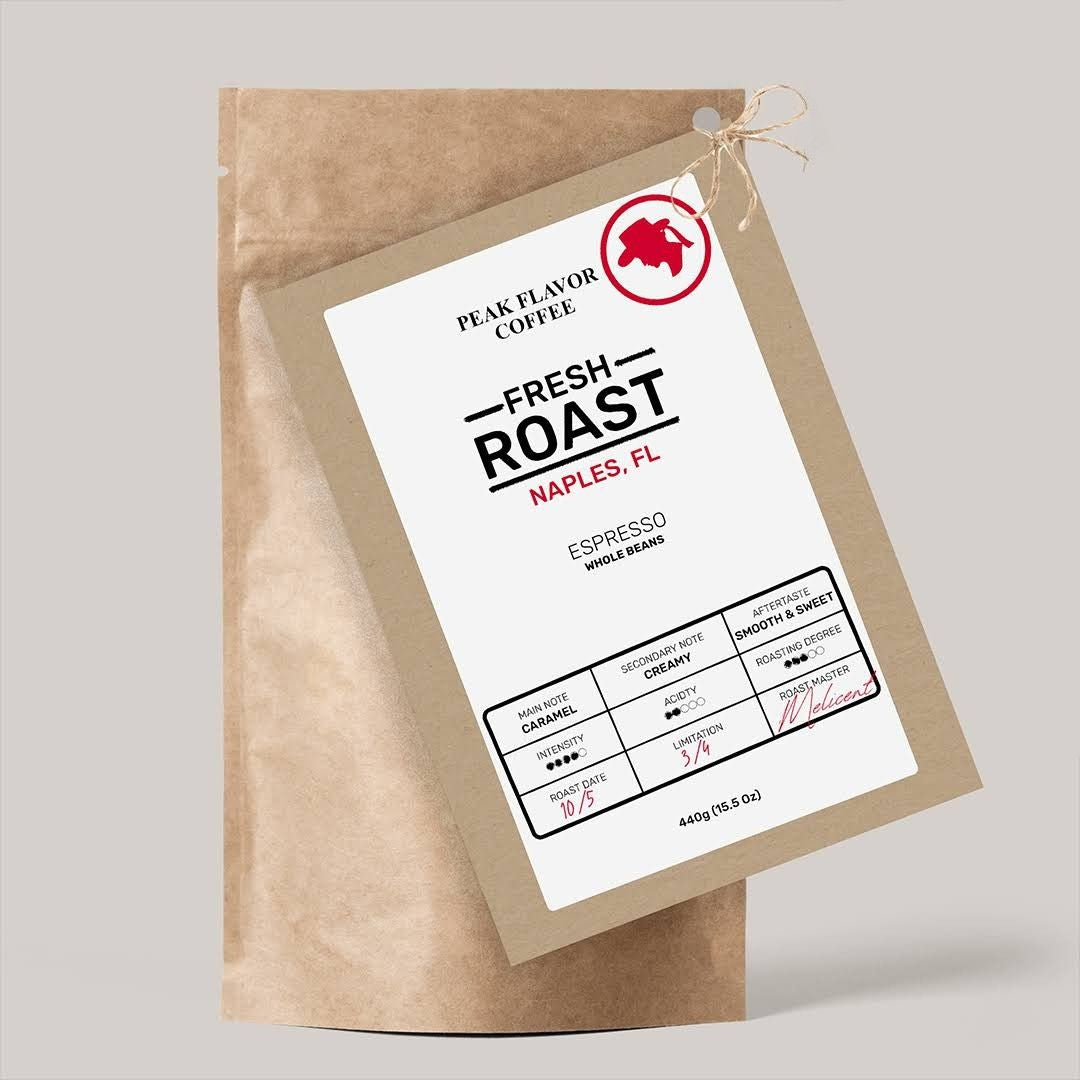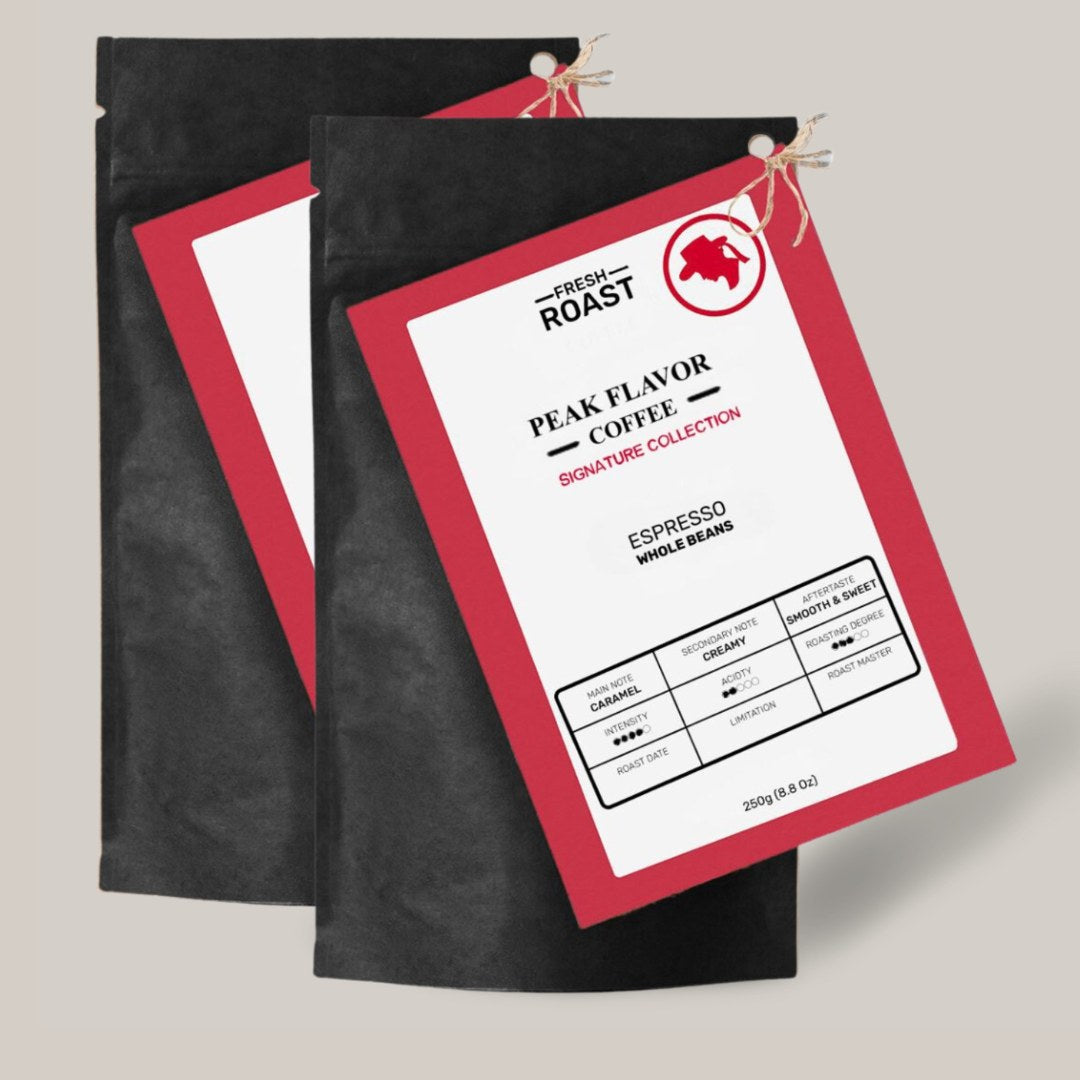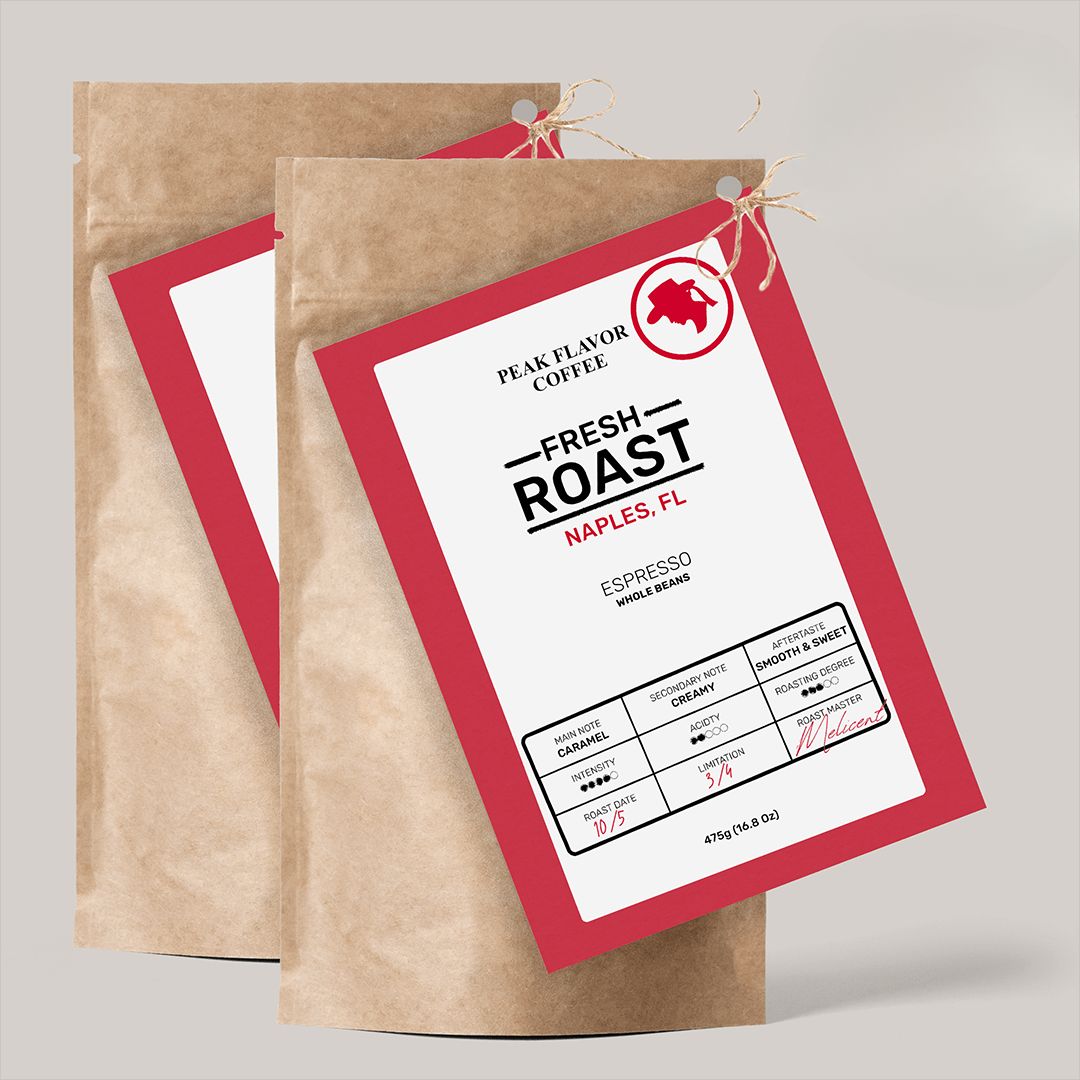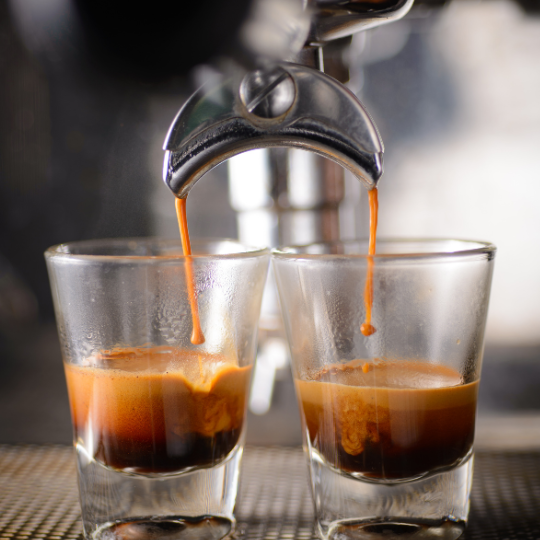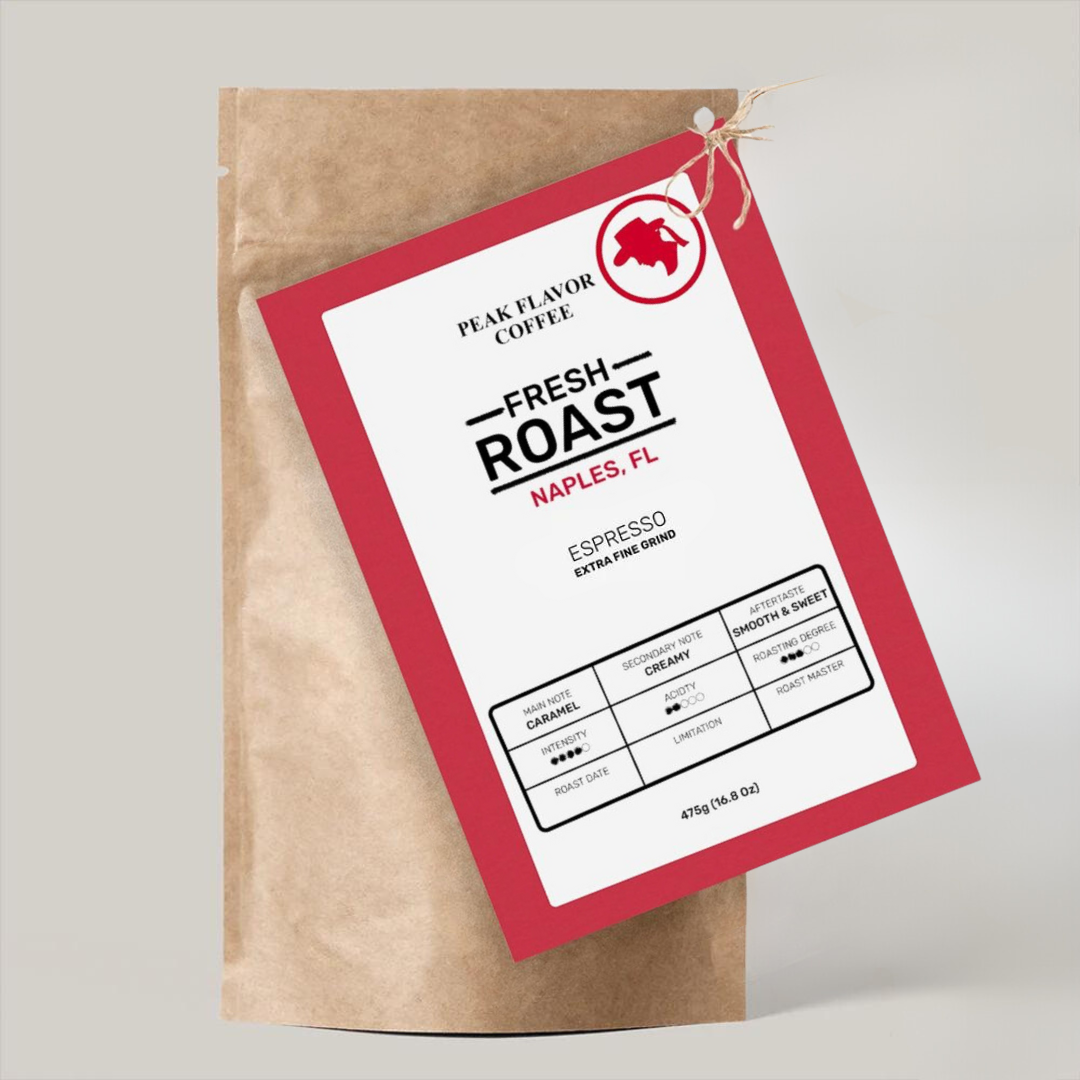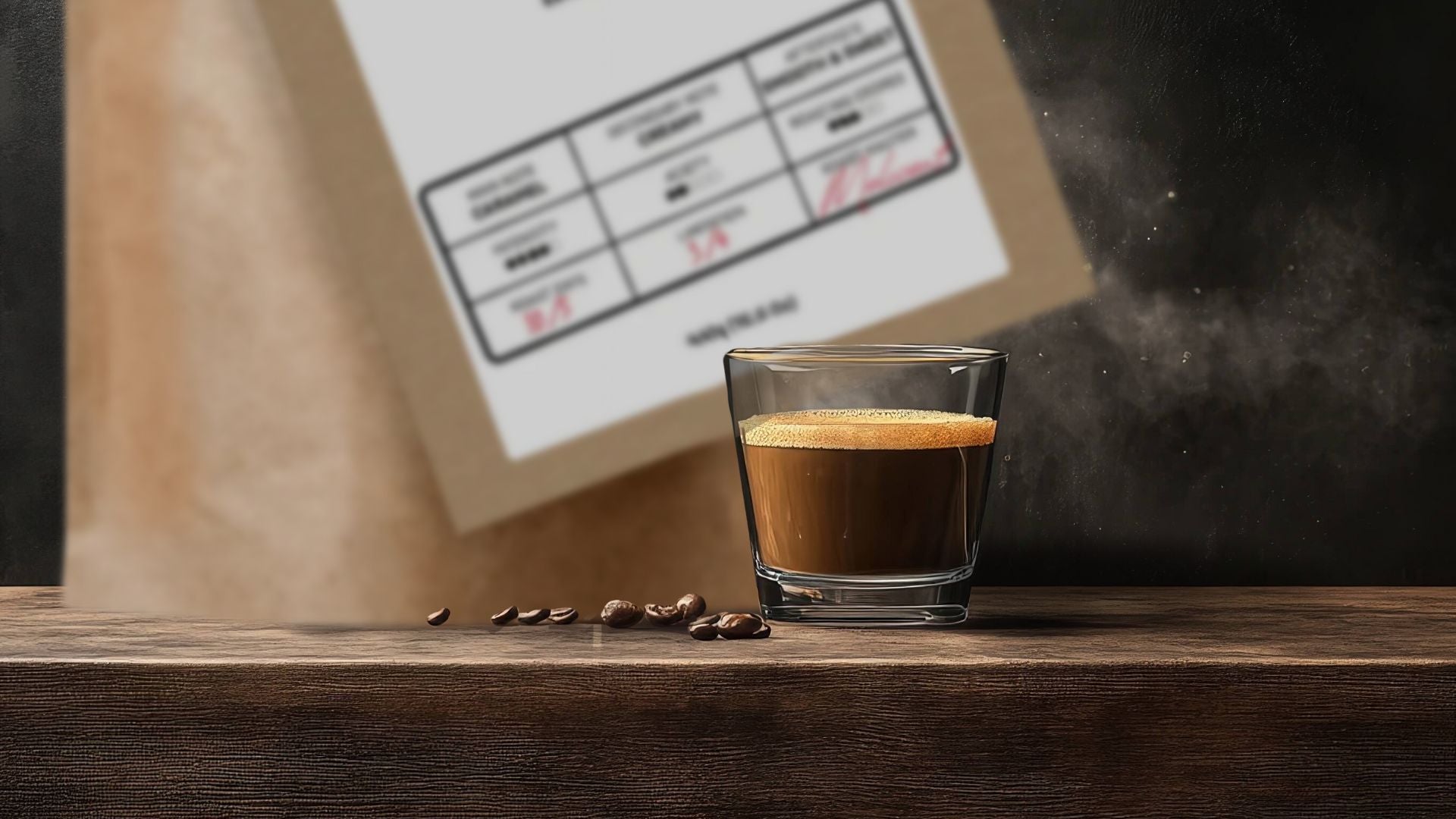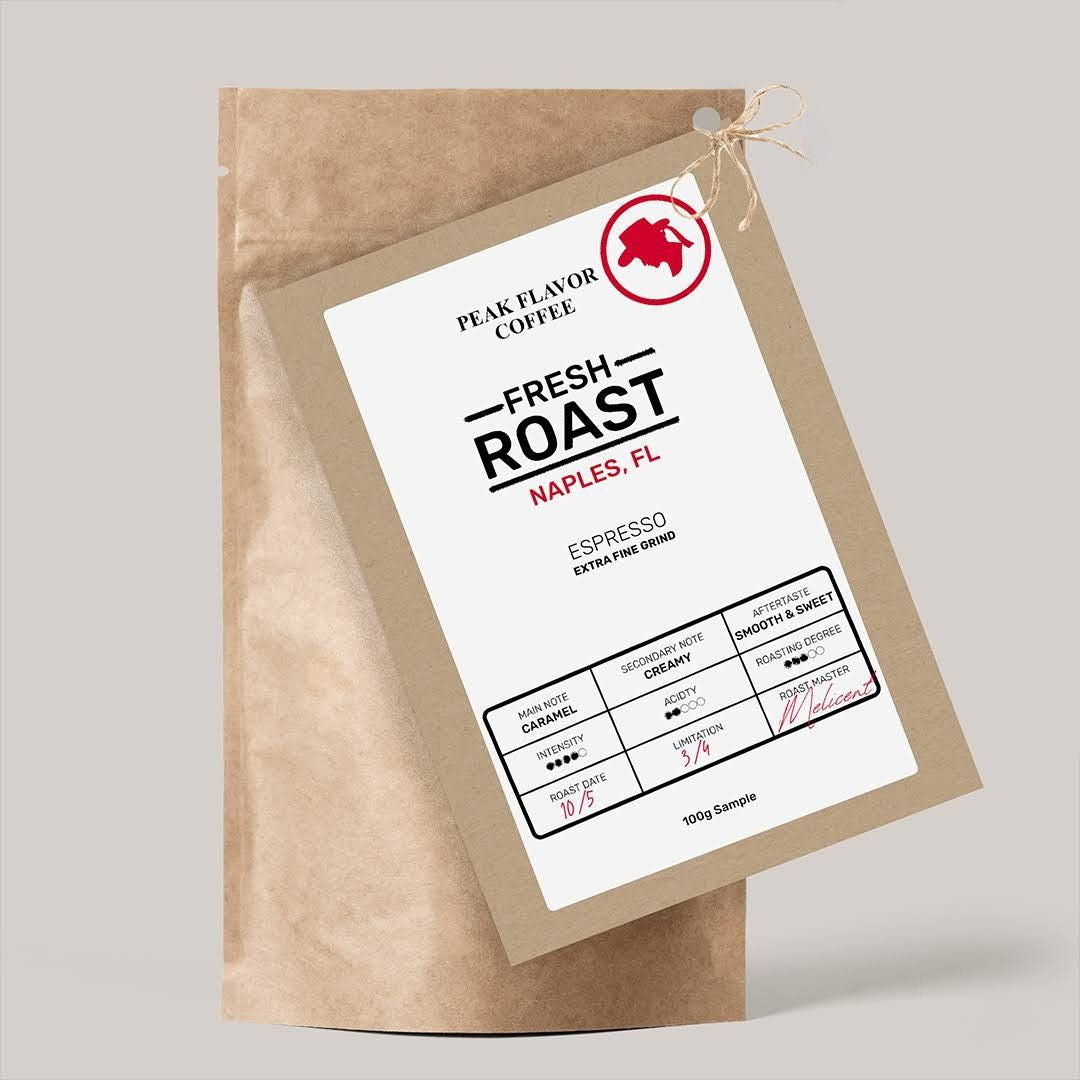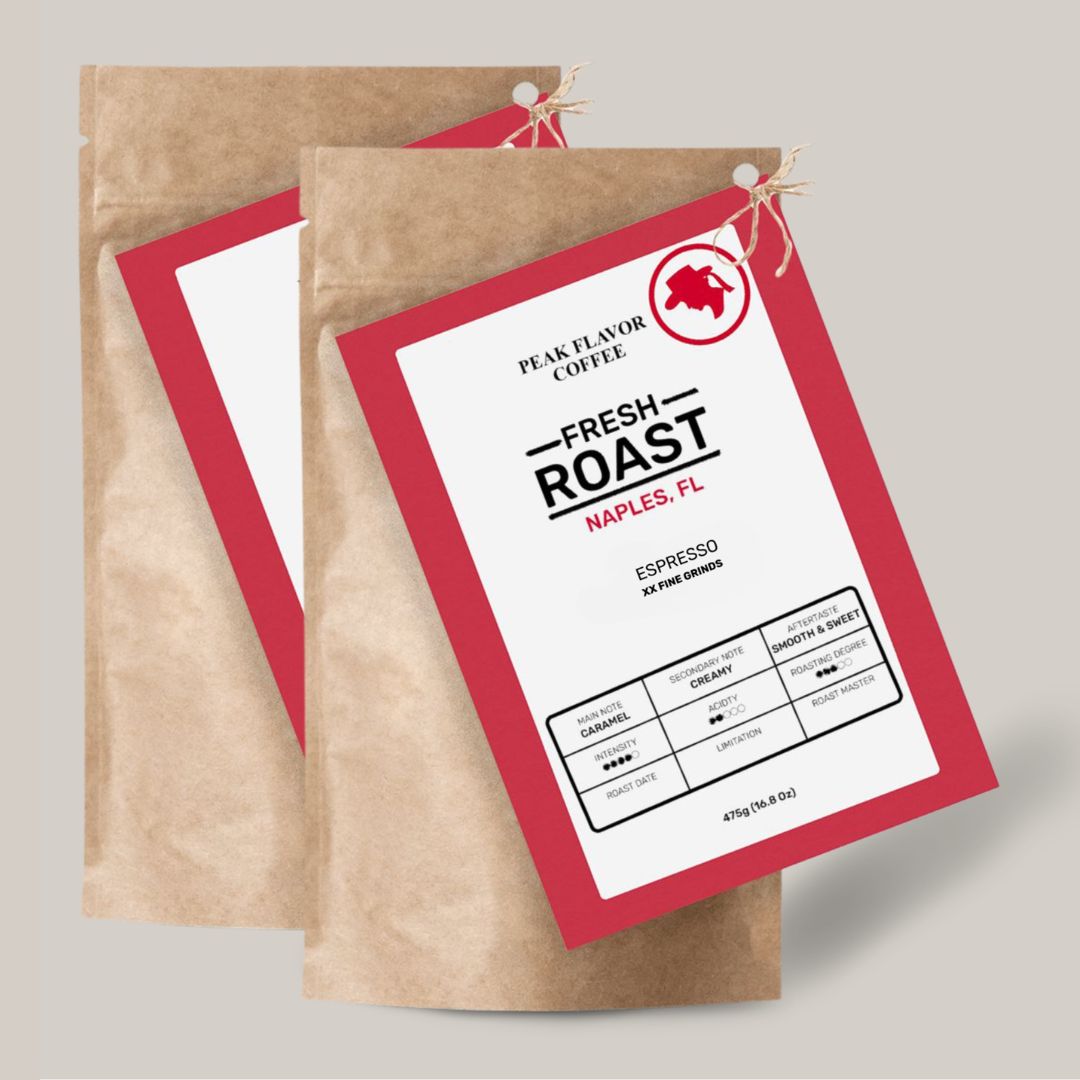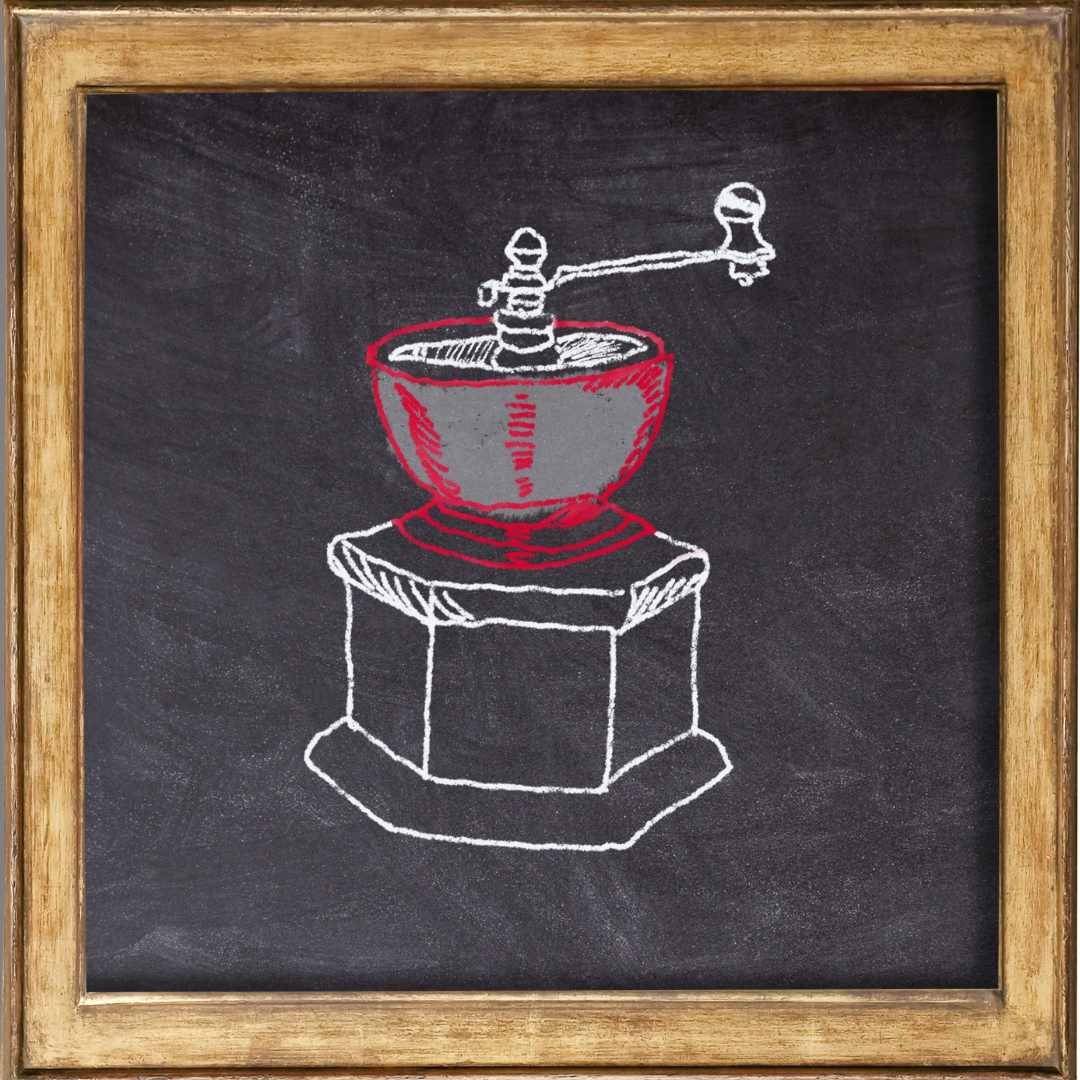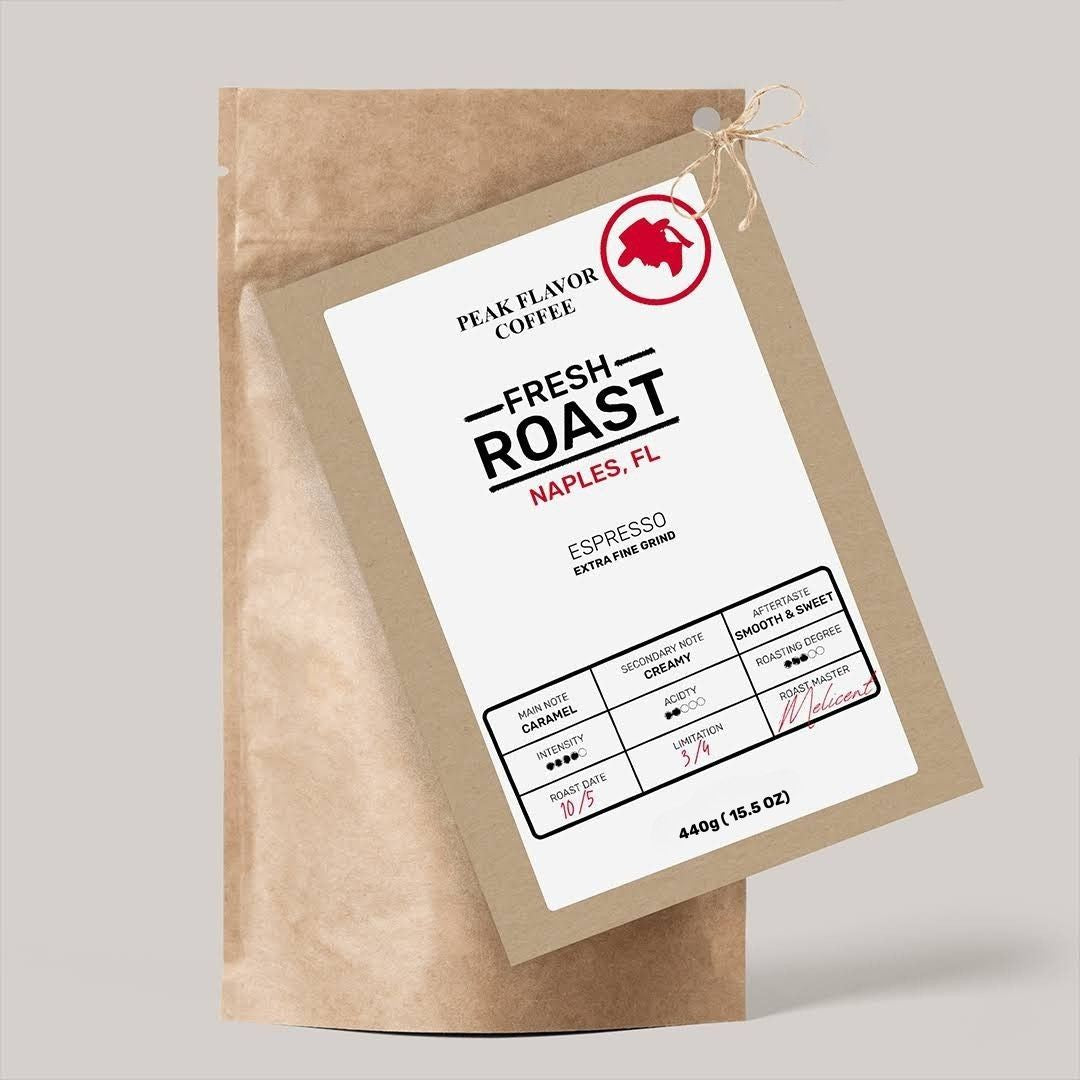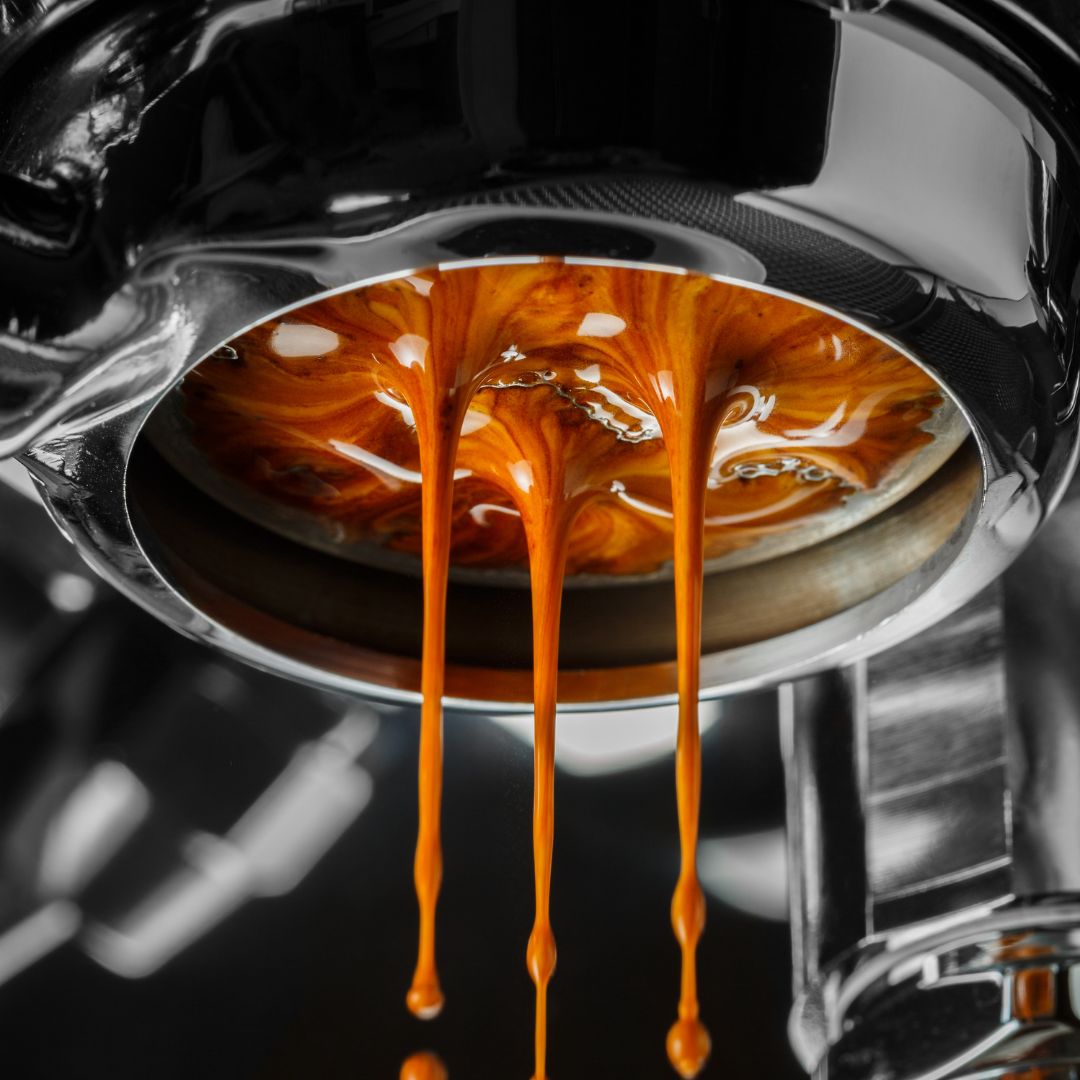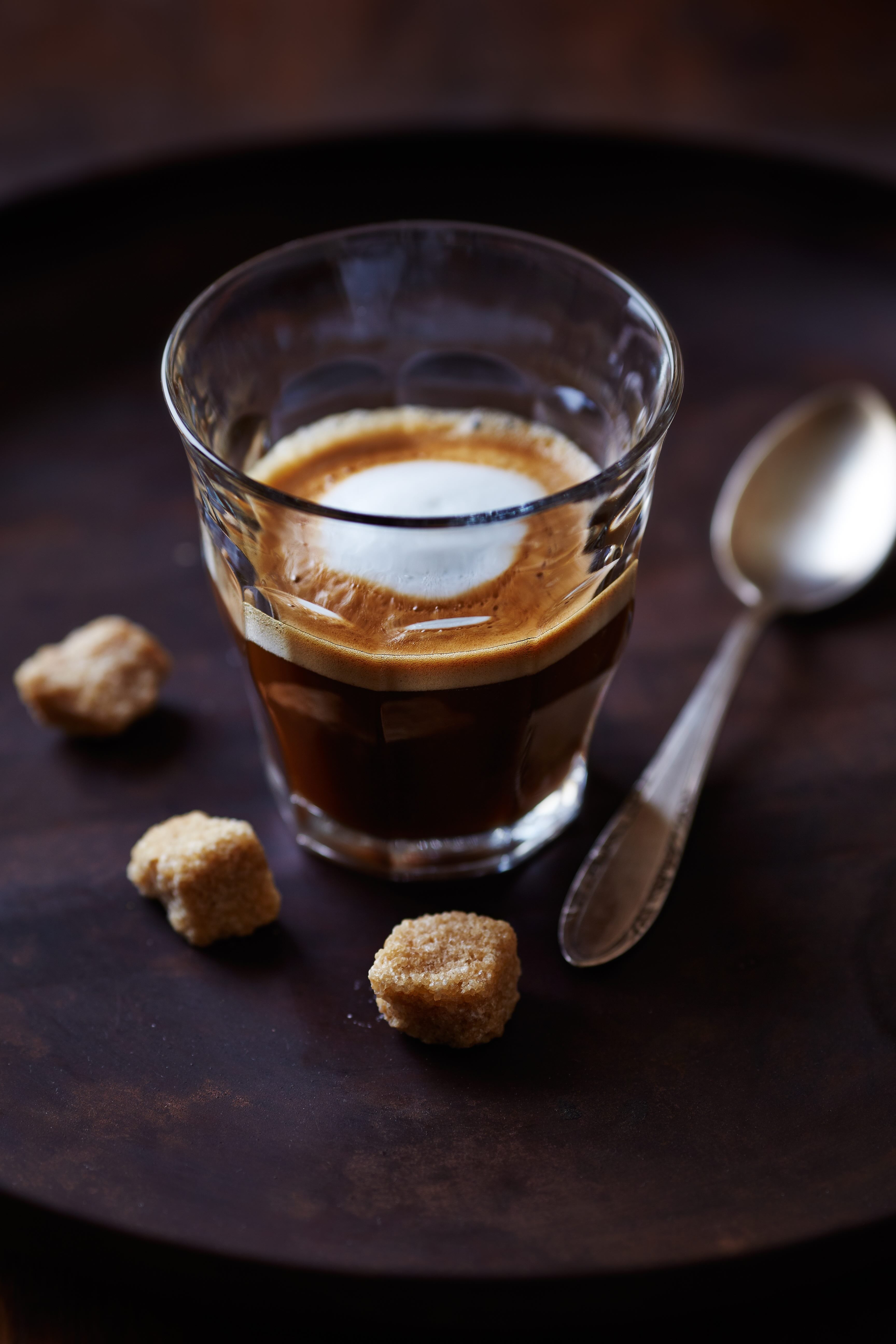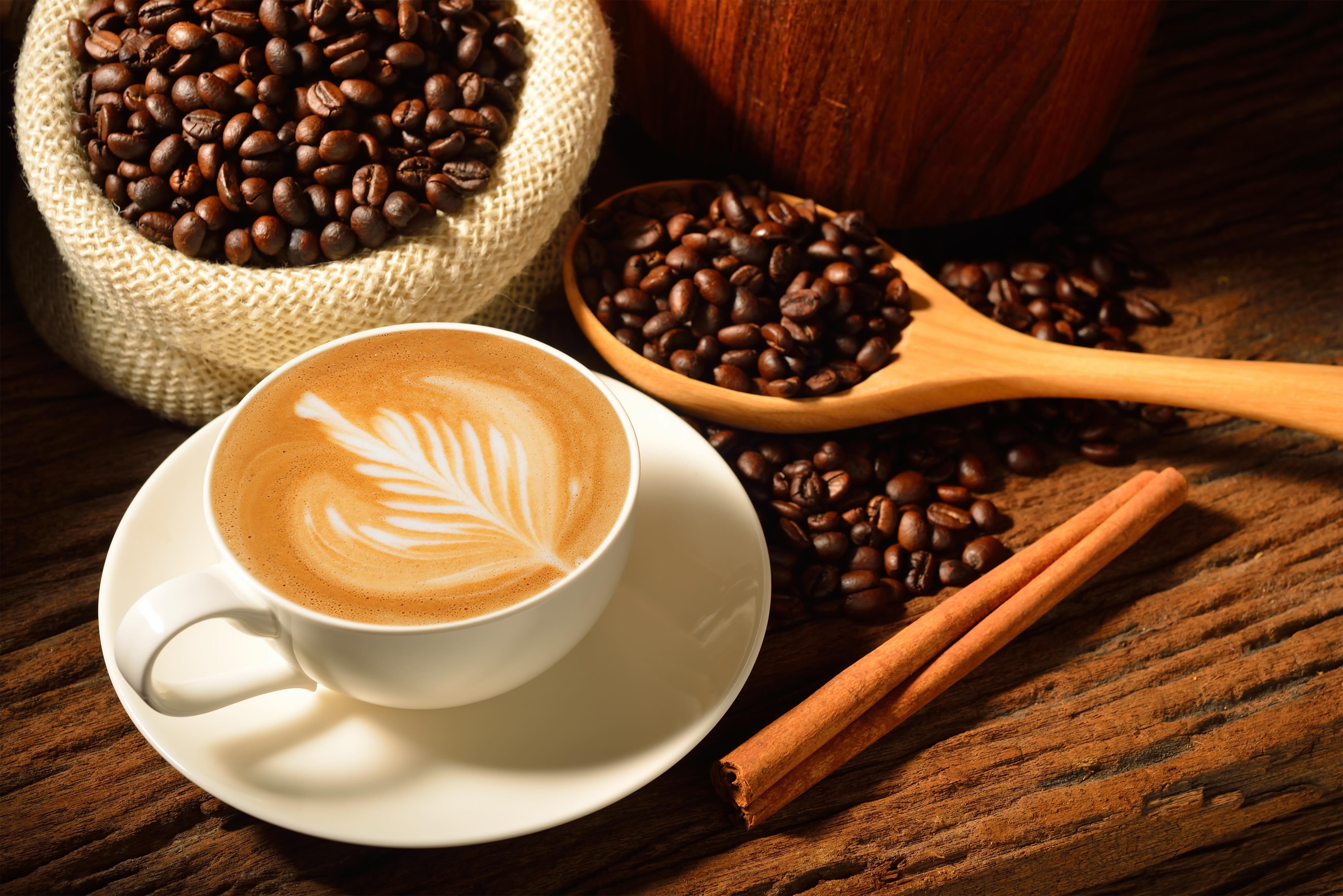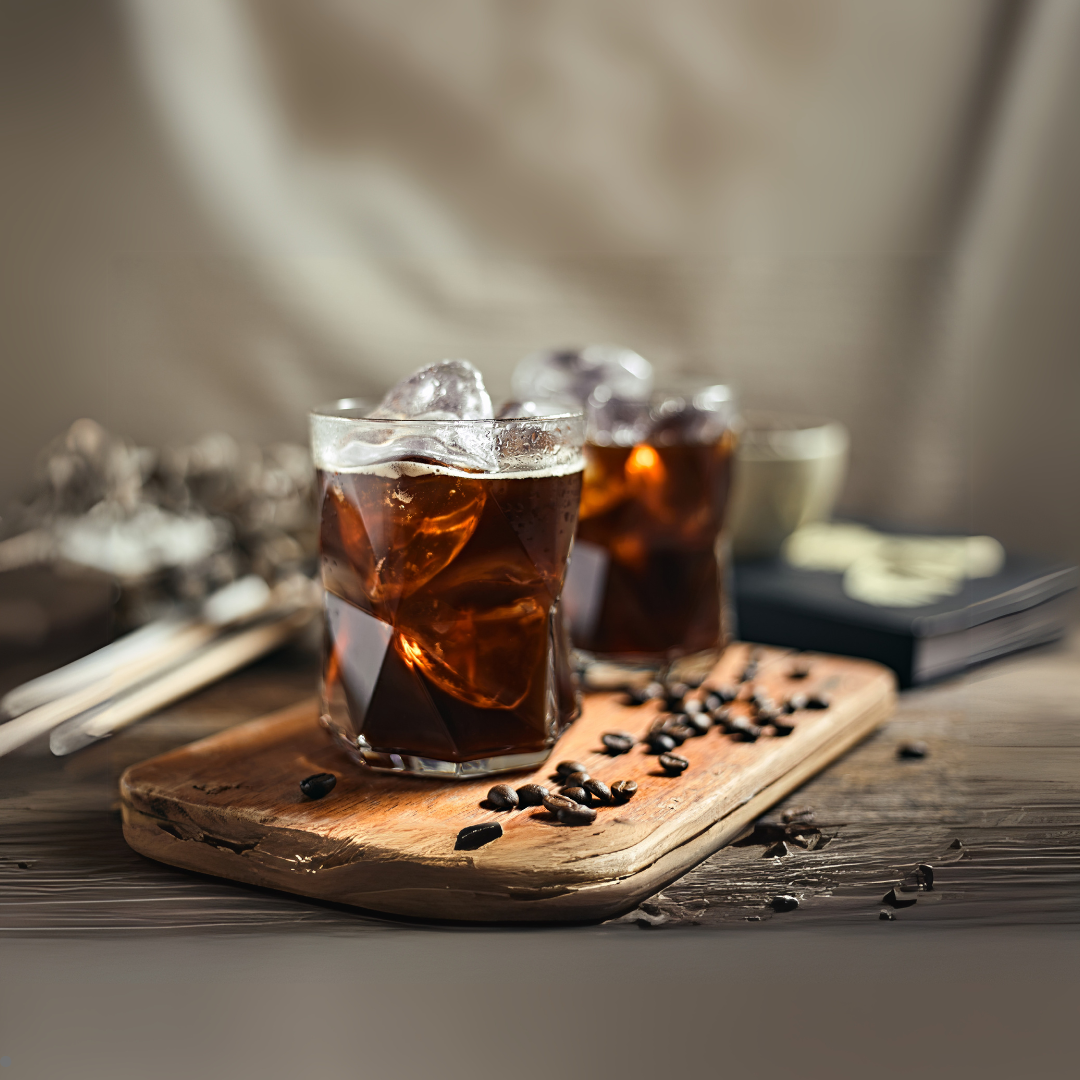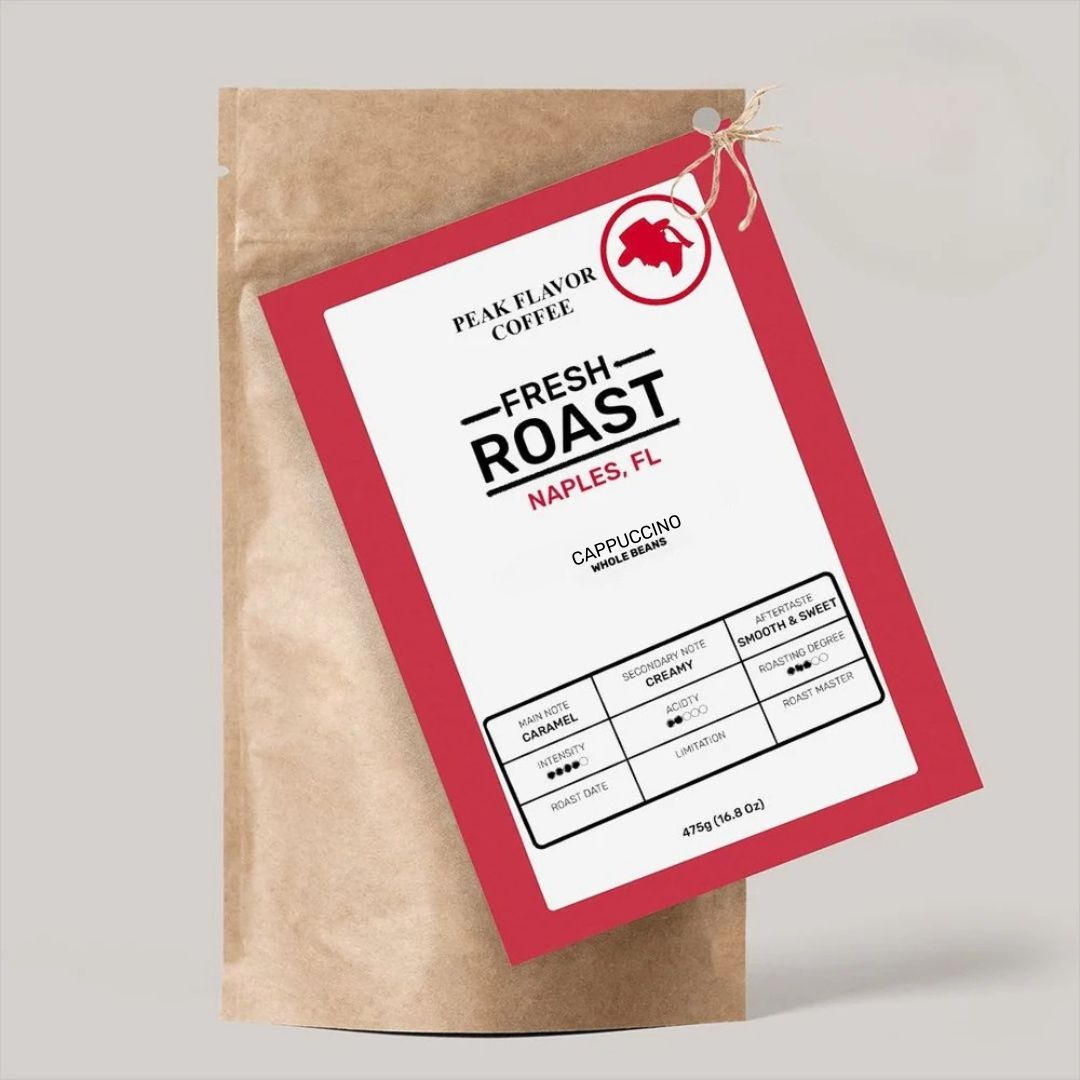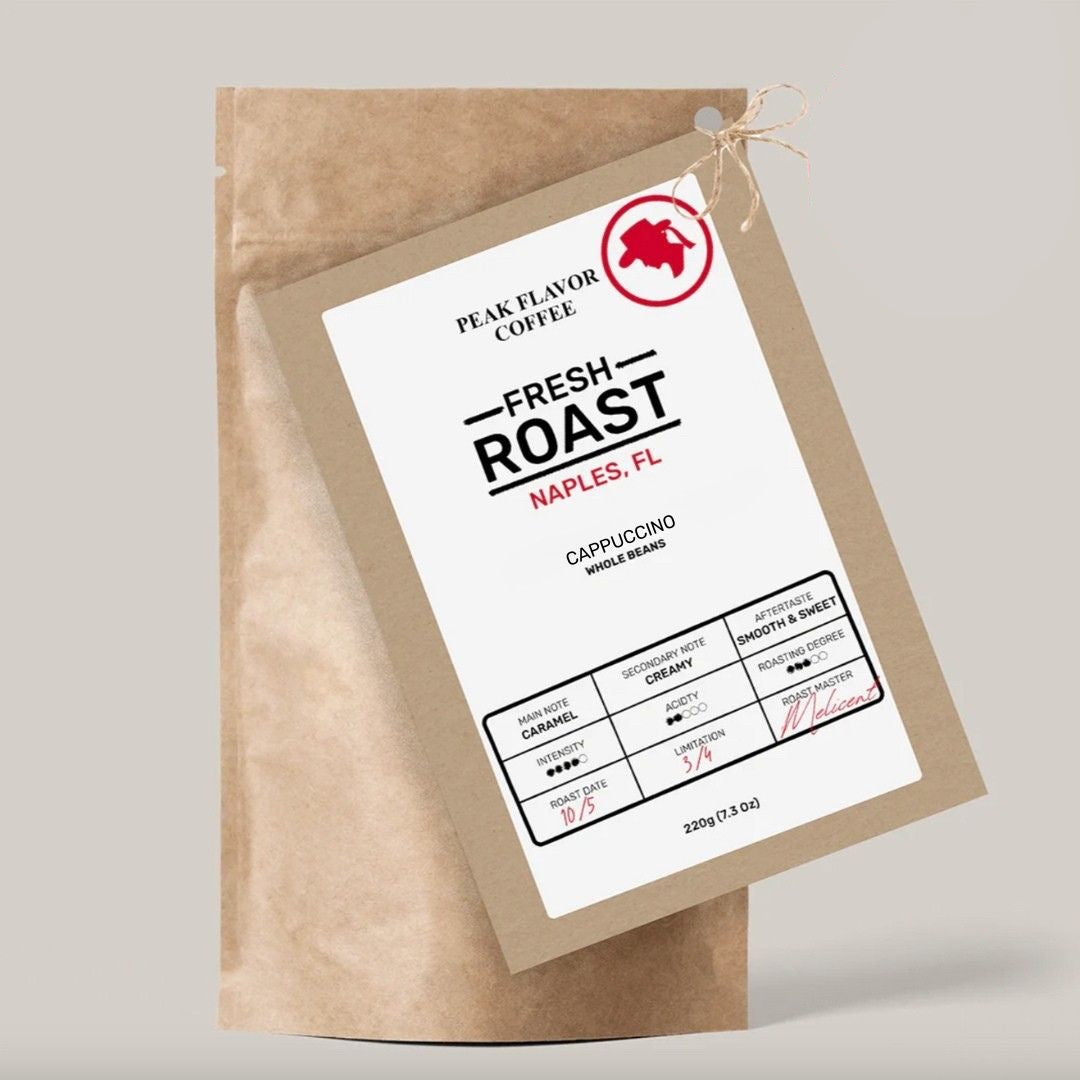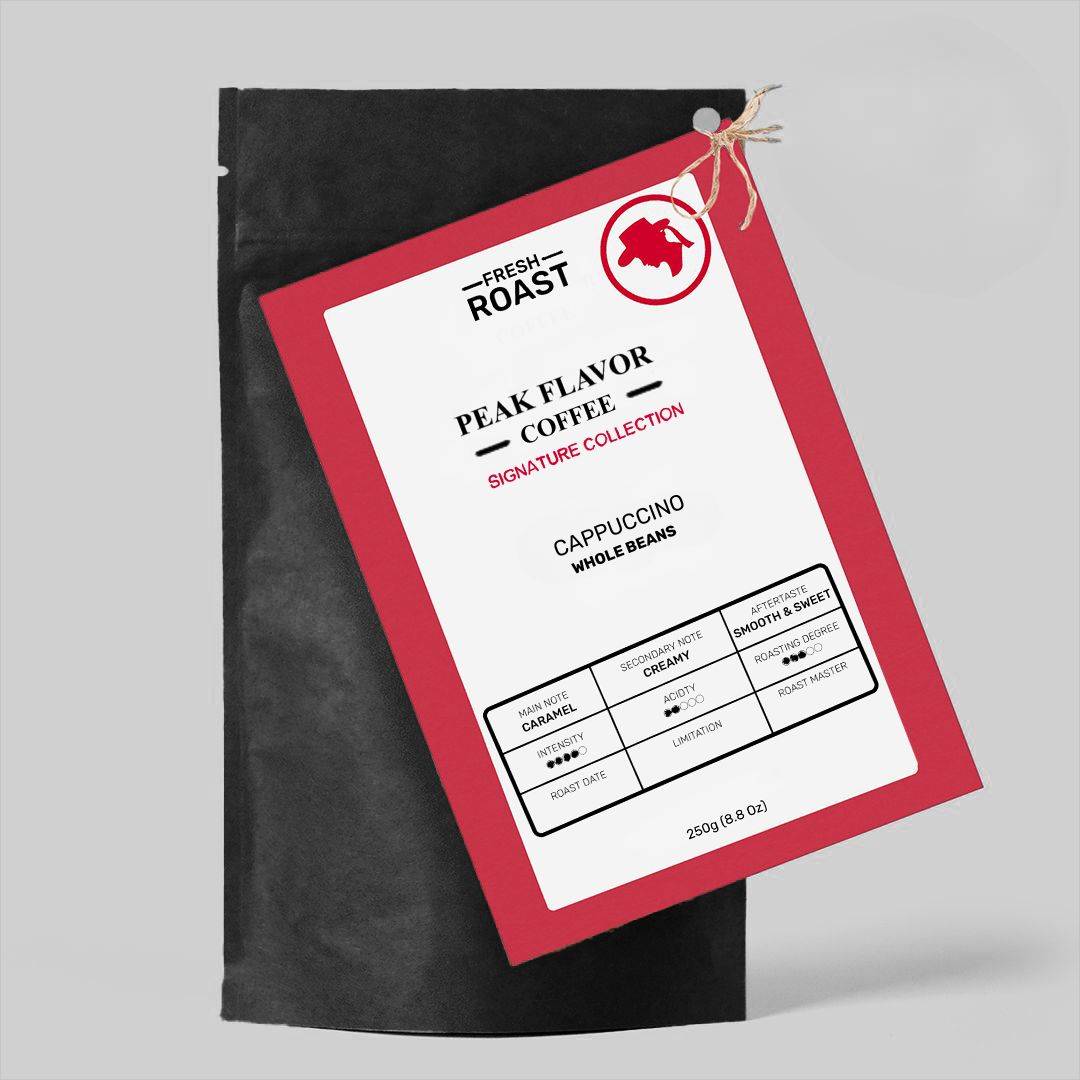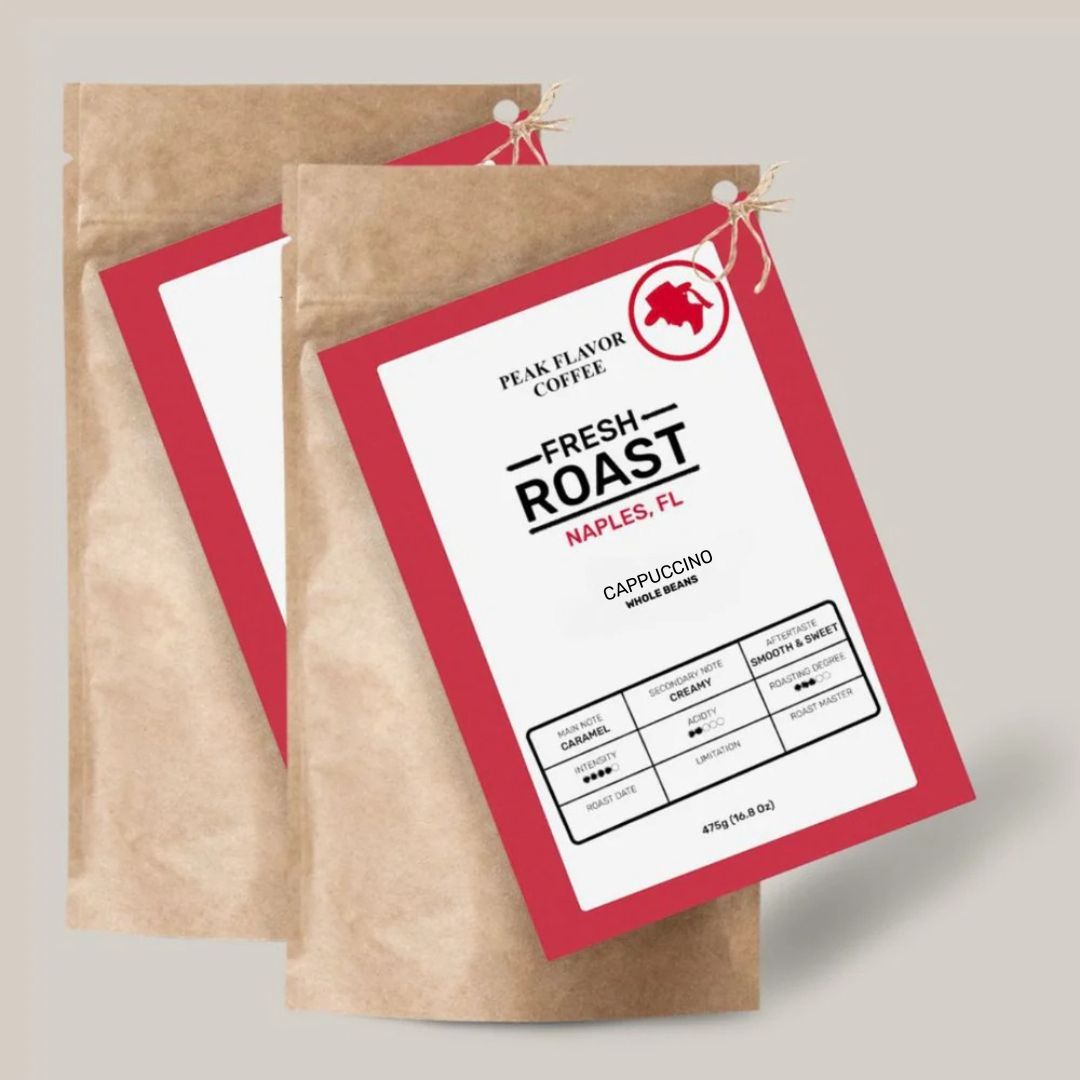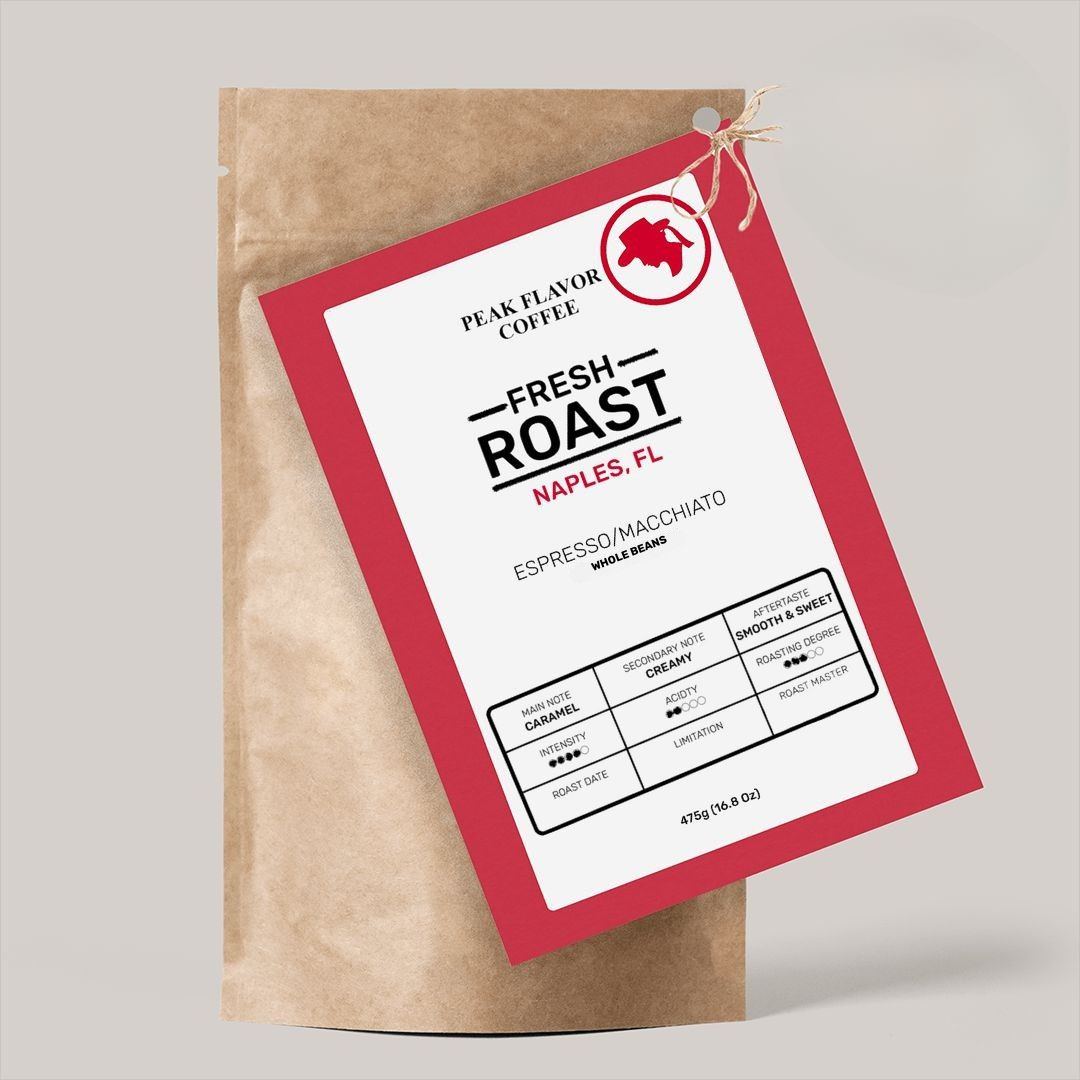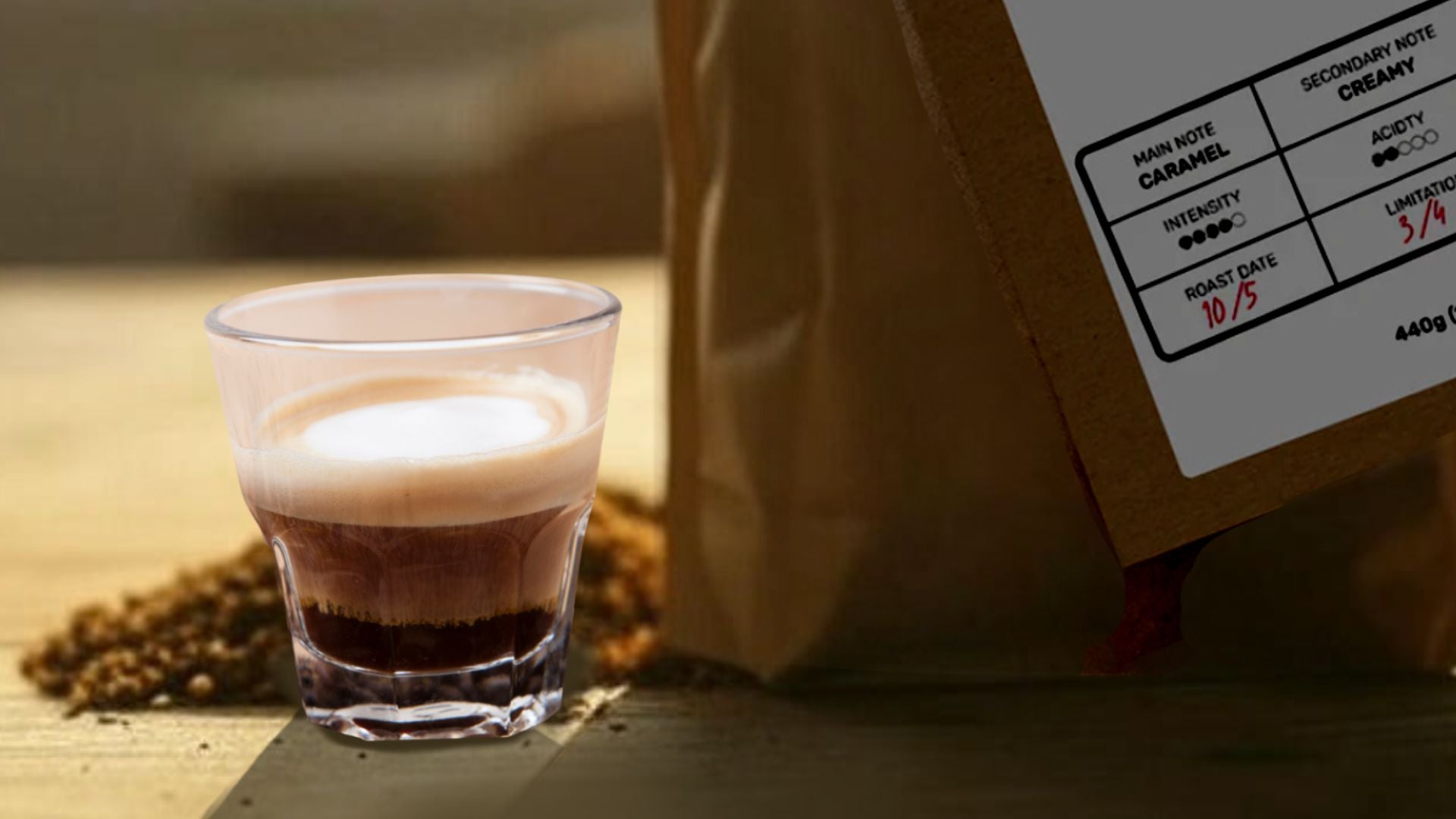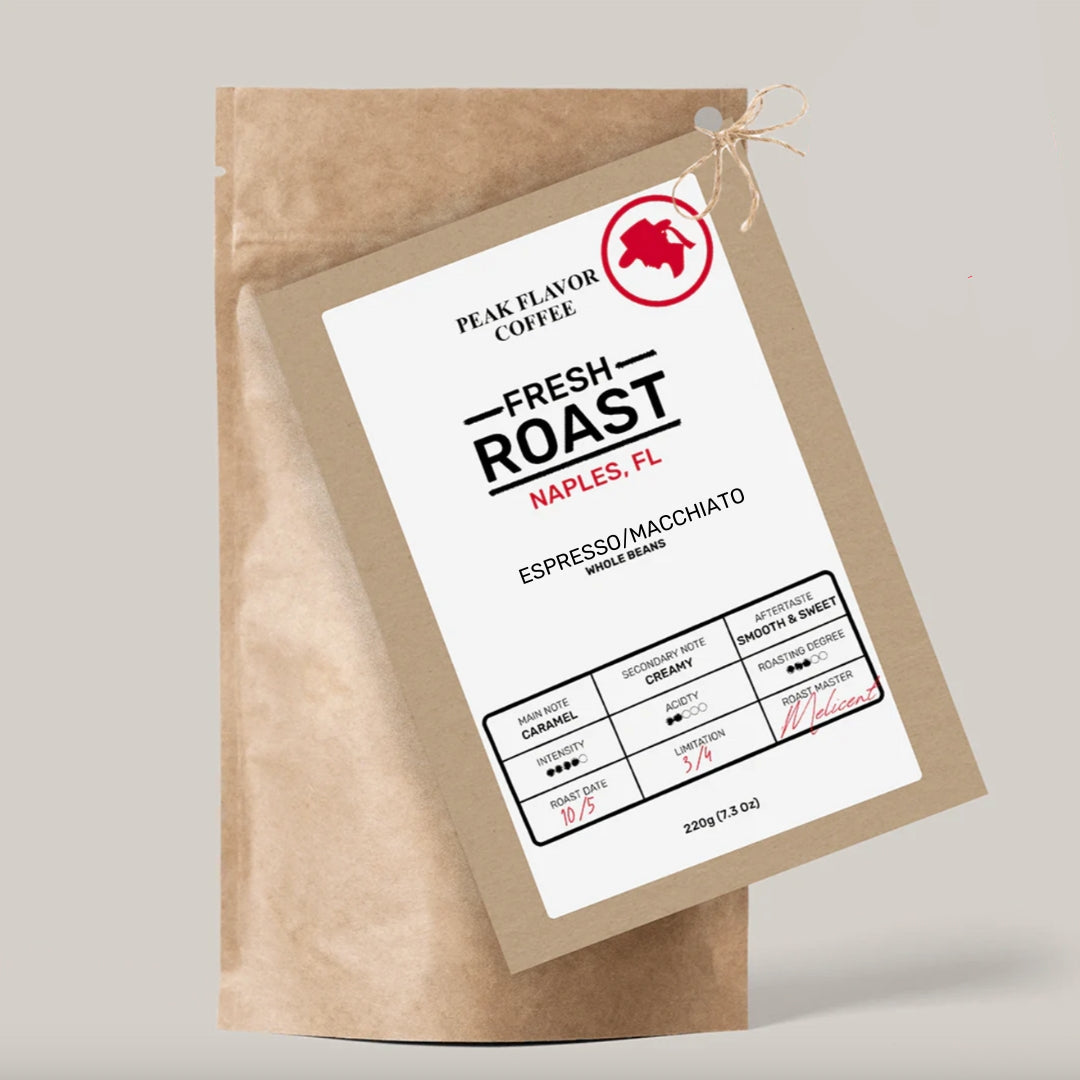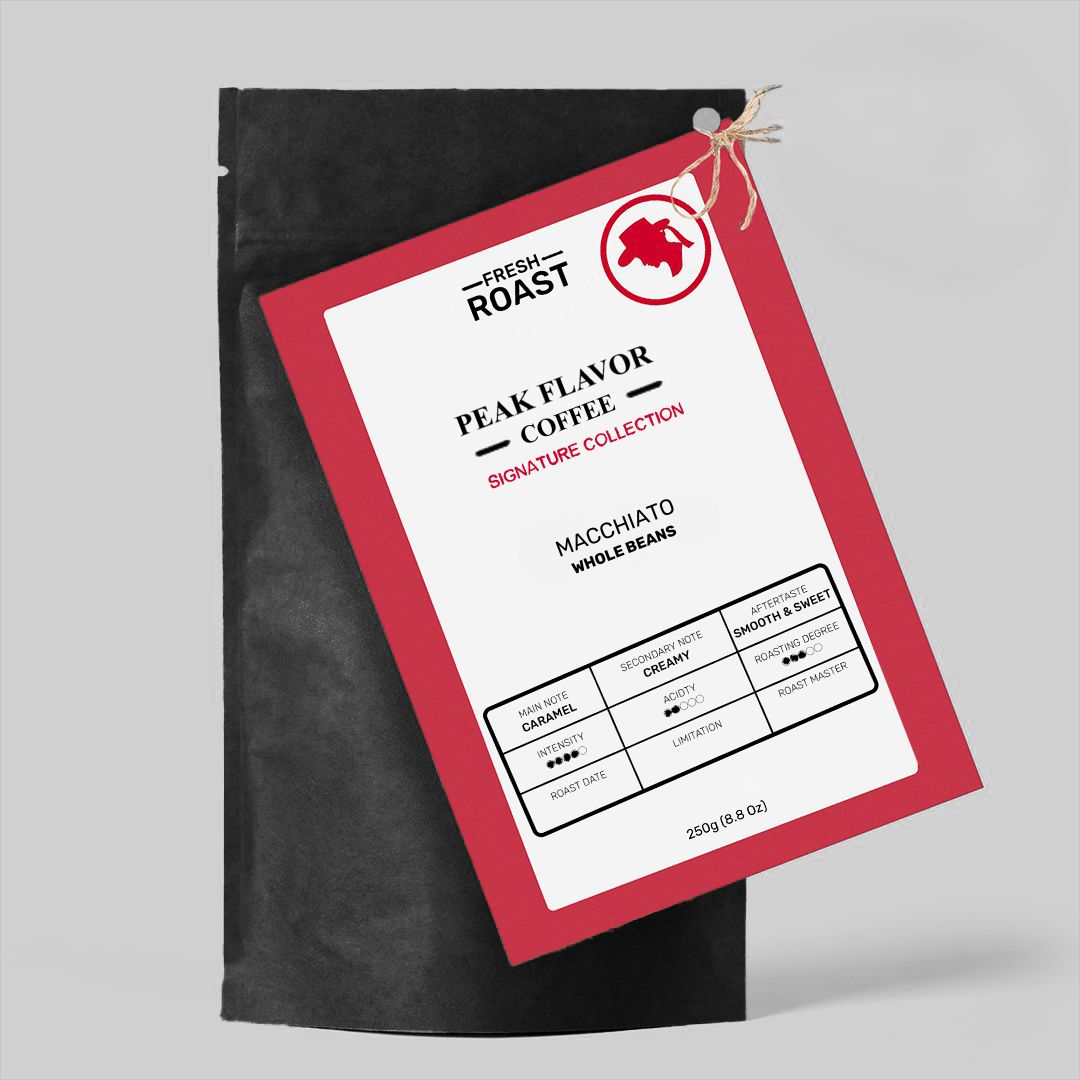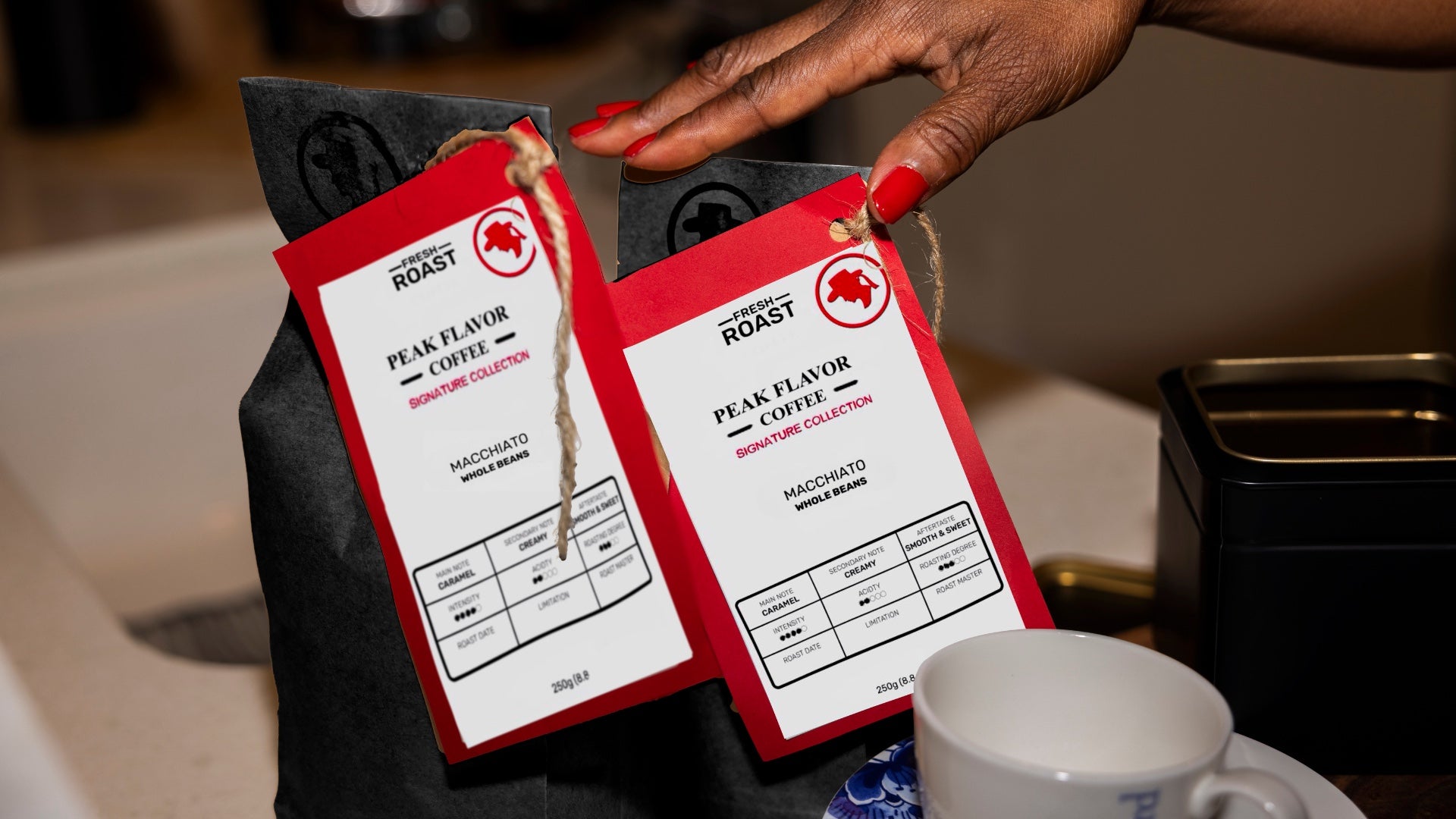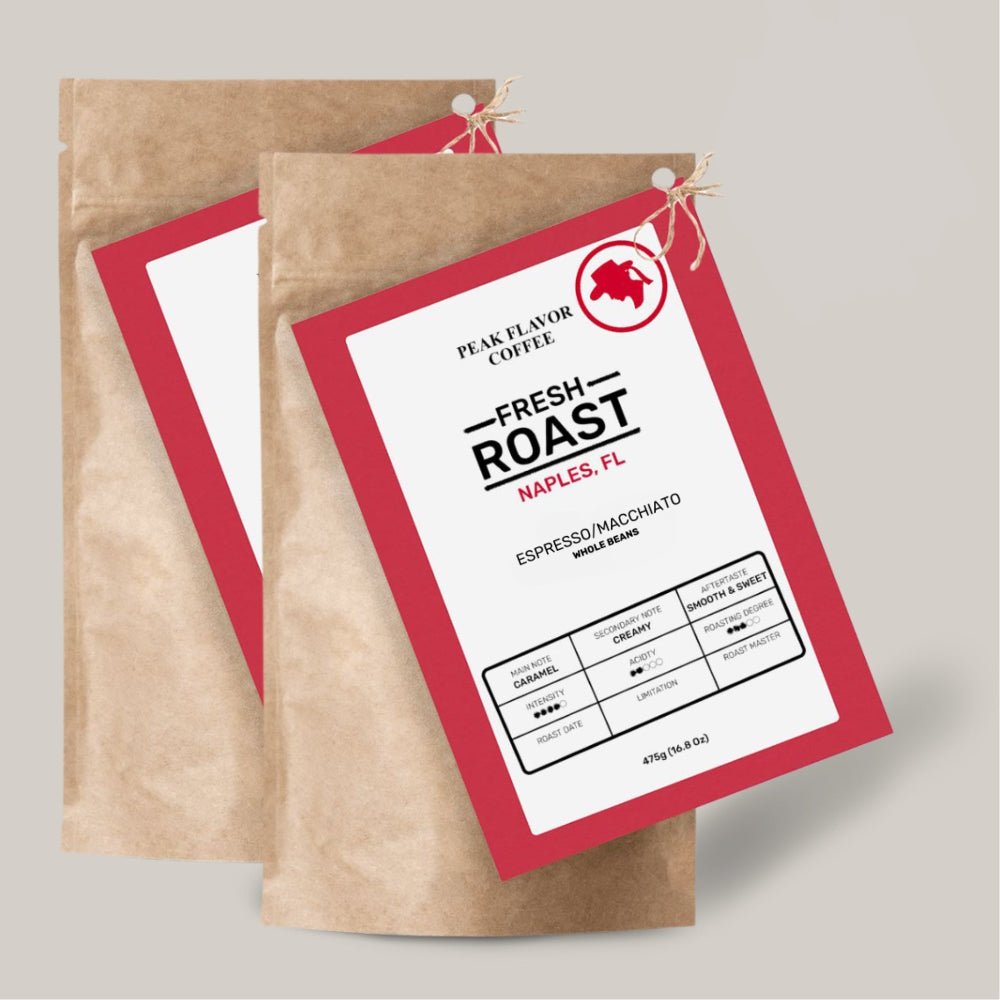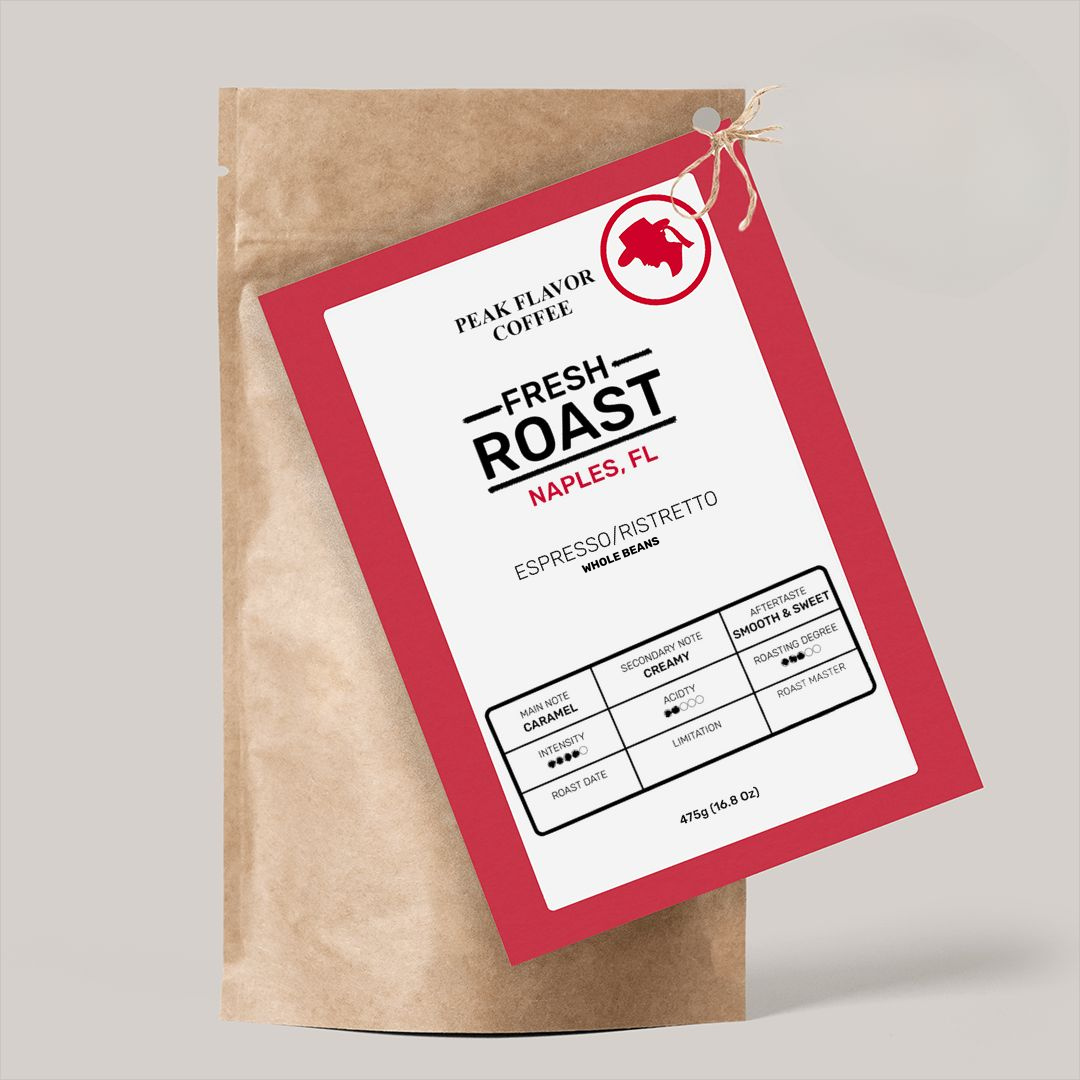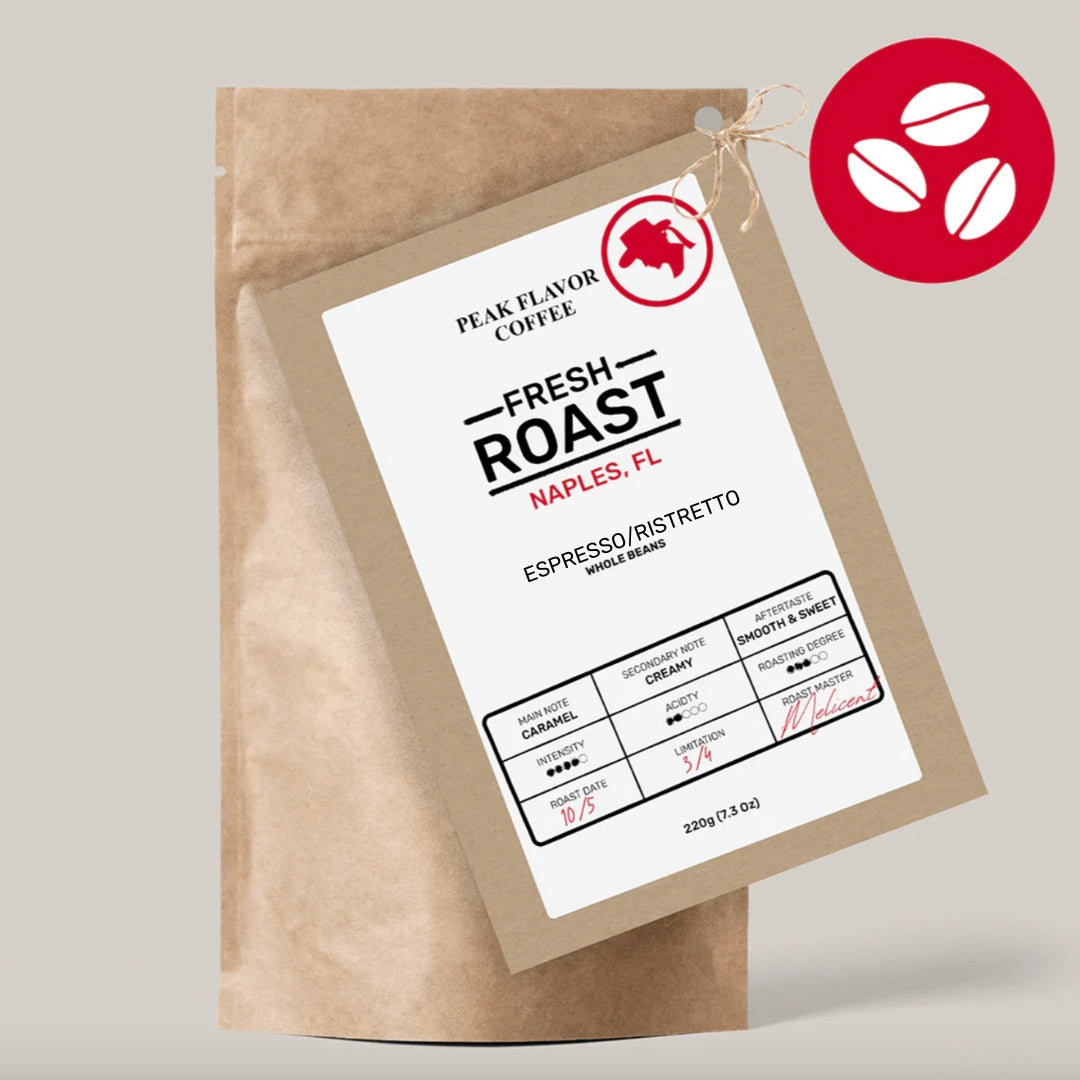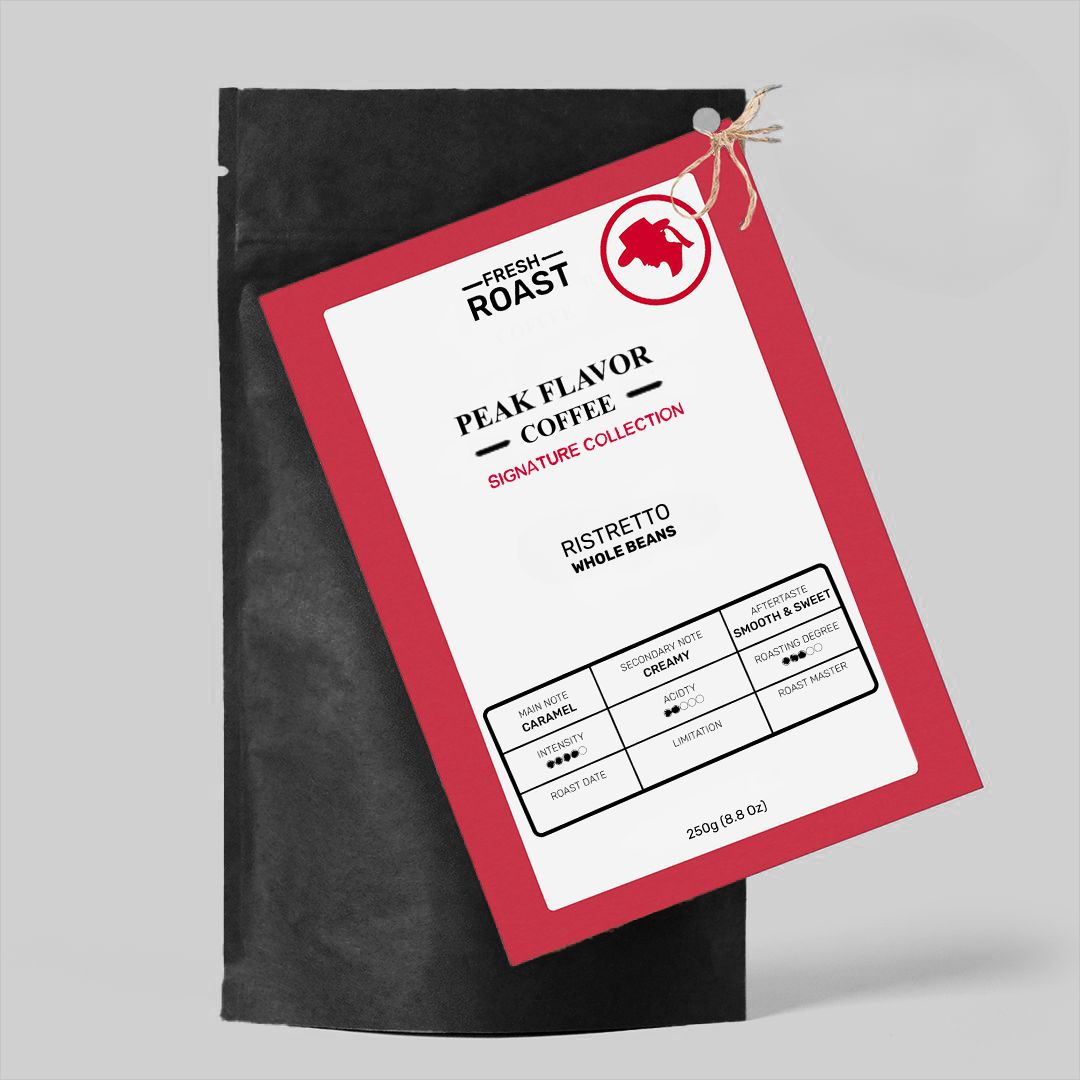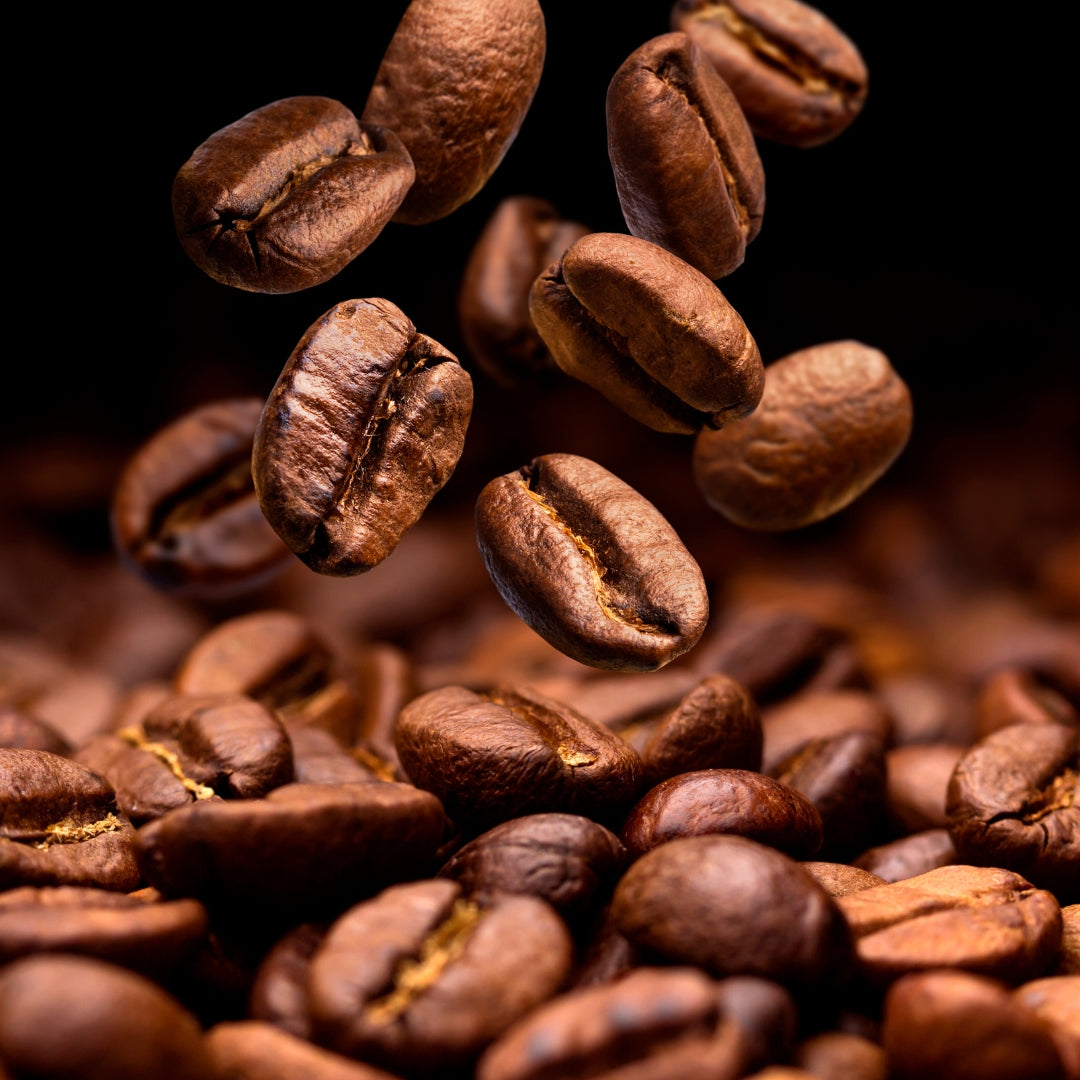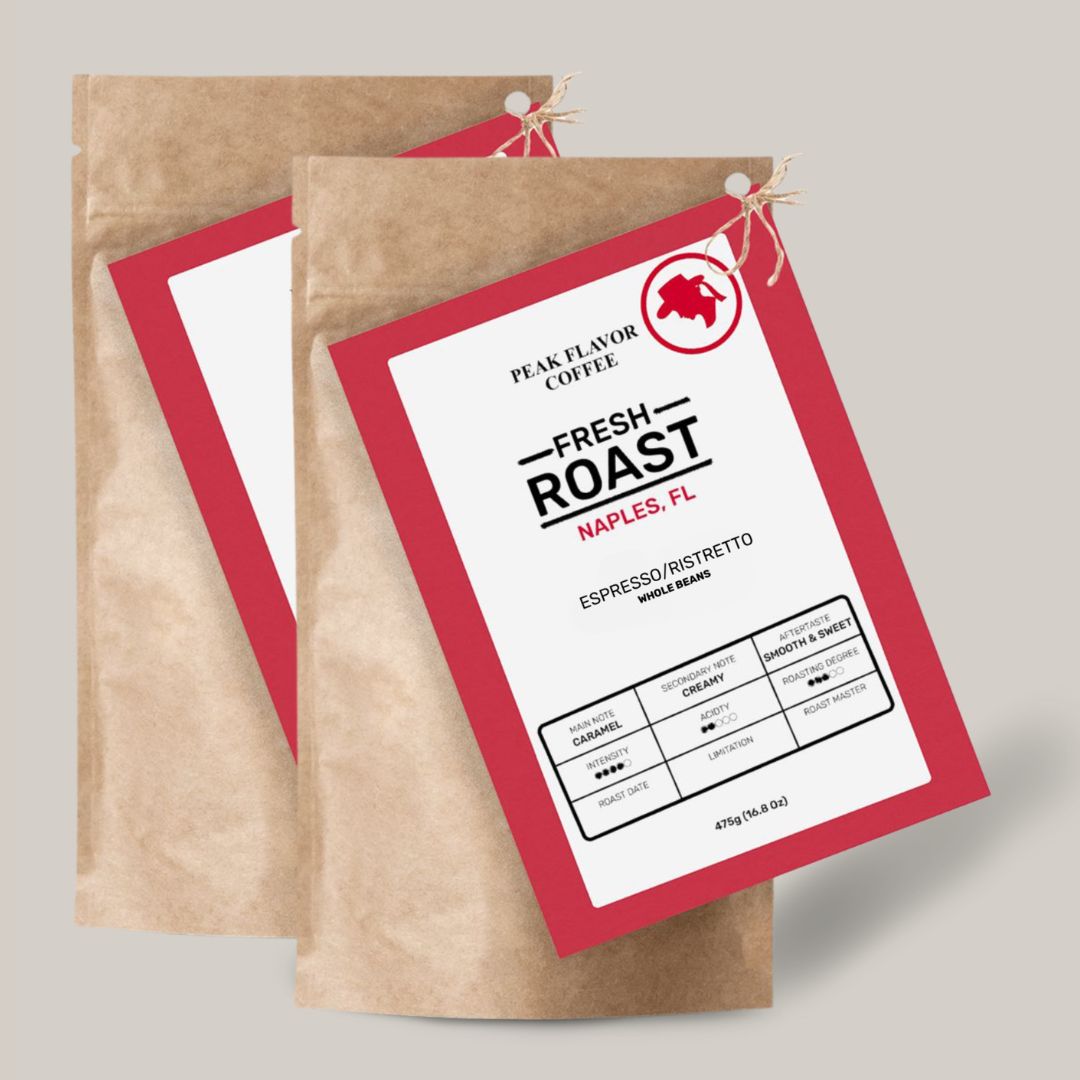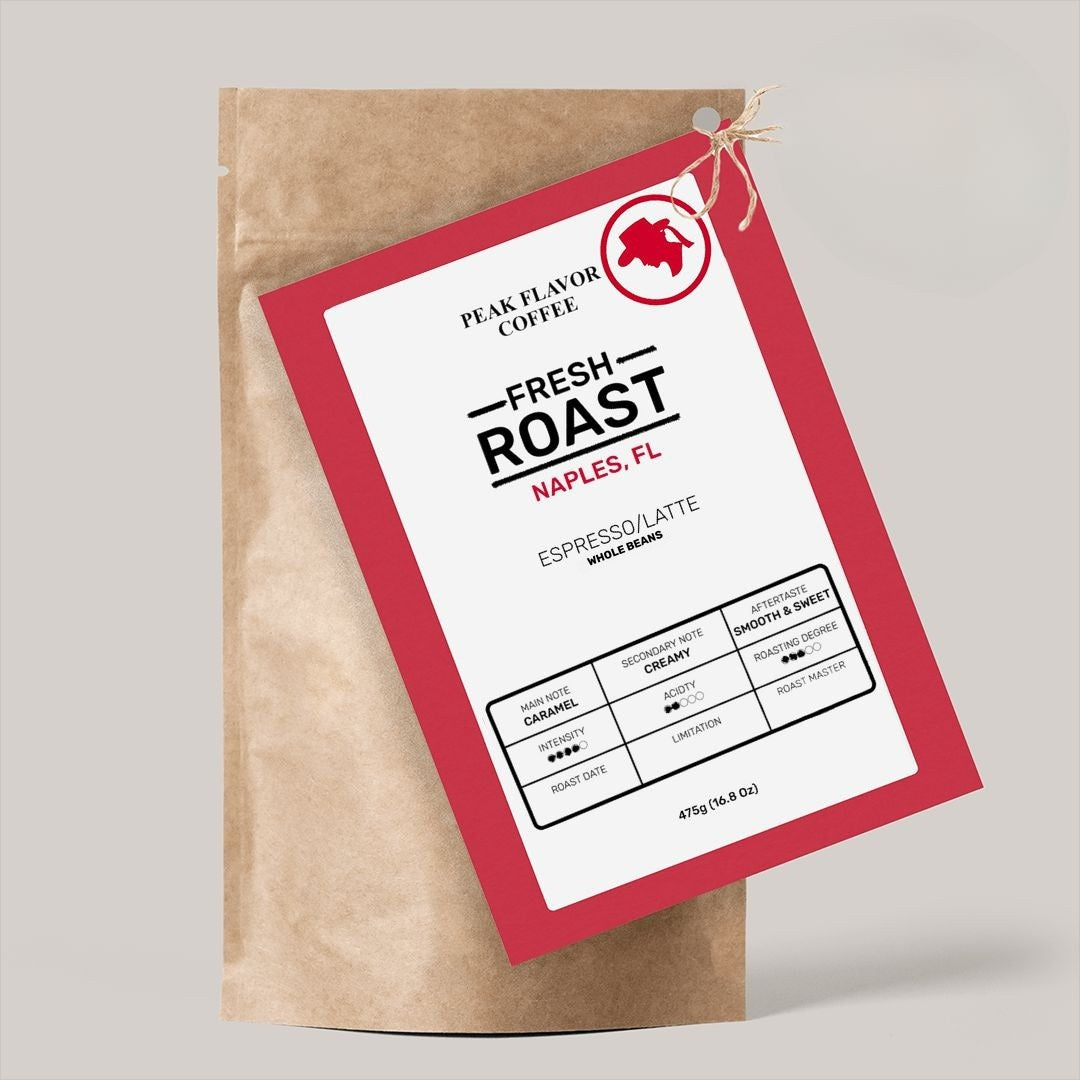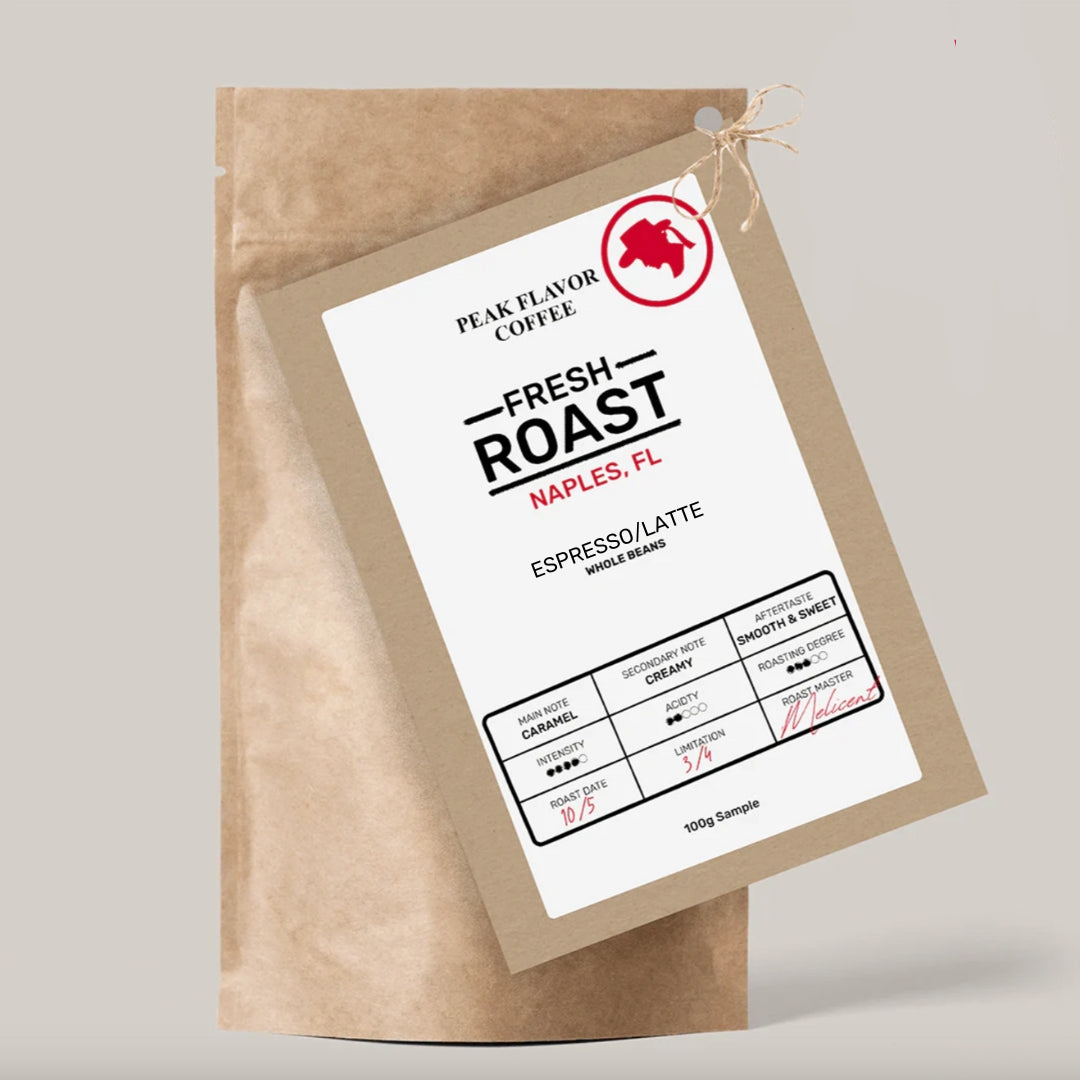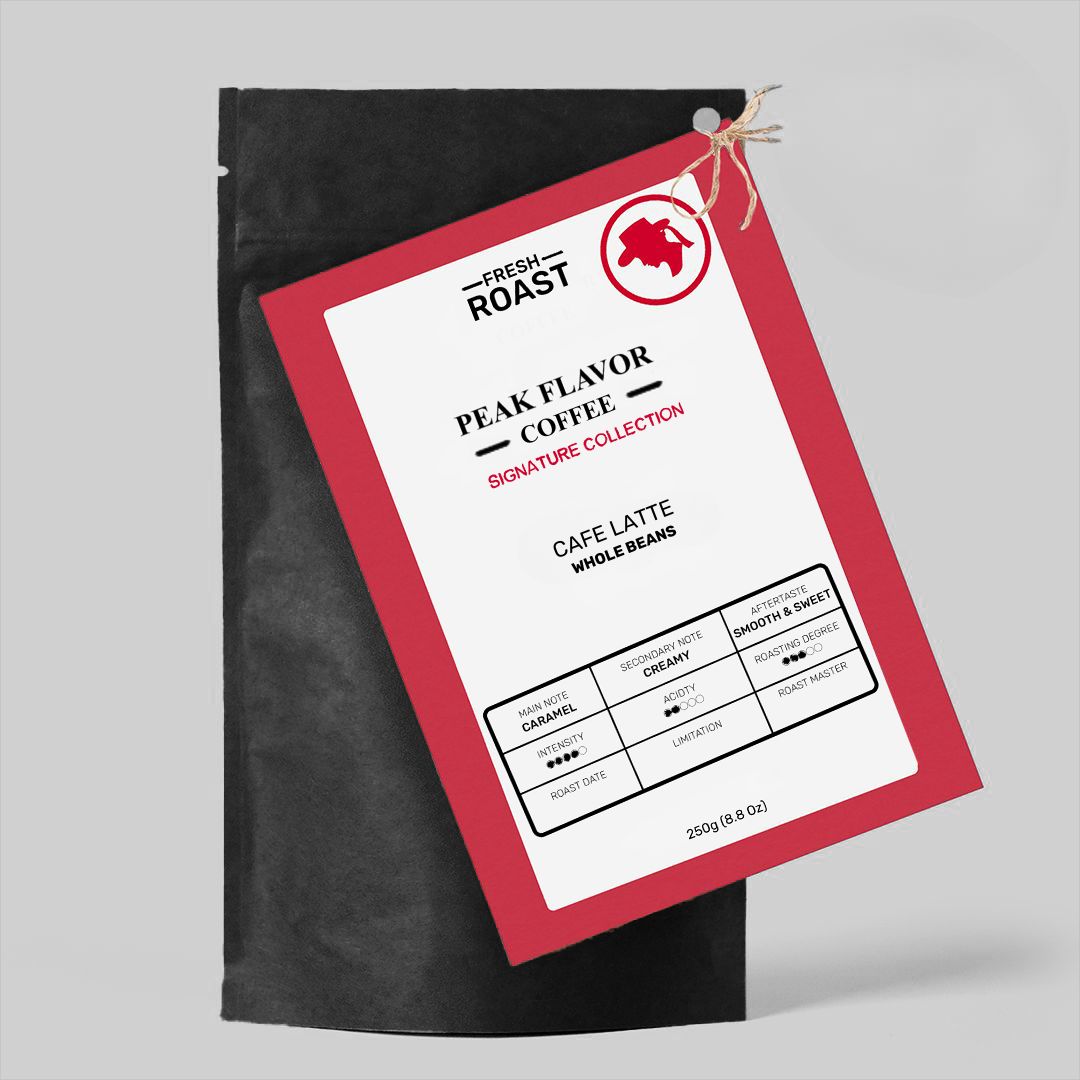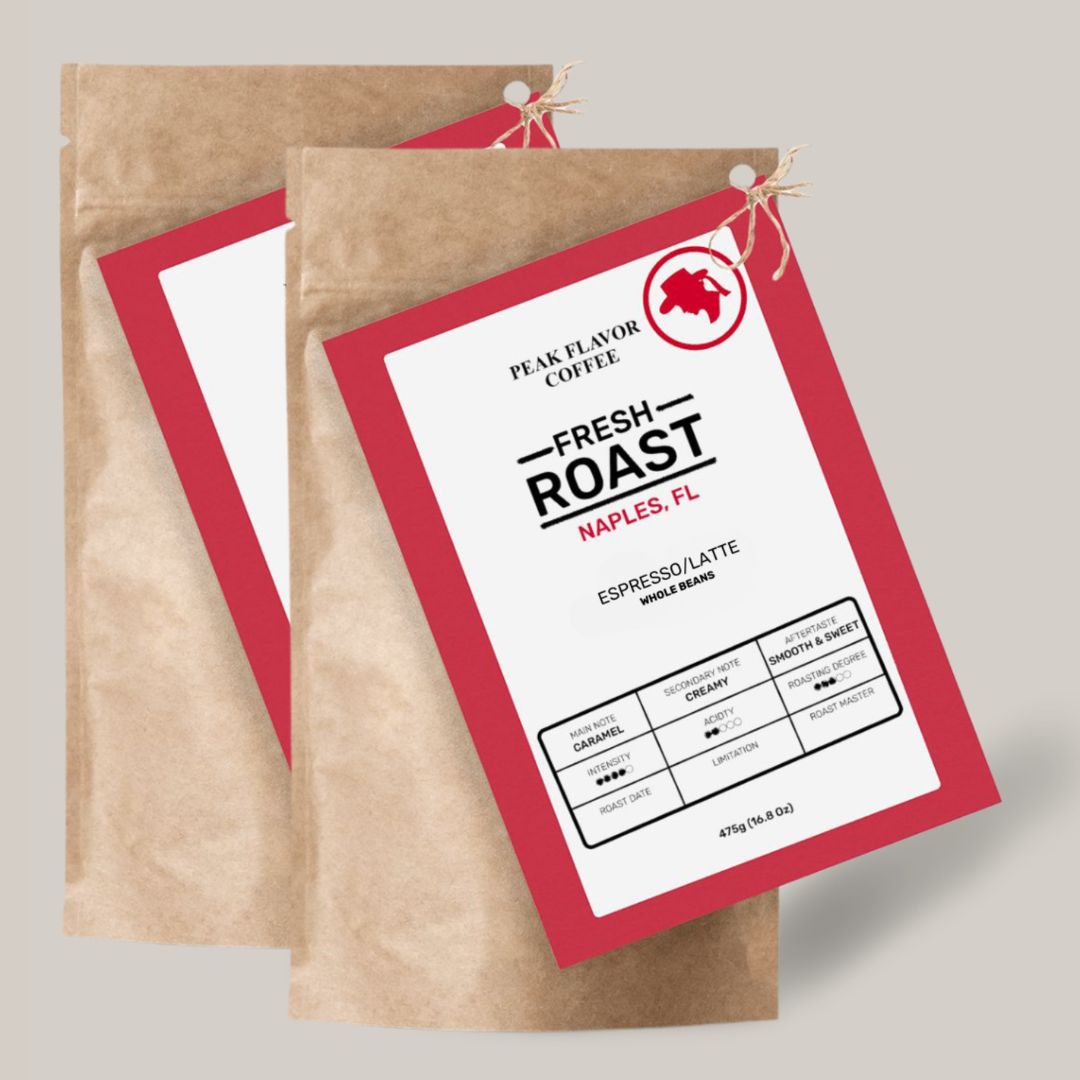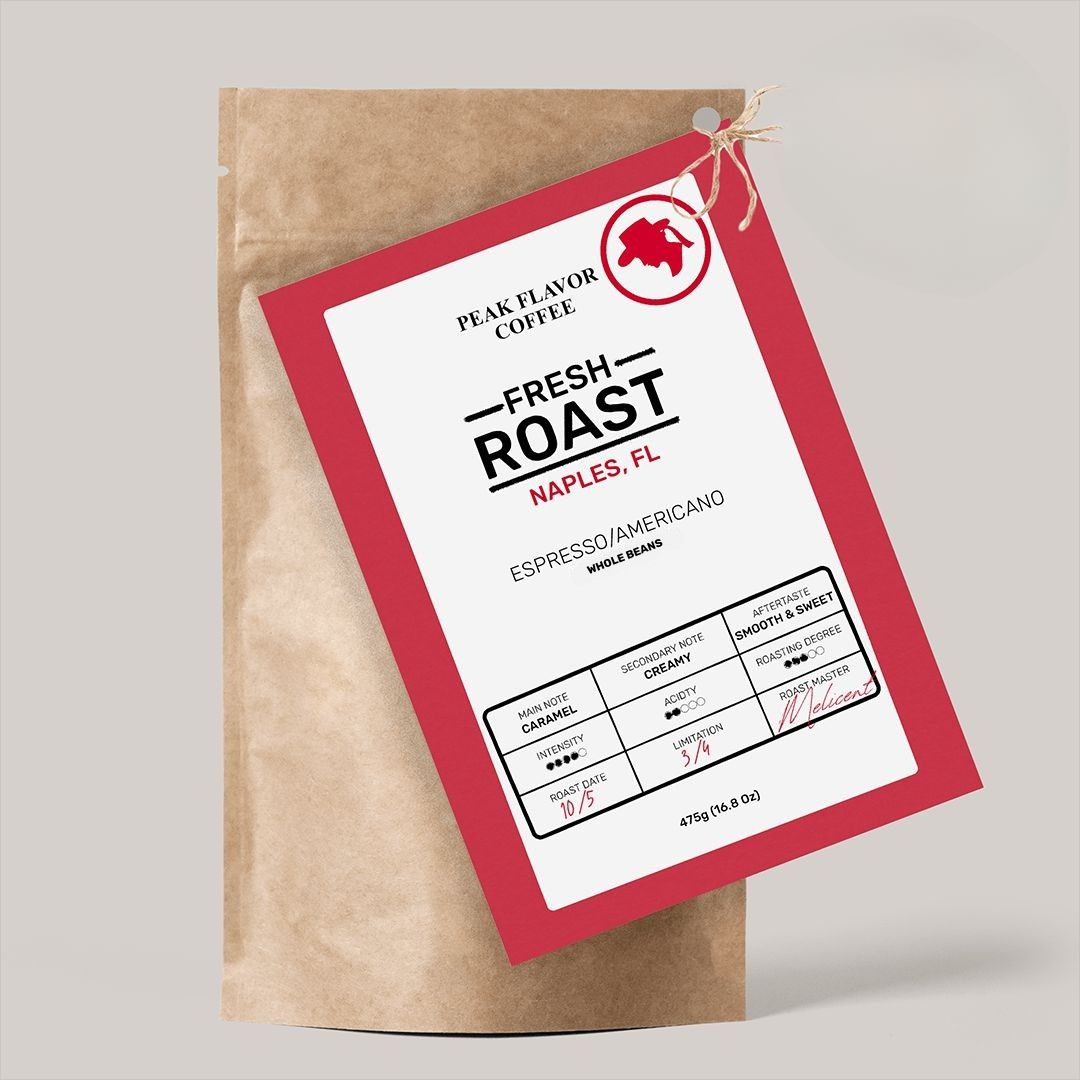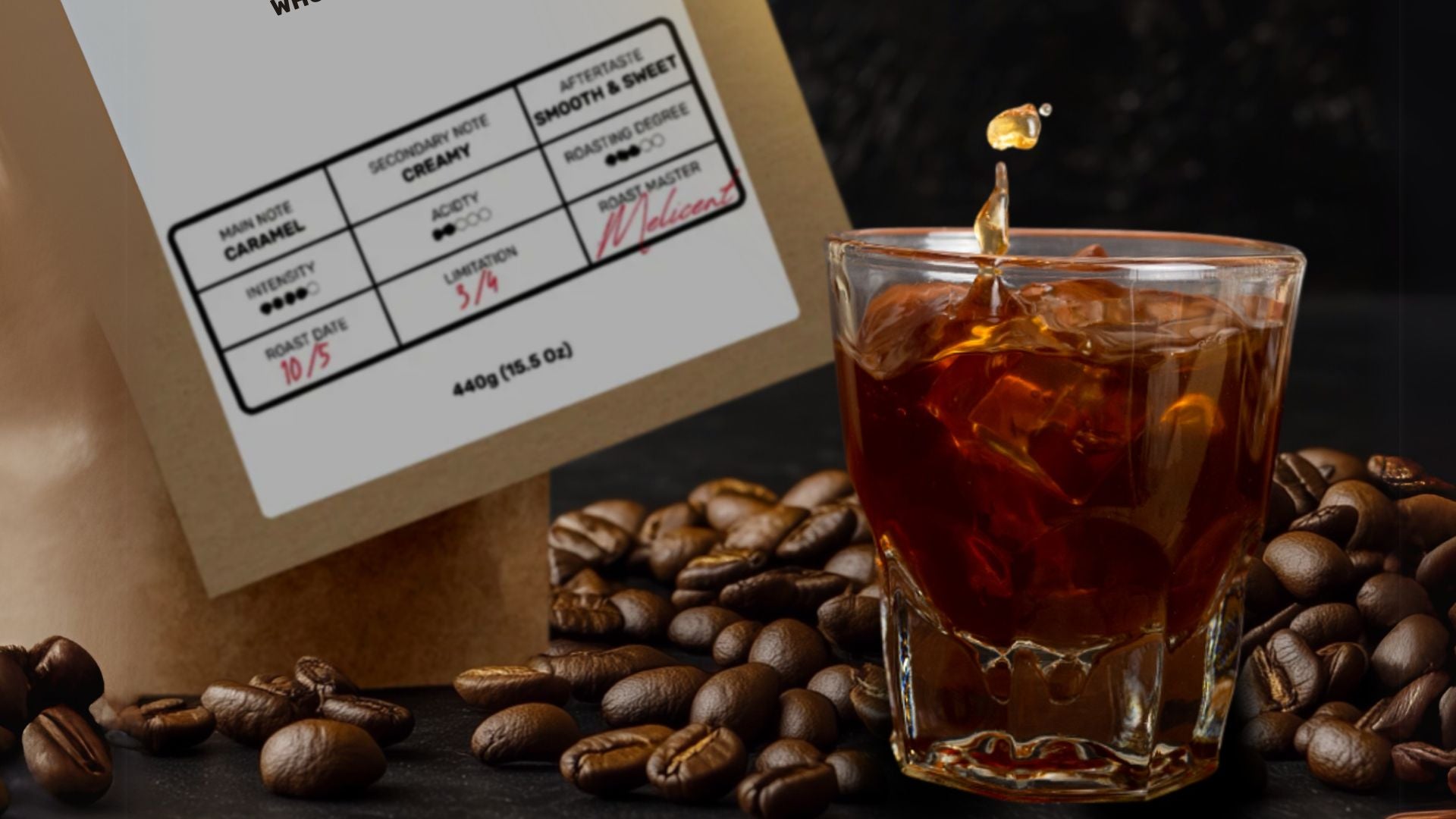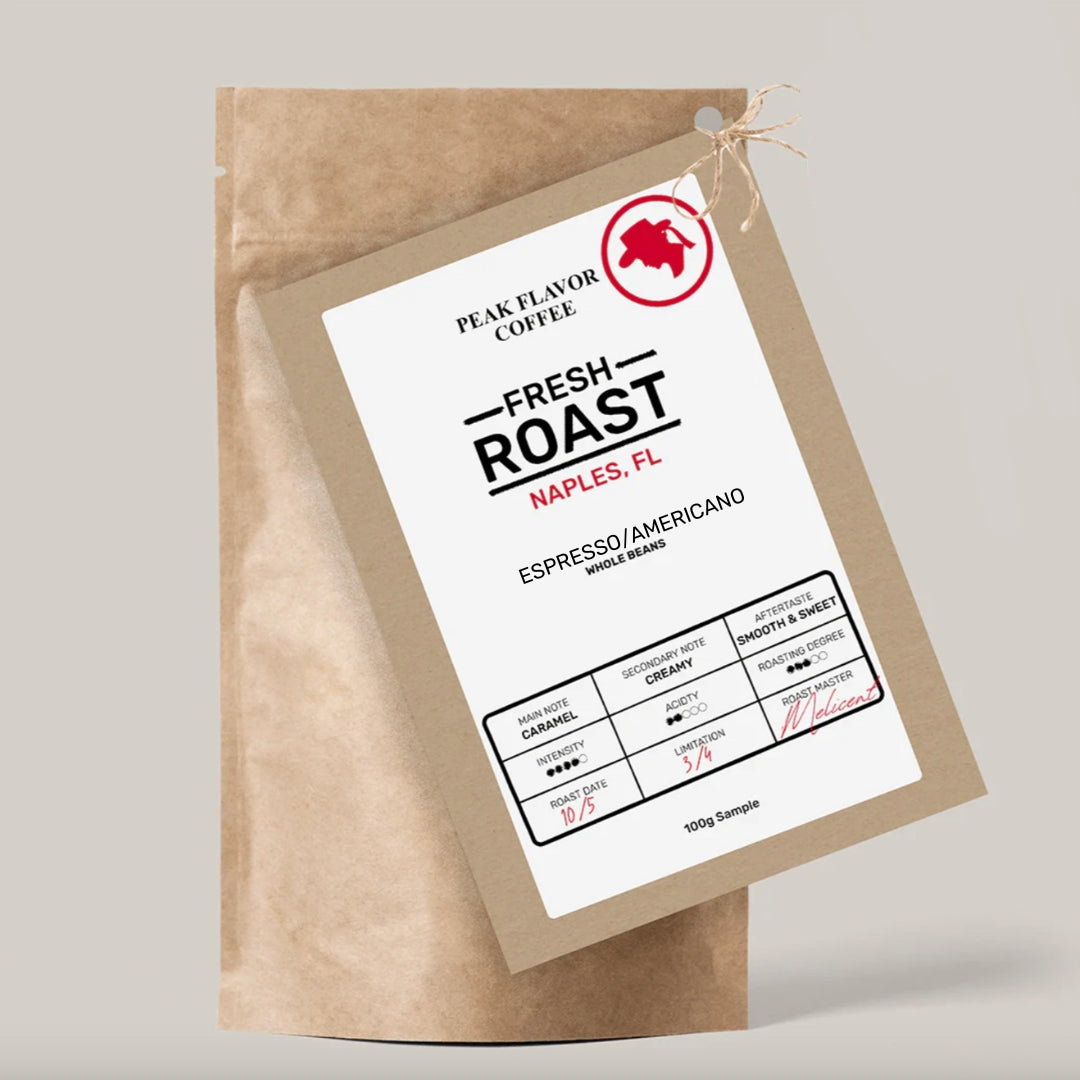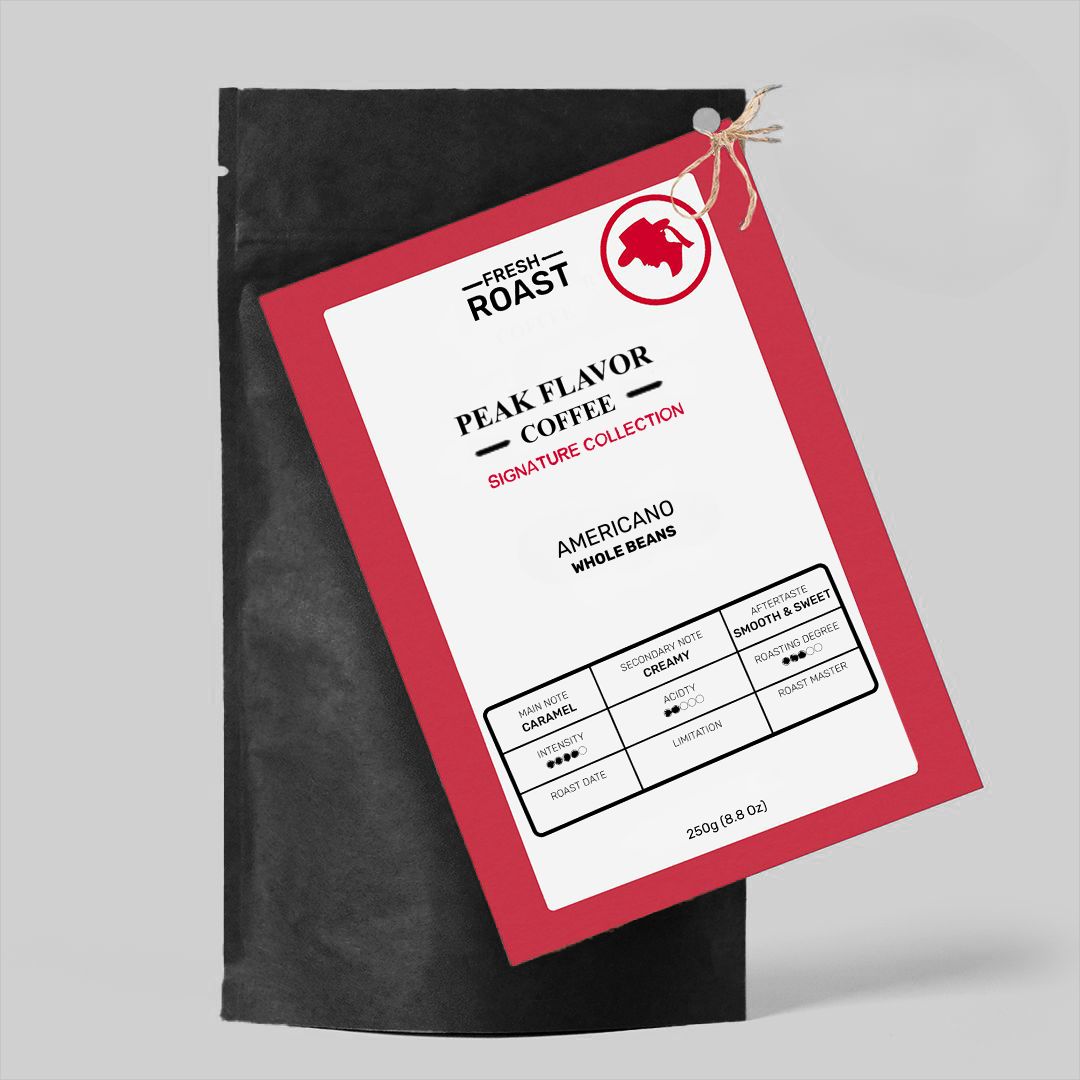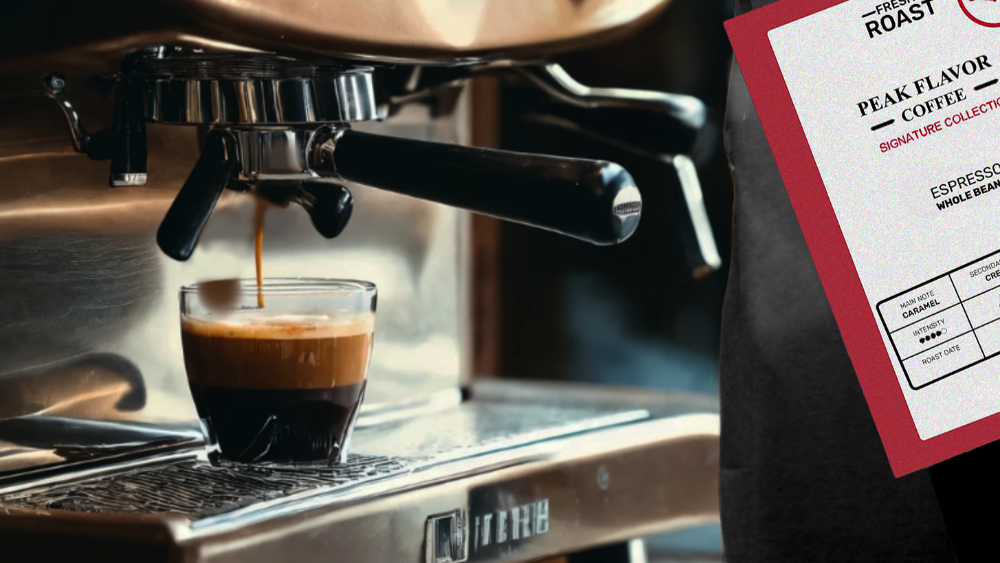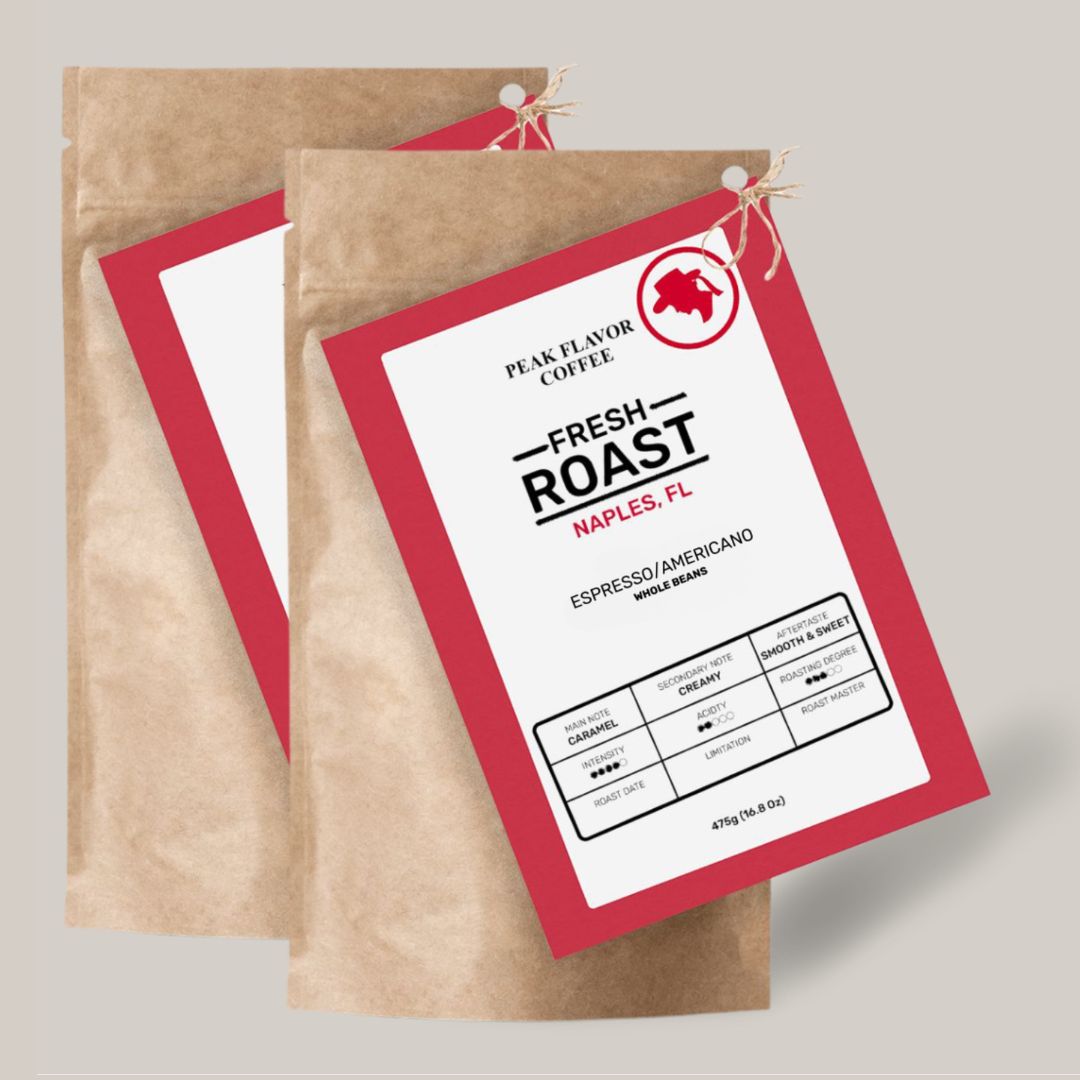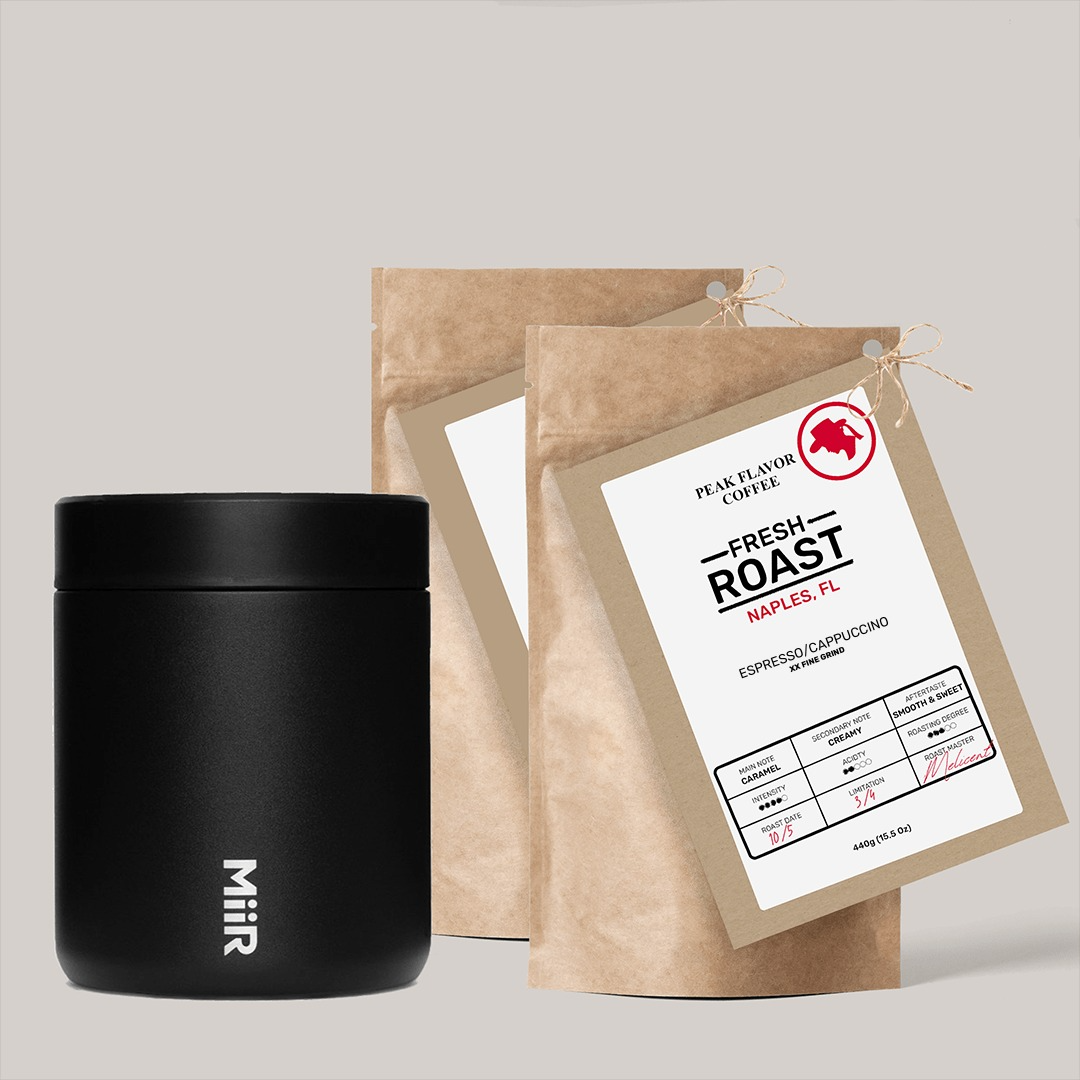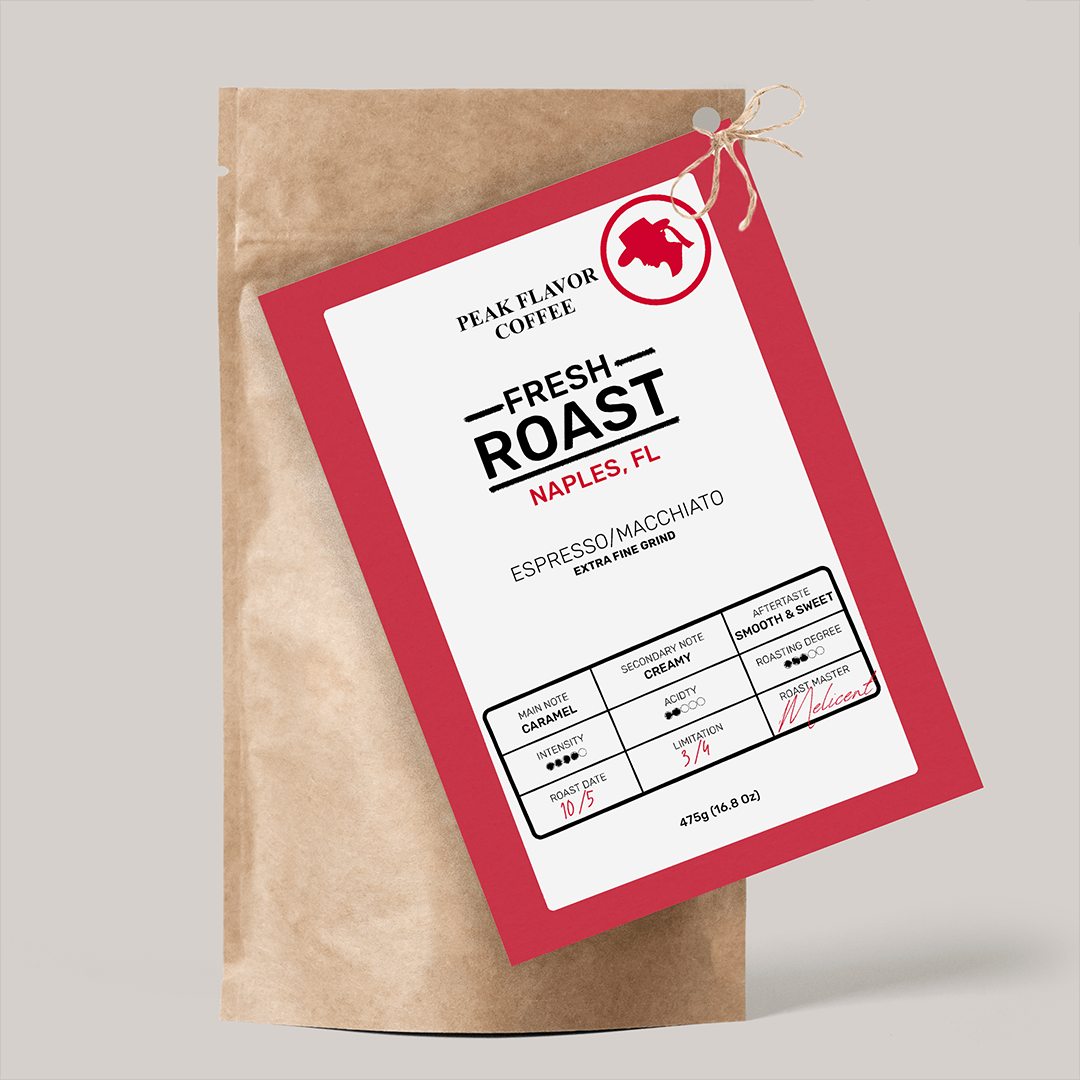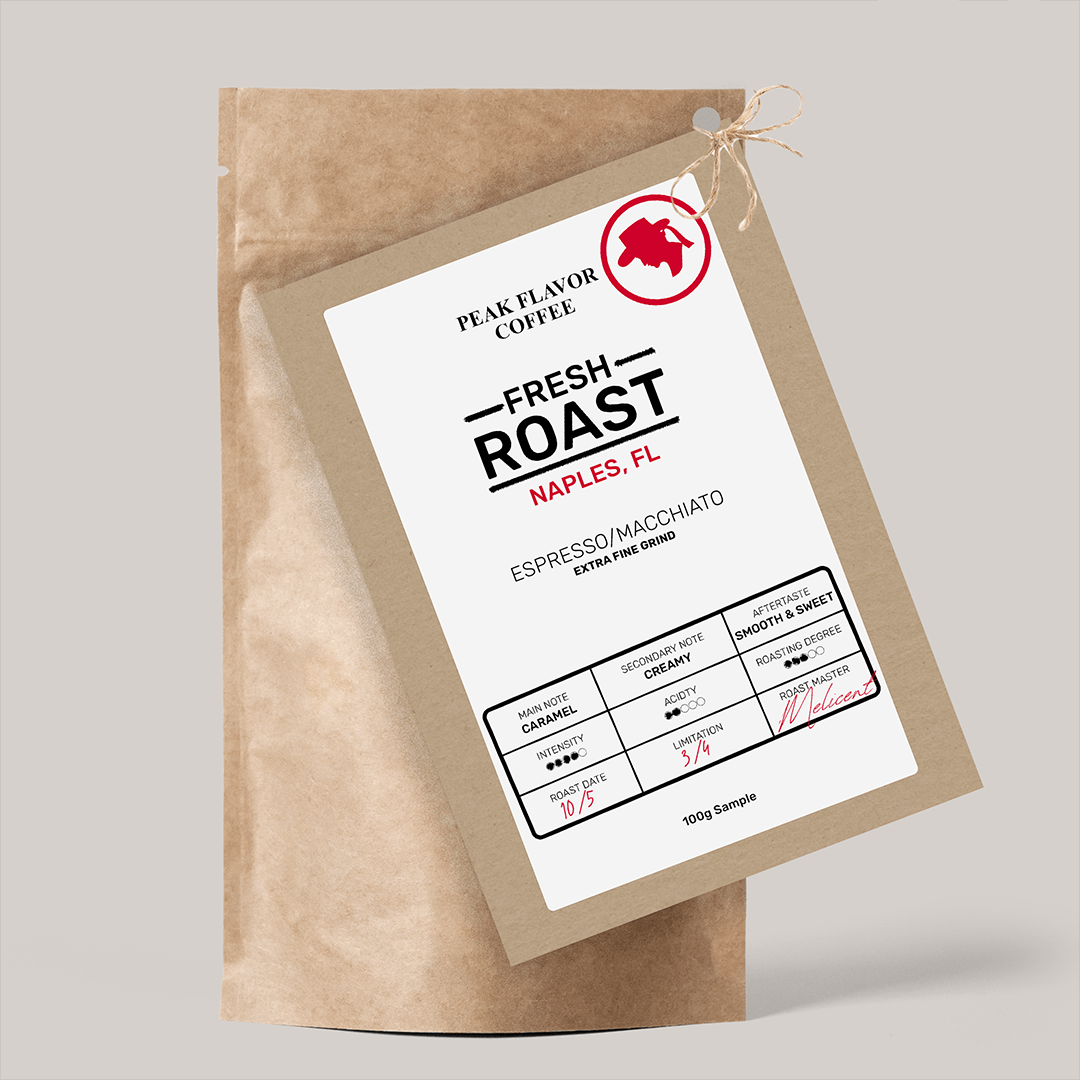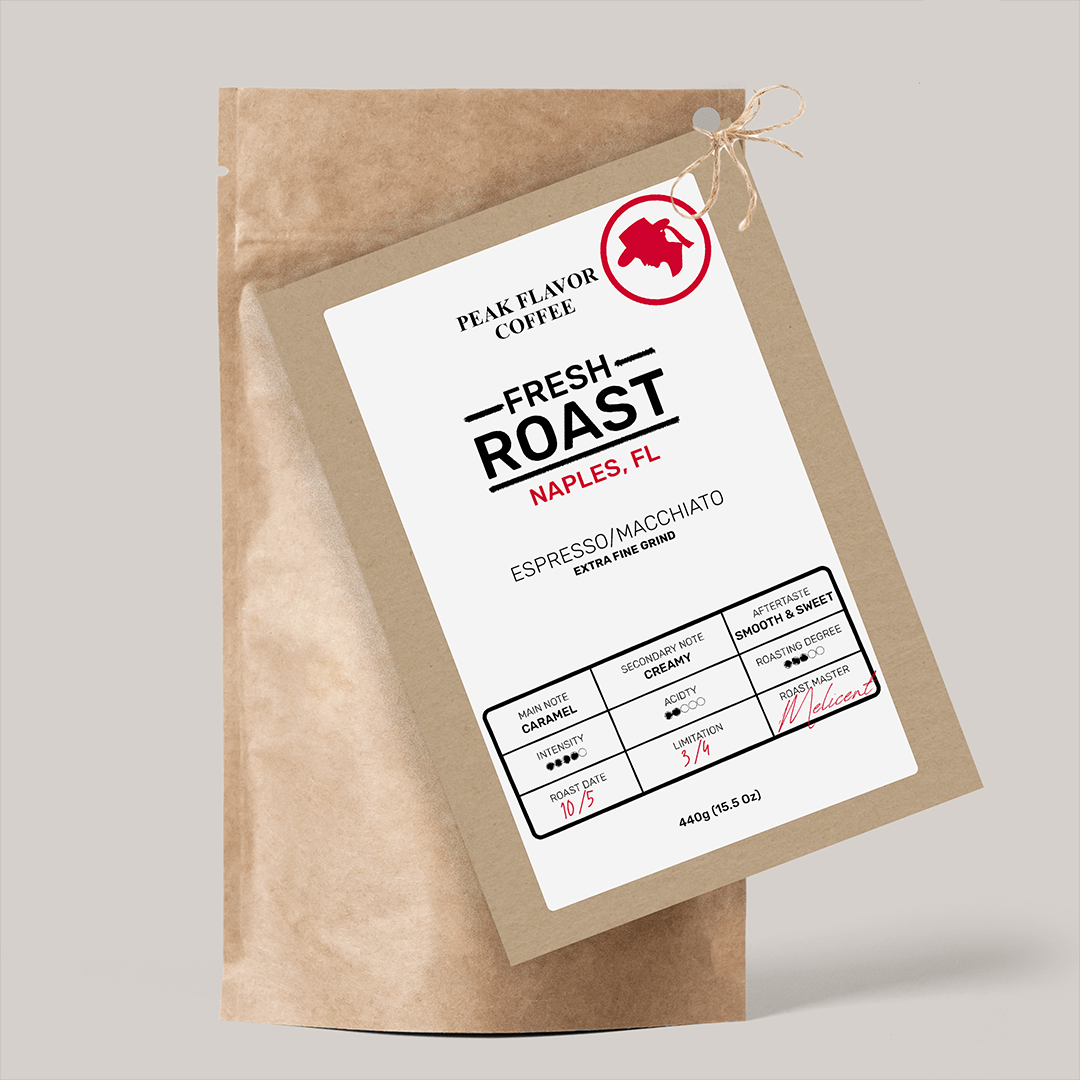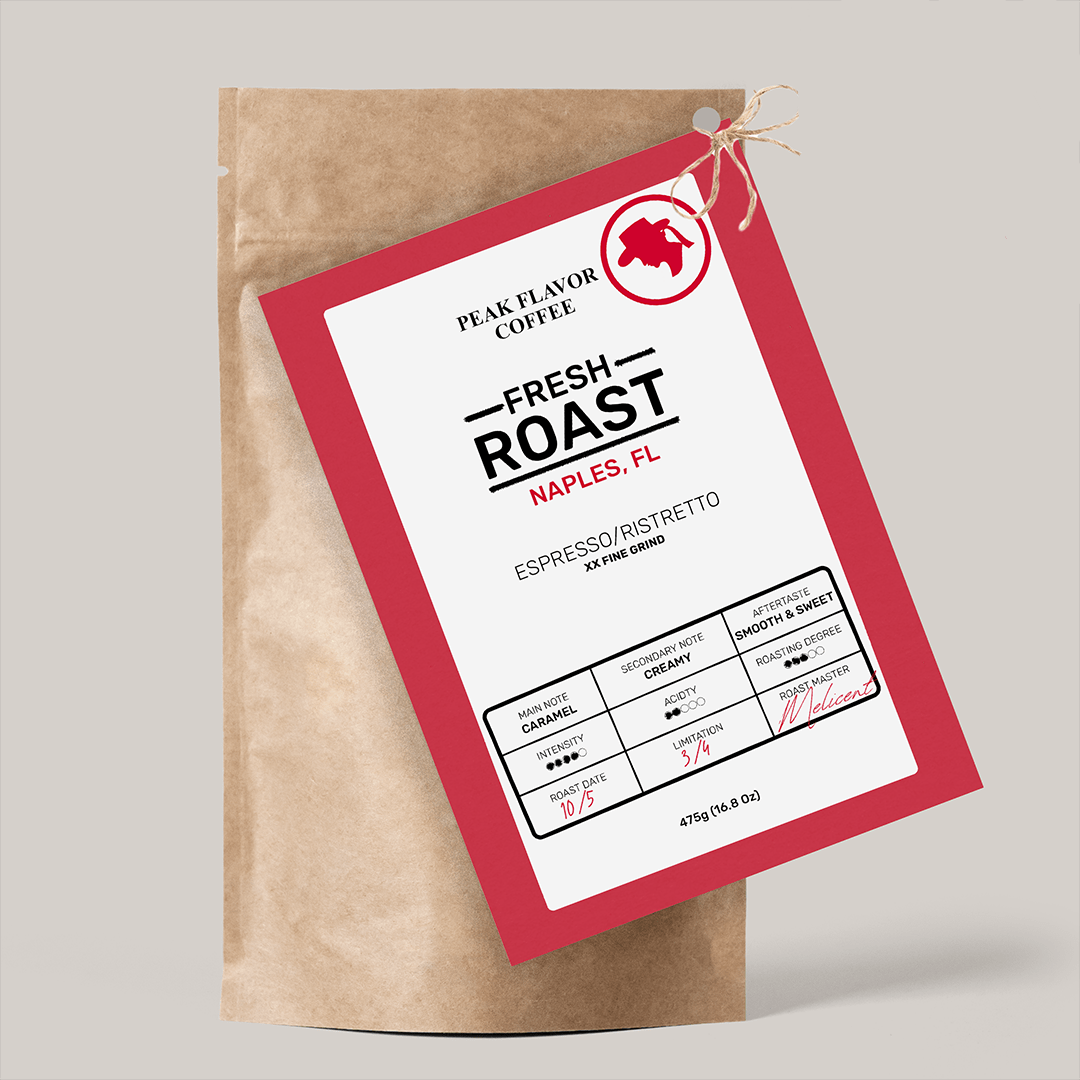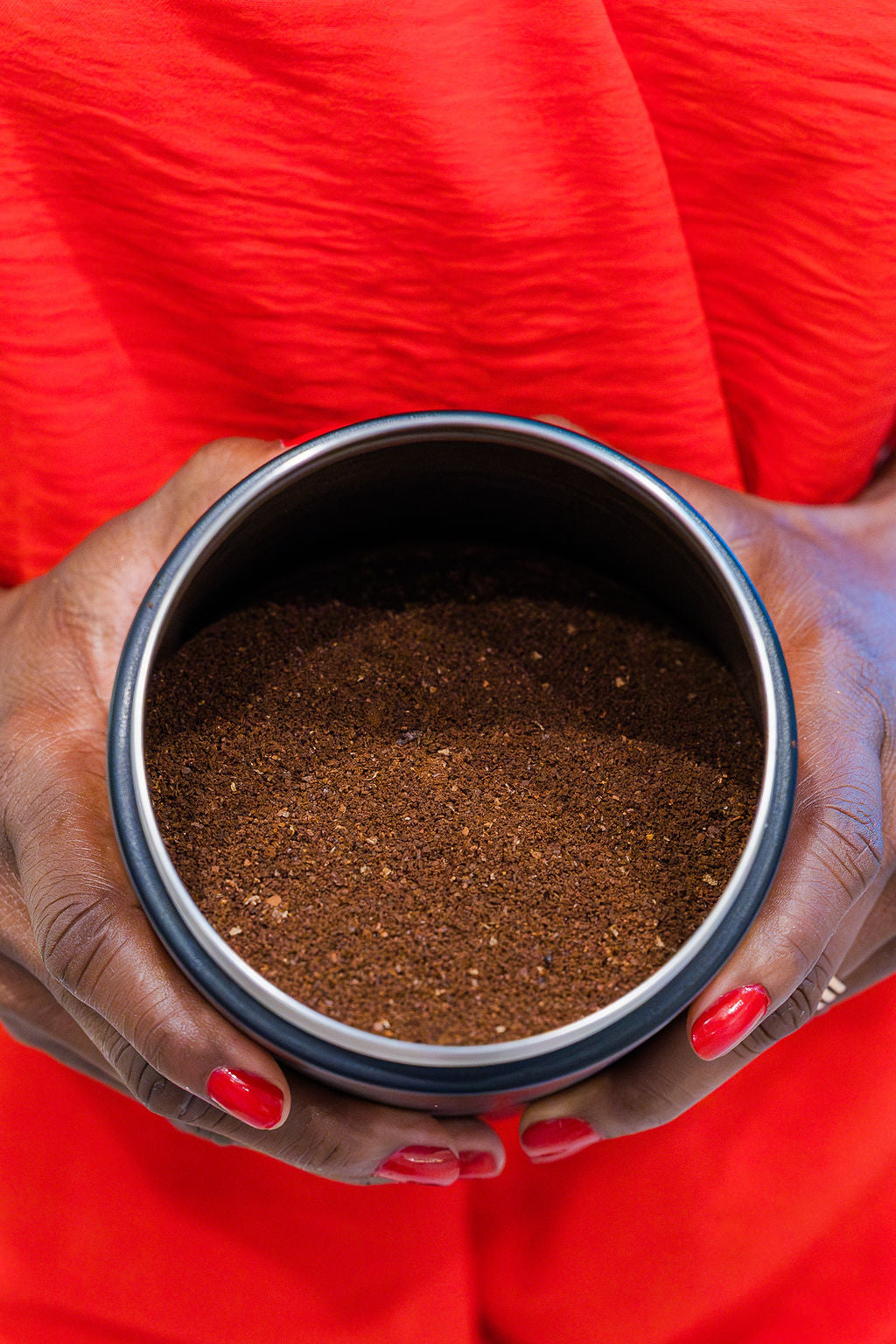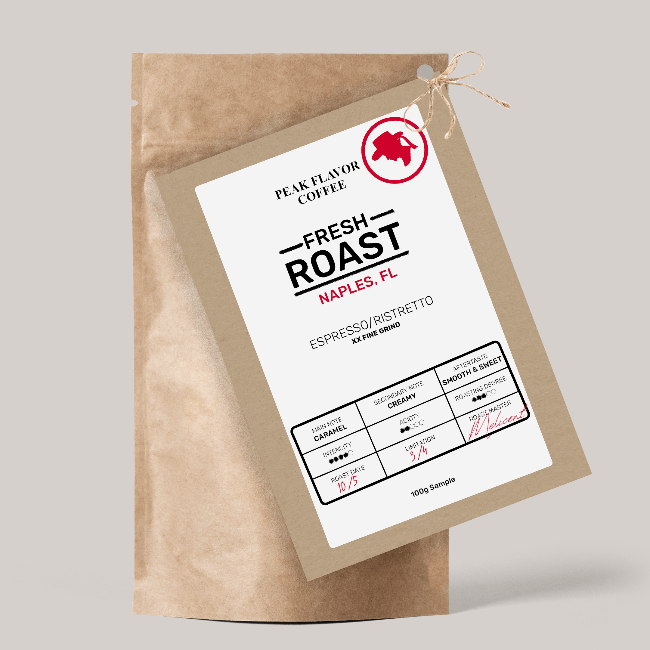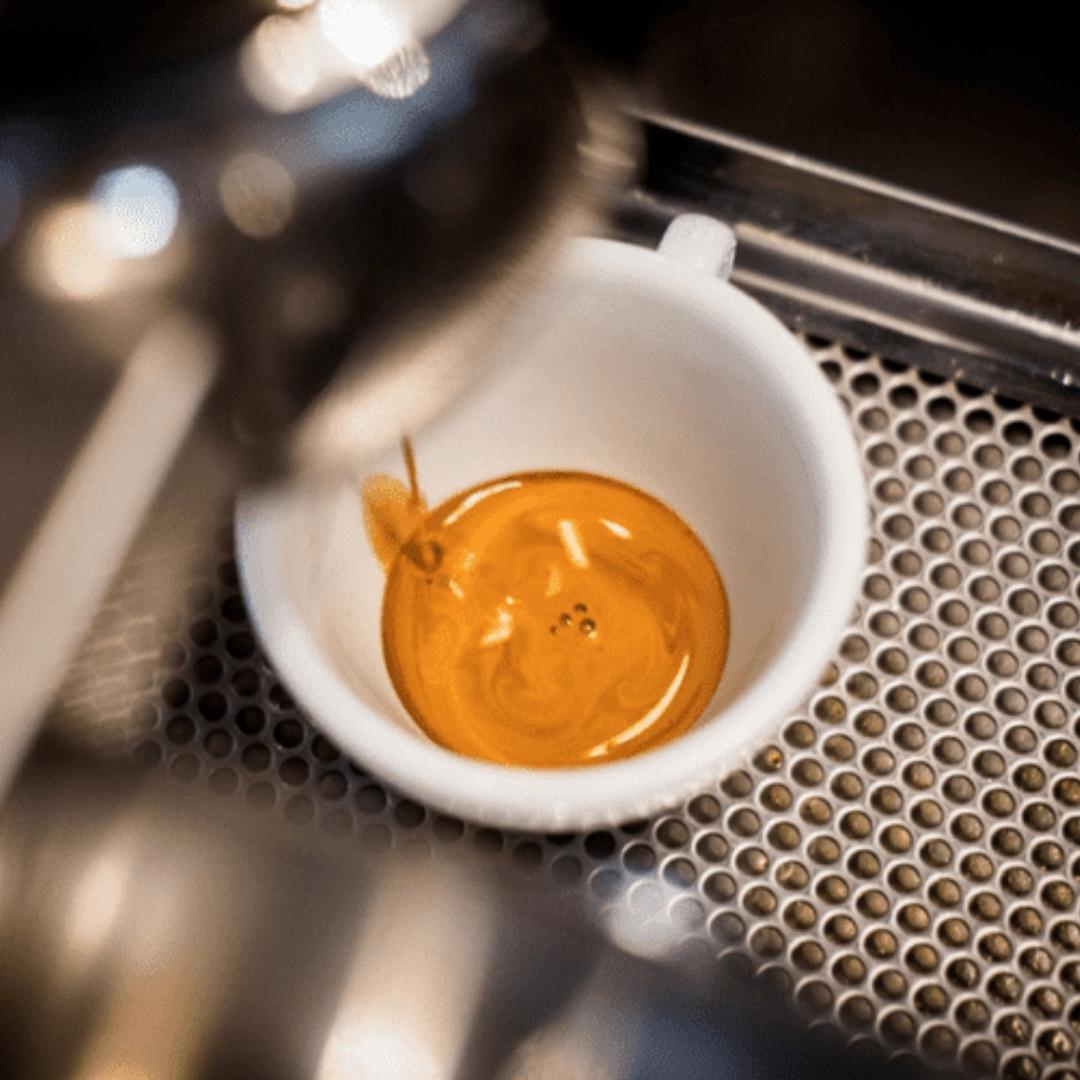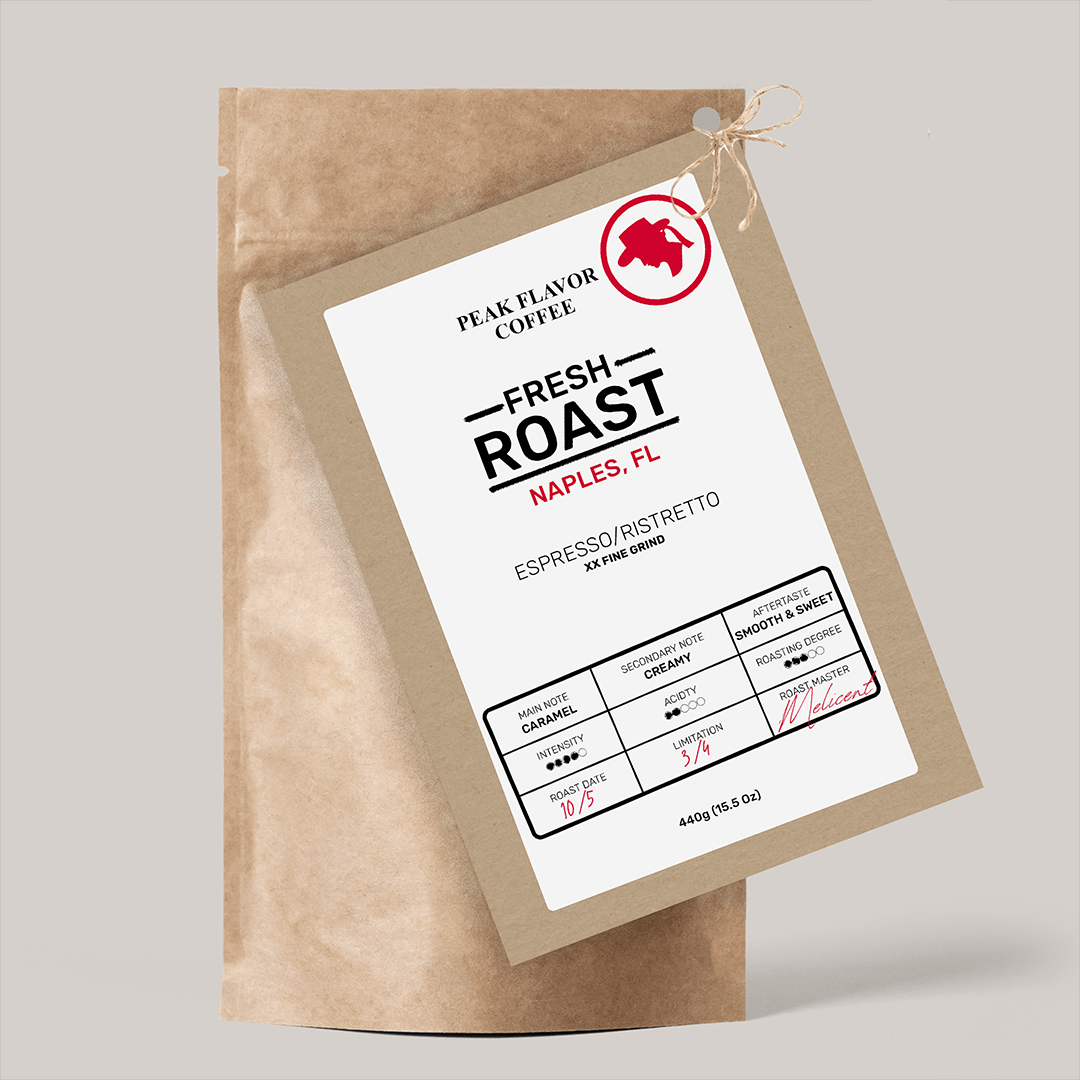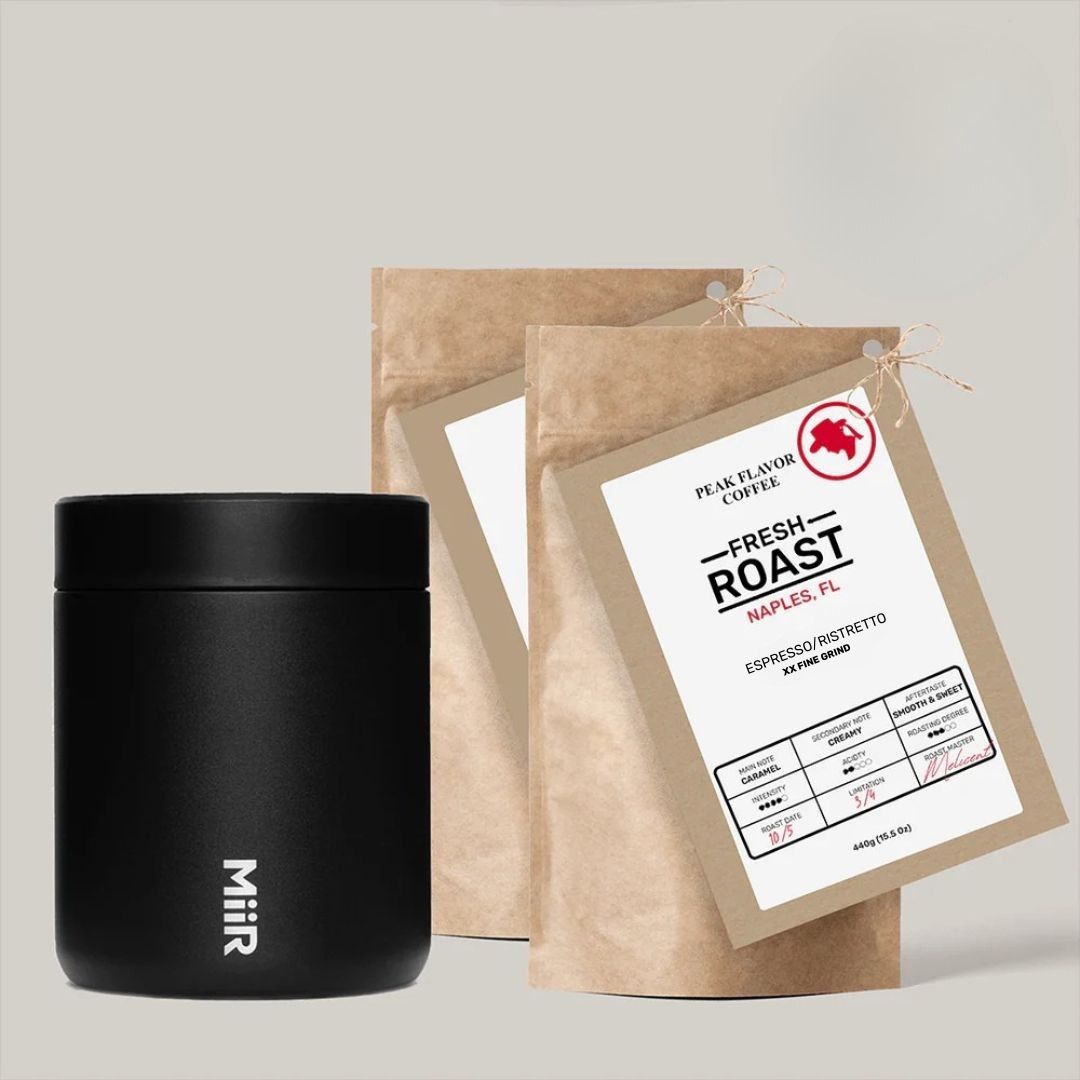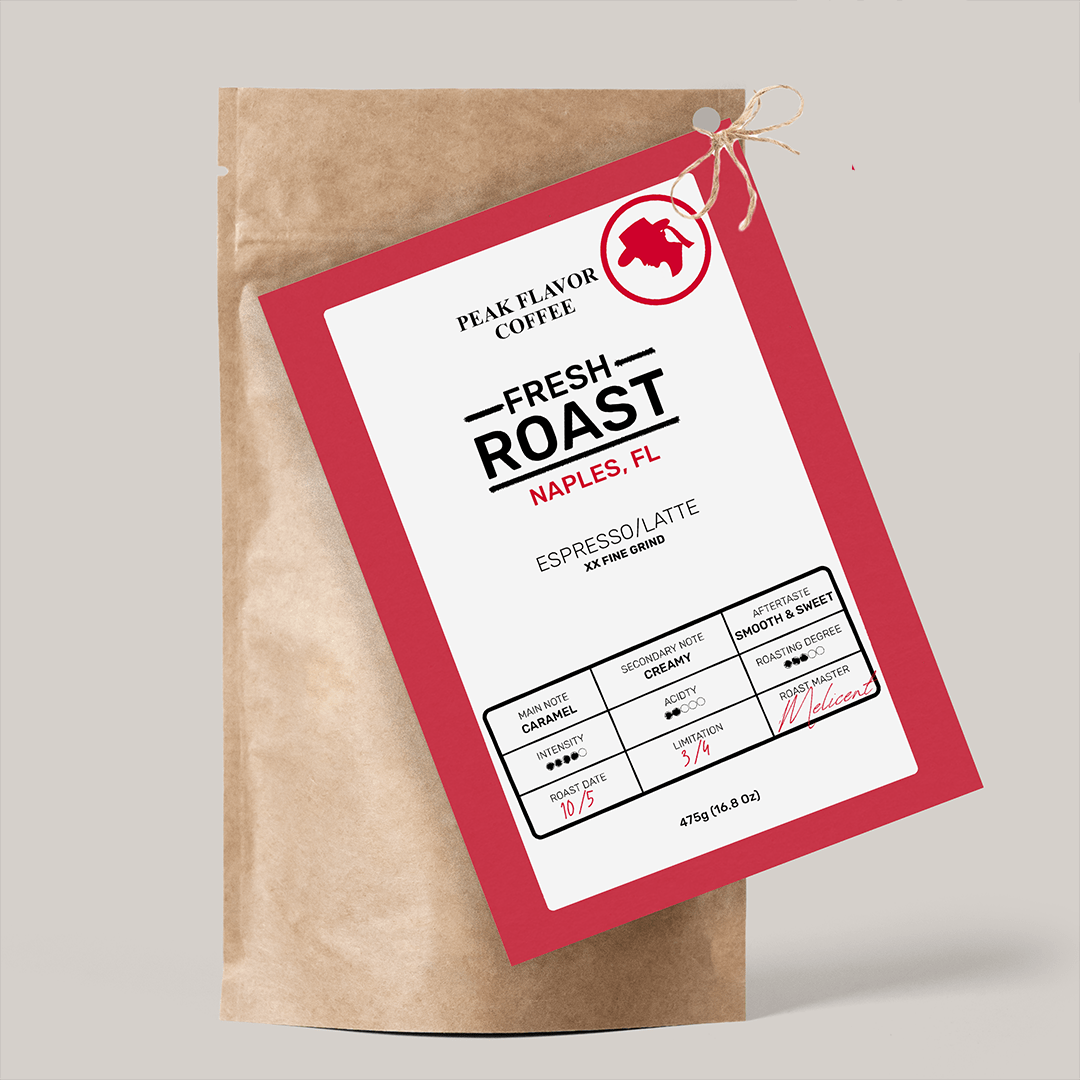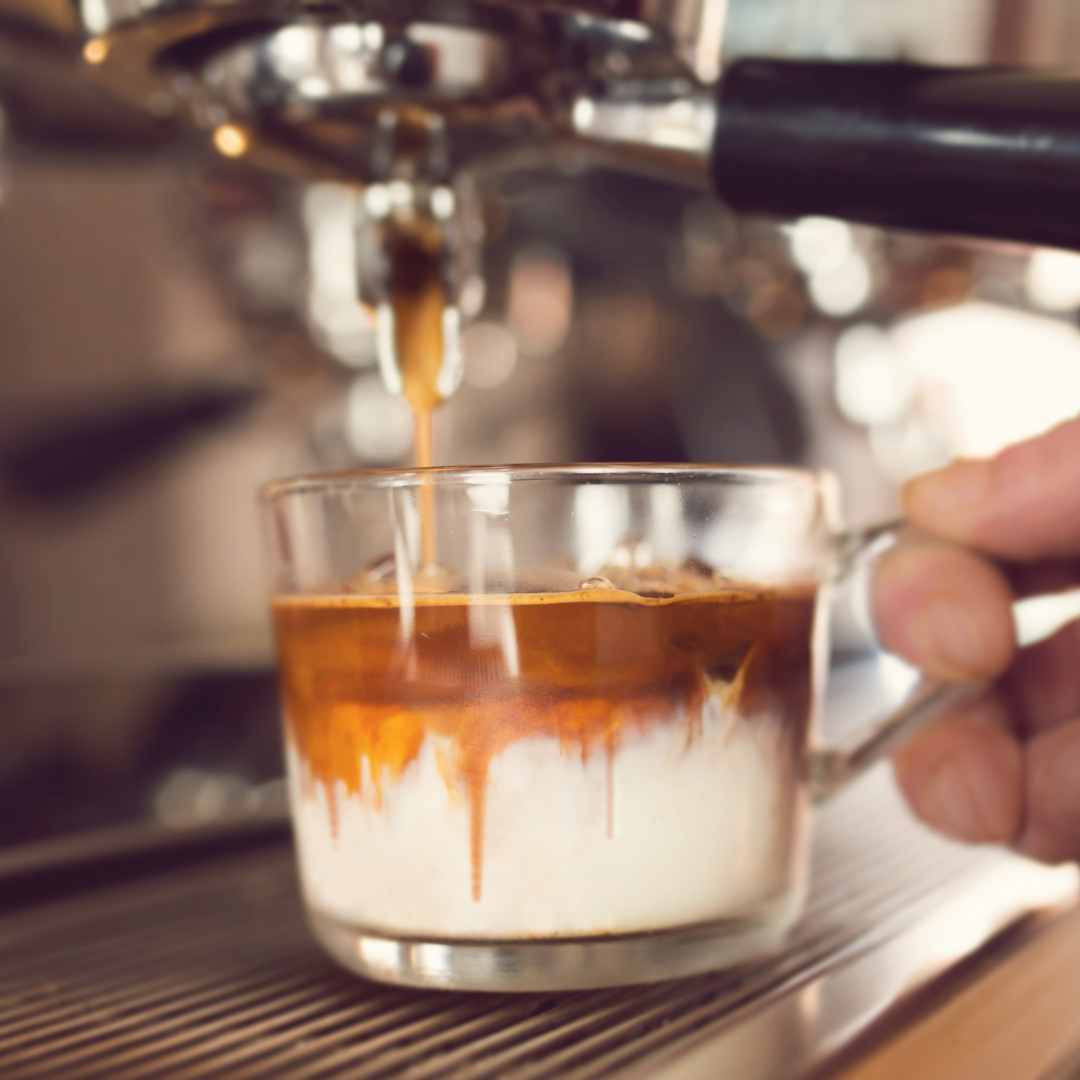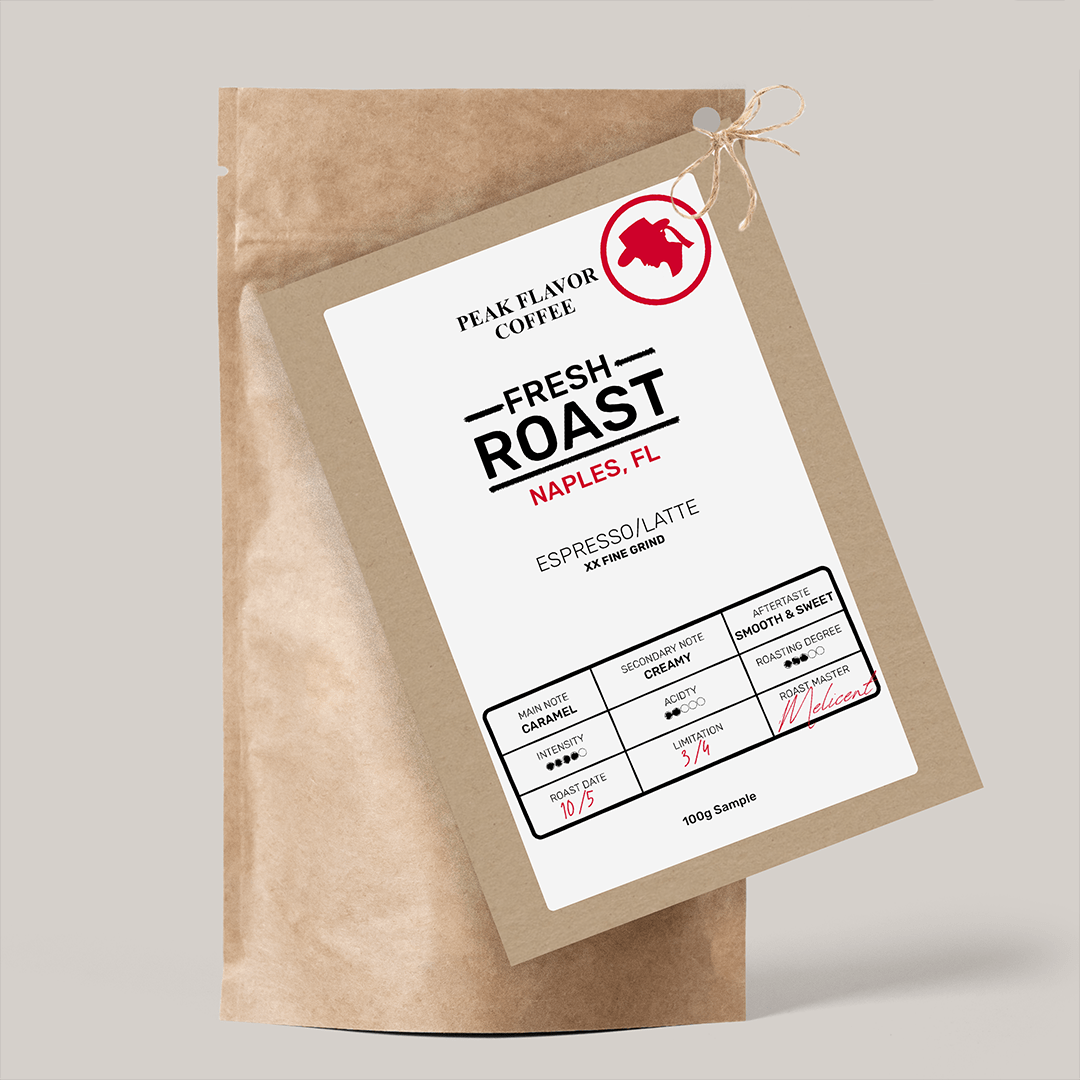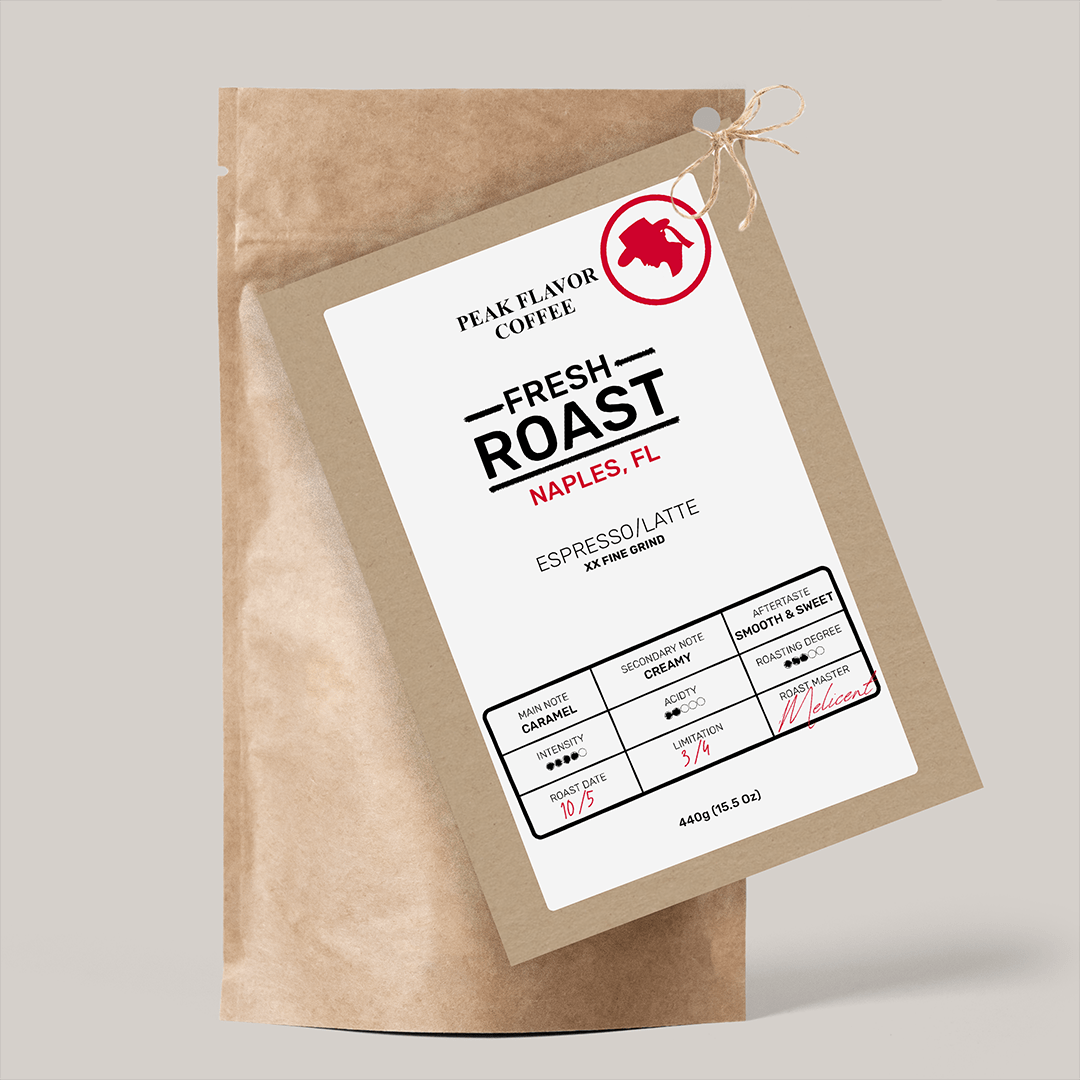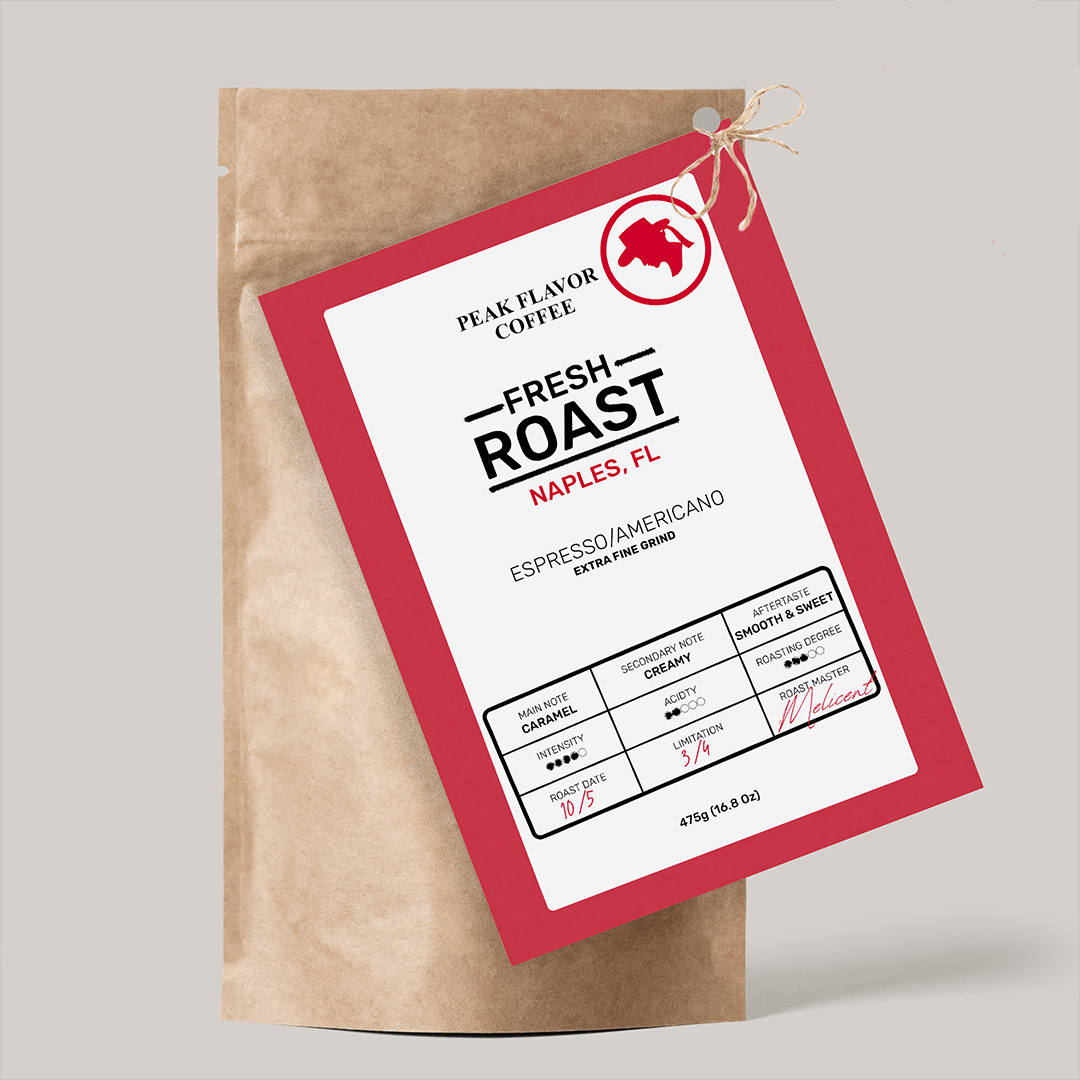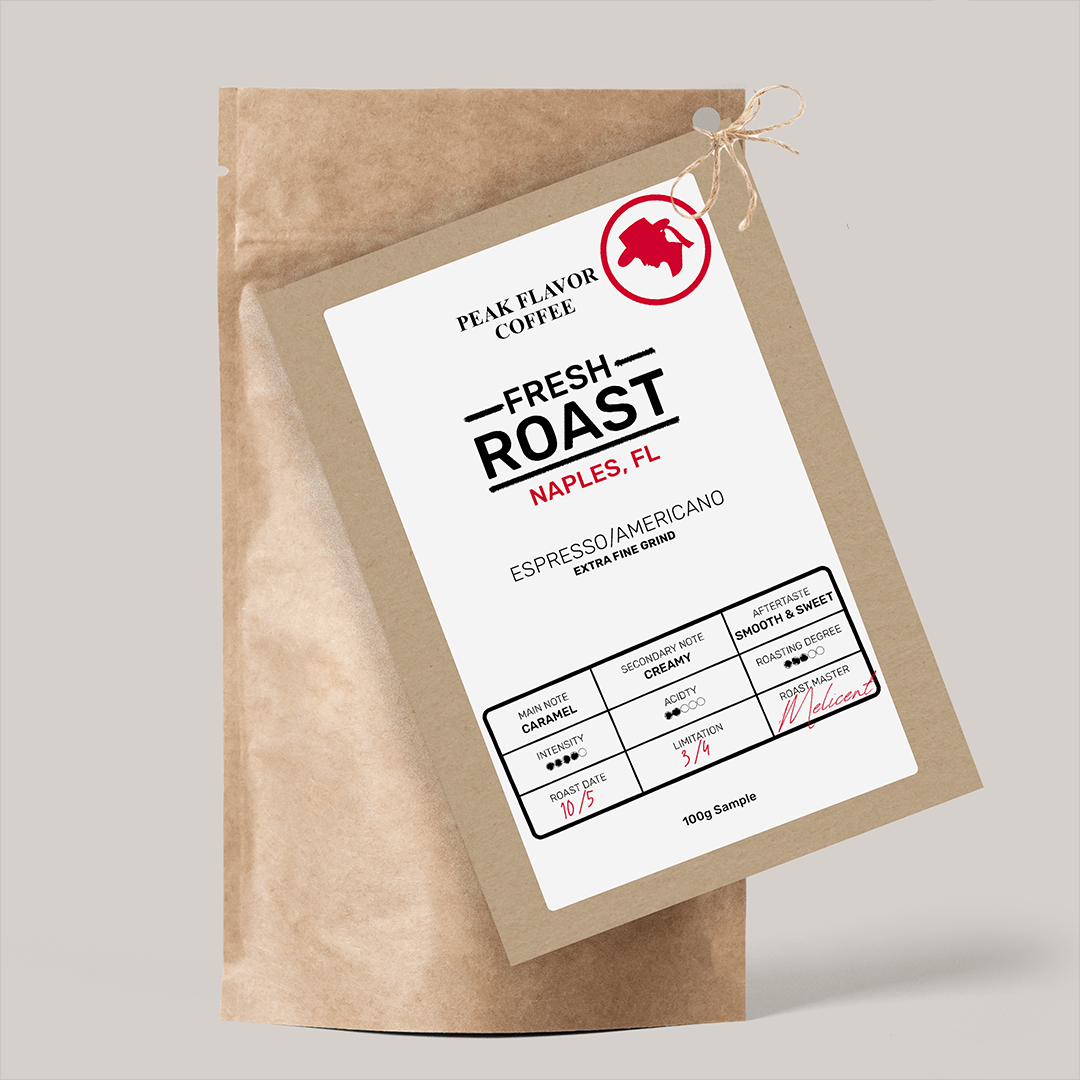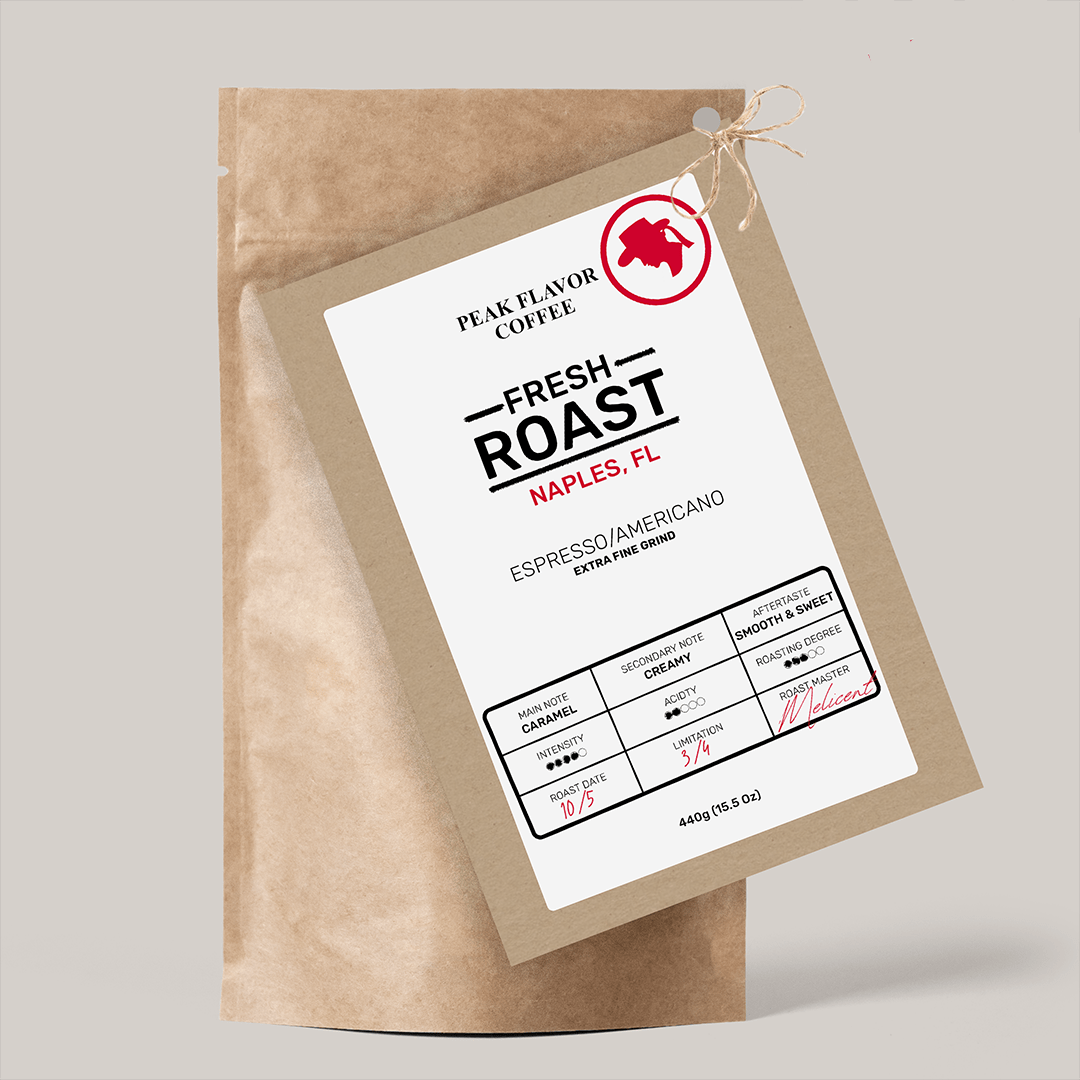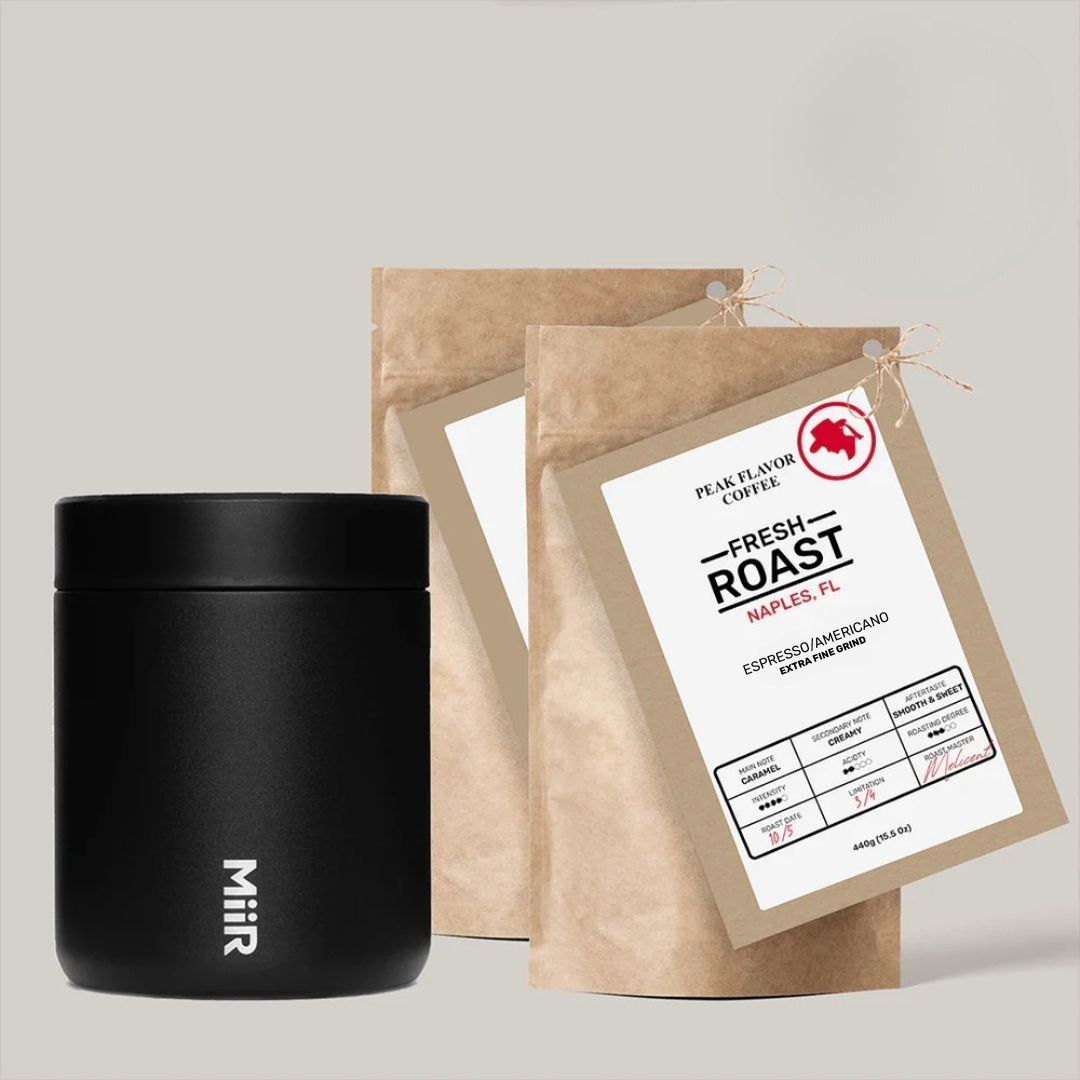Crafted for Italian Espresso Drinks
How to Make Italian Espresso?
We craft authentic Italian espresso as a base for your favorite coffee drink, be it cappuccino, macchiato, ristretto, cafe latte or Americano coffee. Here is how we do it:
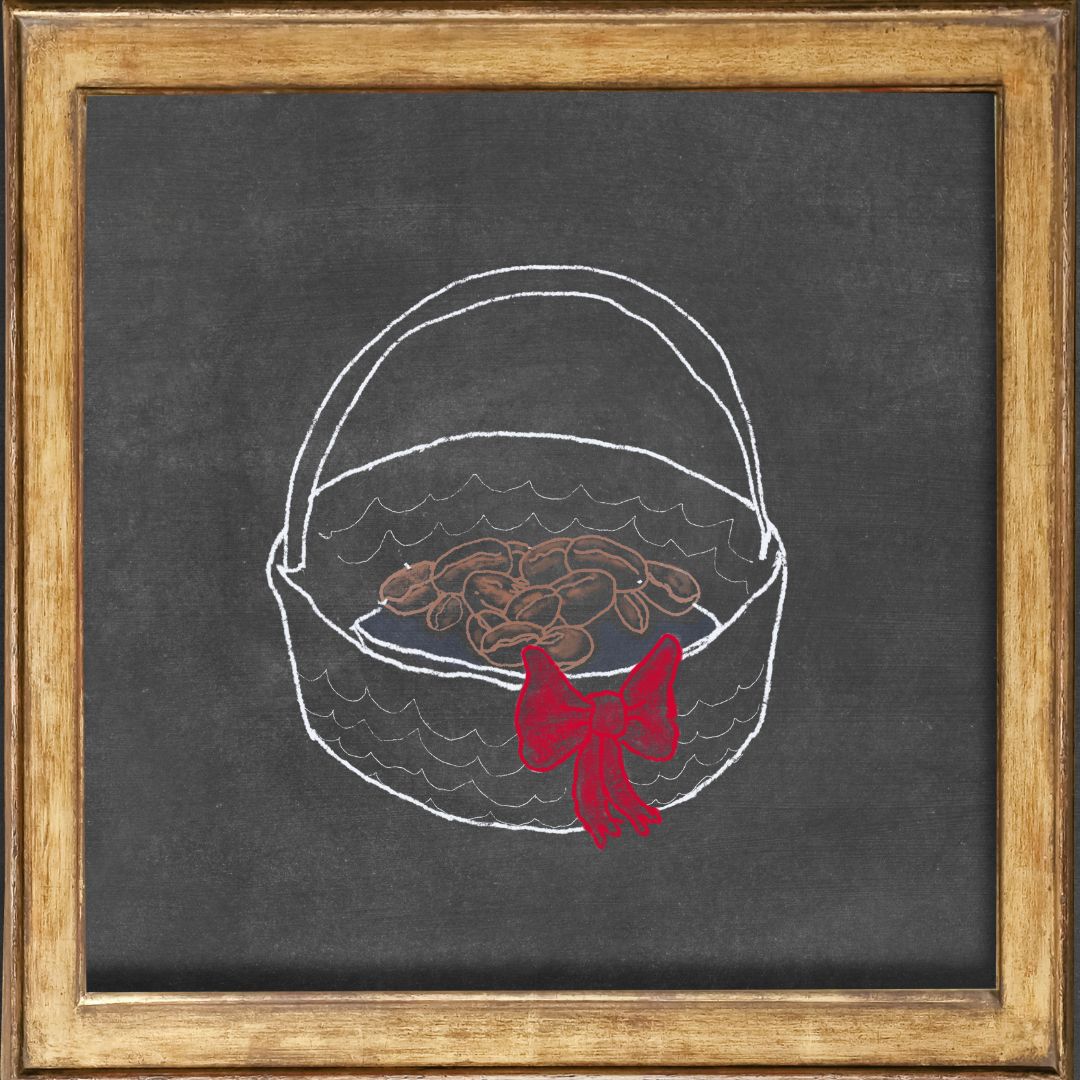
Made with Naturally Sweet Beans
To avoid bitterness, we select naturally sweet coffee beans, rich in fruit sugars like fructose. Harvested at peak ripeness to avoid acidity, these beans deliver strong but sweet espresso.
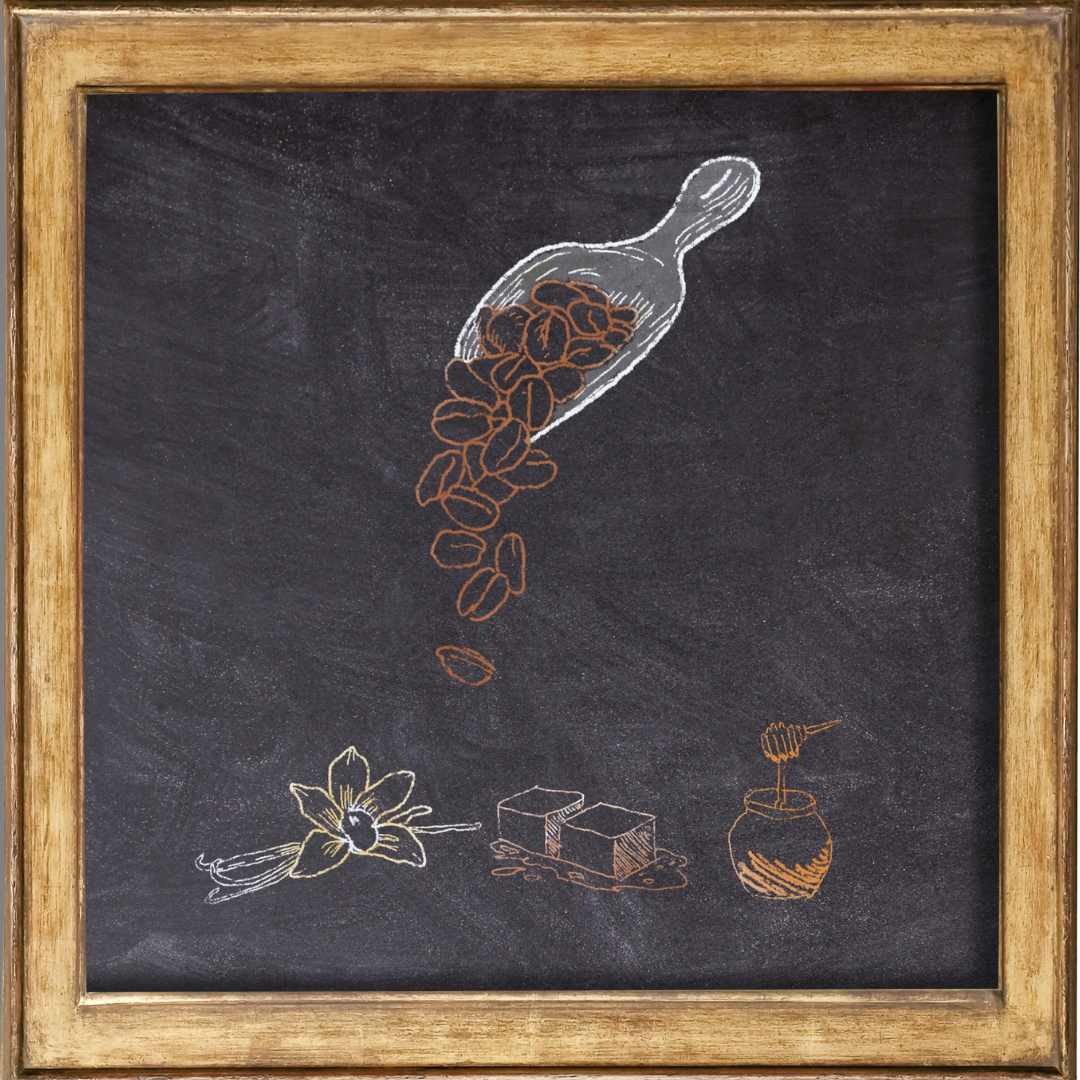
Slow Roasted for Caramel Crema
Inspired by Italian coffee culture, we slow roast in small batches to create abundant caramel, vanilla, and honey taste, so your espresso machine extracts bold flavor with rich caramel crema.
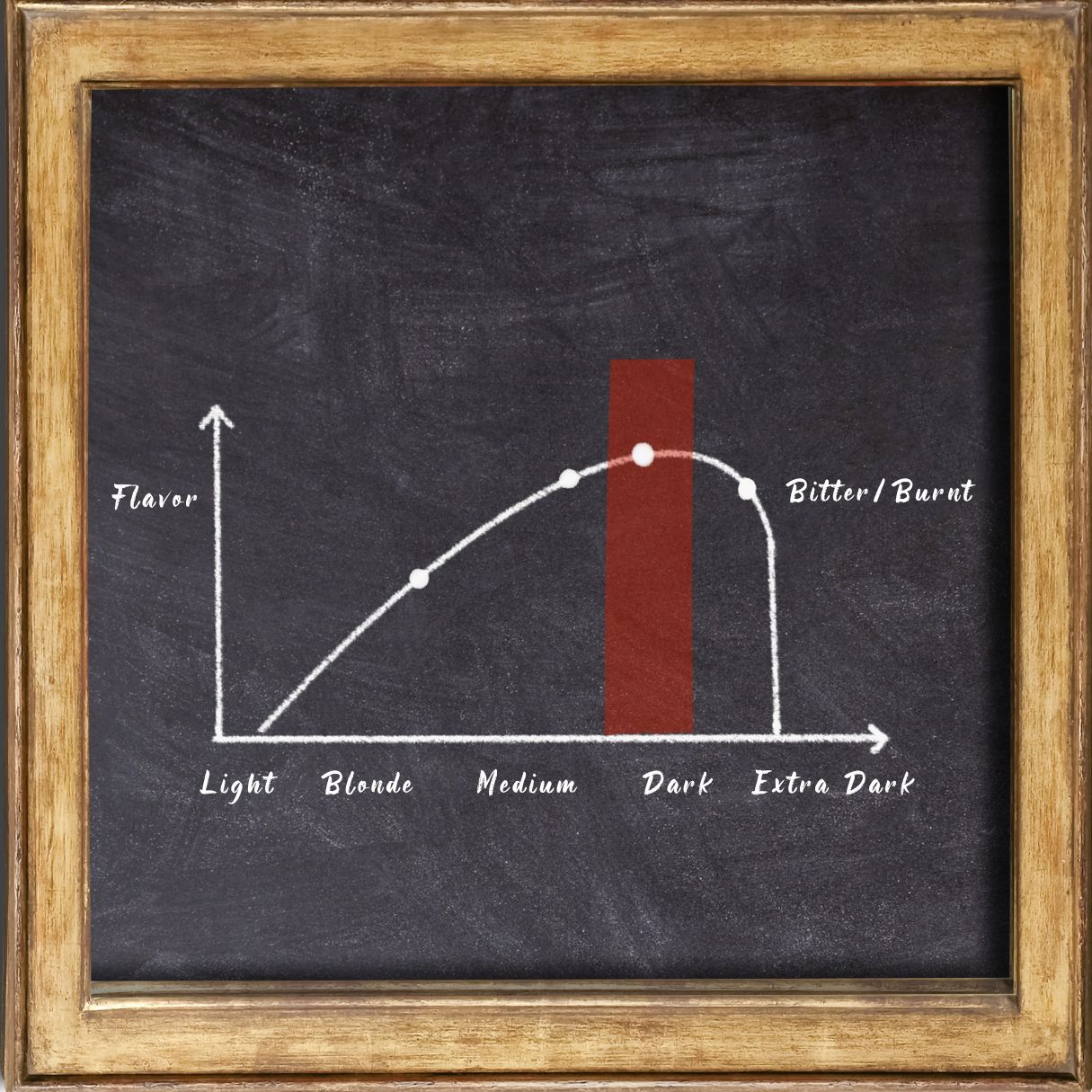
An Italian Coffee Roast for Best Espresso
Slow Roasted for Rich Caramel Crema
Maximizing taste with sumptuous crema requires a slow roast to develop natural sugars into caramel, vanilla, and honey notes. For Espresso, Peak Flavor is somewhere between a medium dark and a dark roast. Our signature espresso is probably our best roast.
Refined bean blends for espresso drinks with depth, crema, and signature Italian elegance
A Perfect Espresso Roast for Every Espresso Drink
Dark-roasted, crema-rich beans built to shine through milk and foam.
Espresso Beans for Italian Cappuccino
Crafted with a 60:40 Arabica-Robusta blend and dark roast depth, these beans deliver rich crema, caramelized flavor, and a full-bodied espresso for cappuccino that holds its own in every creamy, foamy cup.
Striking the Balance: Beans Built for Macchiato
Coffee Beans for Espresso Macchiato
A 70:30 Arabica-Robusta blend with medium-dark roast delivers bold flavor, rich crema, and just enough elegance to rise above the foam. True espresso macchiato - never bitter, always refined.
Velvet & Bold: Beans for the Perfect Latte
Italian-Style Cafe Latte
Balanced 50:50 blends with dark roast depth—built to hold their flavor through milk with bold caramel notes, smooth body, and lasting crema. Discover creamy latte beans.
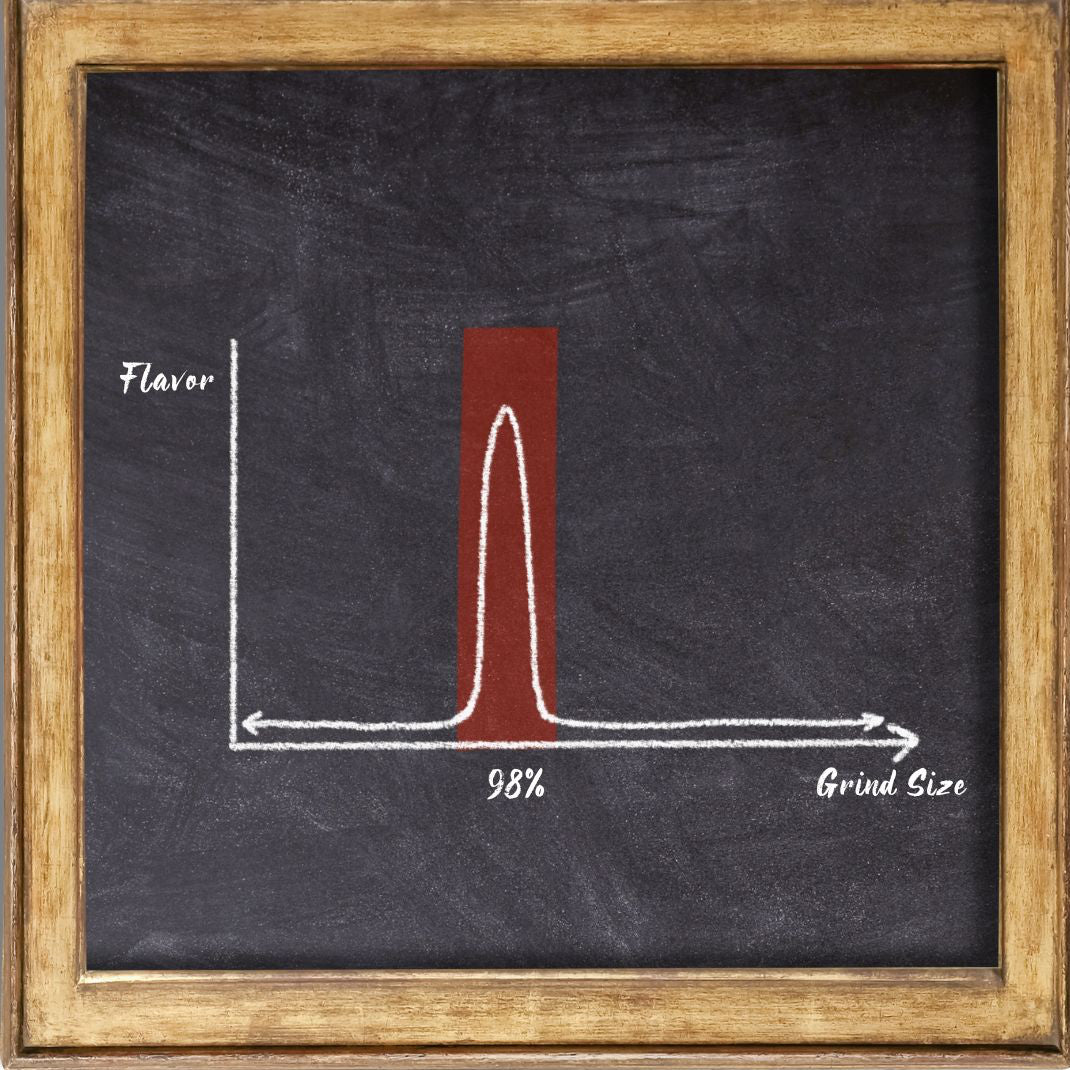
The Benefits of Pre-Ground Espresso
More Grind Consistency - More Flavor
An espresso machine extracts maximum flavor when the espresso grind size is 300 microns - with near perfect consistency (98% consistency to be exact).
It's hard to grind with this type of accuracy on any home coffee grinder.
That's we we offer pre-ground espresso, made with a professional burr grinder, so you get the right grinds and your espresso maker can extract genuine Italian espresso flavor with ease.
Smooth & Creamy Caramel Latte
Caramel Cafe Latte Grounds
A slightly coarser grind than ristretto softens intensity and draws out mellow caramel tones. This helps the espresso blend with milk instead of dominating or disappearing. Explore espresso grounds made for creamy latte.
Crafted with Precision - Inspired by Italian Coffee Tradition - Elevated for the Modern Espresso Lover
The Essence of Elegance: True Italian Espresso, Perfected
Indulge in bold, full-bodied flavor, sumptuous crema, and smooth caramel sweetness
Hi. I'm Melicent, founder of Peak Flavor Coffee—and a former blissfully ignorant espresso drinker.
Back in the day, I’d grab whatever espresso was on sale at the supermarket. Roast profile?
Grind size? Didn't occur to me. If it said “espresso” on the bag, I figured I was all set.
Then, during a trip to Italy, I ducked into a small café in Milan to hide from the rain—and met Roberto, a second-generation coffee roaster. Over a single-origin macchiato, he changed my world.
He explained that true Italian espresso isn’t just strong coffee. It’s a carefully calibrated balance of bean blend, roast level, and grind size. If you want rich crema and bold, caramel flavor, details matter.
This collection was born from that conversation. It’s for espresso lovers who crave more than just caffeine—those chasing deep, nuanced flavor, golden crema, and authentic Italian character.
Melicent
About Roasting Espresso Beans
What Makes Italian Espresso Unique?
All Espresso Beans are Coffee Beans - But not All Coffee Beans are Espresso Beans
Italian espresso isn’t just any type of coffee - espresso brewing is unique. Best espresso requires precise high-pressure extraction using finely ground, carefully roasted beans. The result? A small but mighty shot packed with flavor, aroma, body, and a crema layer that signals “you got it right.”
Espresso vs coffee: What separates Italian espresso from other types of coffee drinks is the attention to bean blend, roast profile, and grind precision. Ignore these, and you're drinking brown water. Nail them, and you're sipping liquid gold.
Espresso Beans vs. Coffee Beans: Yes, There’s a Difference
Espresso beans are coffee beans—but with specific characteristics that make them fit for extraction by an espresso machine. Espresso beans get selected, roasted, and ground for performance under pressure. Here's what sets them apart:
Higher Coffee Oil Content - Pressure brewing relies on emulsifying oils to create crema and rich texture. Beans with higher oil content (like those roasted for espresso) yield thicker crema and fuller mouthfeel. Without these oils, espresso can taste flat, dry, or watery—even with high-quality beans.
Even, Slow Roasting - Espresso extraction is unforgiving. If your roast too fast or uneven, you get sour notes from underdeveloped beans and harsh bitterness from over-roasted ones. Espresso beans are slow roasted for consistency, ensuring every shot delivers balance, depth, and those smooth caramel flavors we all crave.
Flavor stability - Espresso happens fast. You need beans that deliver consistent results across batches. That’s why espresso blends focus on flavor stability, using carefully balanced Arabica and Robusta ratios to prevent wild taste swings and ensure every cup hits the same bold, sweet, full-bodied notes.
Low acidity with bold body - Espresso needs strength and smoothness. Beans chosen for espresso often have lower acidity and fuller body—either by selection or roast. That gives you the rich, dark flavor and syrupy consistency Italian espresso is known for, with caramel and toasted sugar notes instead of fruit or citrus tang.
Arabica vs. Robusta: The Blend Behind Richer Taste & Fuller Body
The best coffee beans for espresso usually blend Arabica (Coffea arabica) and Robusta (Coffea canephora). Why both?
Arabica offers complexity, natural sweetness, and aromatic depth. Arabica coffee contains nearly 60% more lipids and almost twice the sugars compared to Robusta—great for caramelized flavors and smooth finishes. Read more about arabica vs robusta in "Coffee" by Clarke & Macrae.
Robusta brings caffeine, bite, and essential crema. Robusta coffee contains twice the caffeine content. High CO₂ retention and fat content help create crema. This gives espresso the strength to mix well with milk in drinks like cappuccinos and lattes.
Italian espresso blends often lean 70:30 or 60:40 Arabica to Robusta—though some southern Italian styles go bolder with more Robusta for punch and lasting crema.
Roast Profile: Why Darker Works
Espresso coffee drinks need a roast that can handle pressure. Italian-style espresso typically uses a medium-dark to dark roast to reduce acidity and amplify body.
Scientifically, darker roasting triggers the Maillard reaction and Strecker degradation, producing aromatic compounds like pyrazines, key to espresso’s signature caramel, chocolate, and nutty notes. It also reduces chlorogenic acids, taming sourness and improving drinkability.
While third-wave drinkers may love light roasts, they often fall short in espresso. Darker roasts bring that deep, bold flavor needed for short, concentrated espresso drinks and milk-based classics alike. Discover the right espresso beans for cappuccino, cafe latte or espresso macchiato.
Crema: The Crown of Italian Espresso
Crema is the calling card of a proper espresso shot. It’s a layer of tiny bubbles made from CO₂, oils, and soluble solids, created under pressure. A good crema indicates freshness, proper grind, and skillful extraction.
Robusta beans boost crema quality, but over-roasting or stale beans can ruin it. The ideal crema is dense, golden, and aromatic—not foamy, pale, or bitter.
Freshness: The Flavor Window
Beans don’t stay perfect forever. After roasting, they release CO₂ in a process called degassing. The sweet spot for brewing is 5 to 14 days post-roast. Too early: Gassy shots with sour, inflated crema. Too late: Flat flavor, thin body, and weak aroma. For best results, time your brew. Always.
Precision in Every Particle: The Grind Behind Great Espresso
Unlock bold flavor, thick crema, and perfect balance by mastering accurate grind size and consistency for your favorite espresso drinks. Your beans are only as good as your grind. Espresso needs a fine, consistent grind—typically 200–400 microns. Here’s why grind size matters:
Extraction time - Finer grinds slow down water flow, increasing contact time. This allows more flavor compounds to dissolve, giving your espresso depth and balance. Ideal shots take about 25–30 seconds—fast enough for crema, slow enough for bold taste without bitterness.
Flavor clarity - Even grind = even extraction. A consistent grind prevents some particles from over-extracting (bitter) while others under-extract (sour). This balance enhances espresso’s sweet caramel center and helps the chocolate and nutty notes shine through clearly.
Crema formation - The right grind size traps CO₂ and emulsifies oils under pressure, producing that creamy, golden crema. Too coarse? Weak crema.
Too fine? Foamy or collapsed crema. Proper grind delivers both beauty and structure in every shot.
Balance of sweetness and body - Espresso is a balancing act. Finer grinds bring sweetness and full body, but push too far and bitterness creeps in. Coarse grinds lose flavor altogether. Accurate espresso grounds deliver a cup with harmonious flavor, thick texture, and smooth, caramelized richness.
One Last Sip of Truth
Italian espresso isn’t just one thing. A ristretto needs a different bean blend, roast, and grind than a cappuccino.
An Americano plays by its own rules. This is the beauty of Italian coffee: each type of espresso drink deserves its own perfect setup. That’s what we offer in this collection— bean blends and grinds built for authentic espresso, tailored by espresso drink type, backed by science, and loved by flavor nerds like me. Read what other coffee nerds say about espresso in this Reddit thread.
Explore the Collection
Whether you're a ristretto purist, a latte lover, or a crema chaser, we've got the espresso beans to match. Blended and roasted for bold flavor, rich crema, and authentic Italian soul—every single time. No grinder at home? No problem, explore Italian espresso grounds to brew and extract Peak Flavor.
Taste the difference. Master the details. Drink like you mean it.
Italian Coffee hugs,
Melicent

